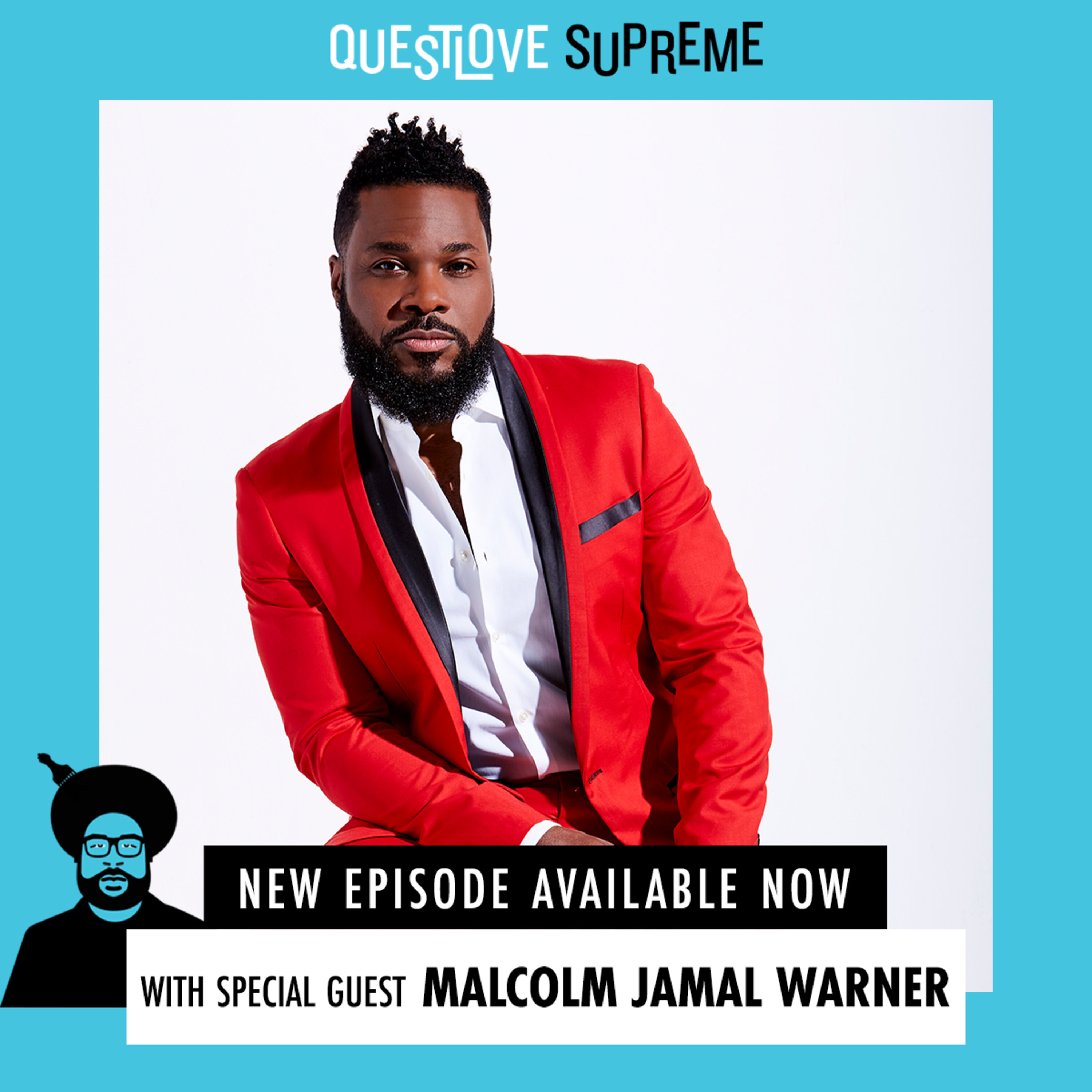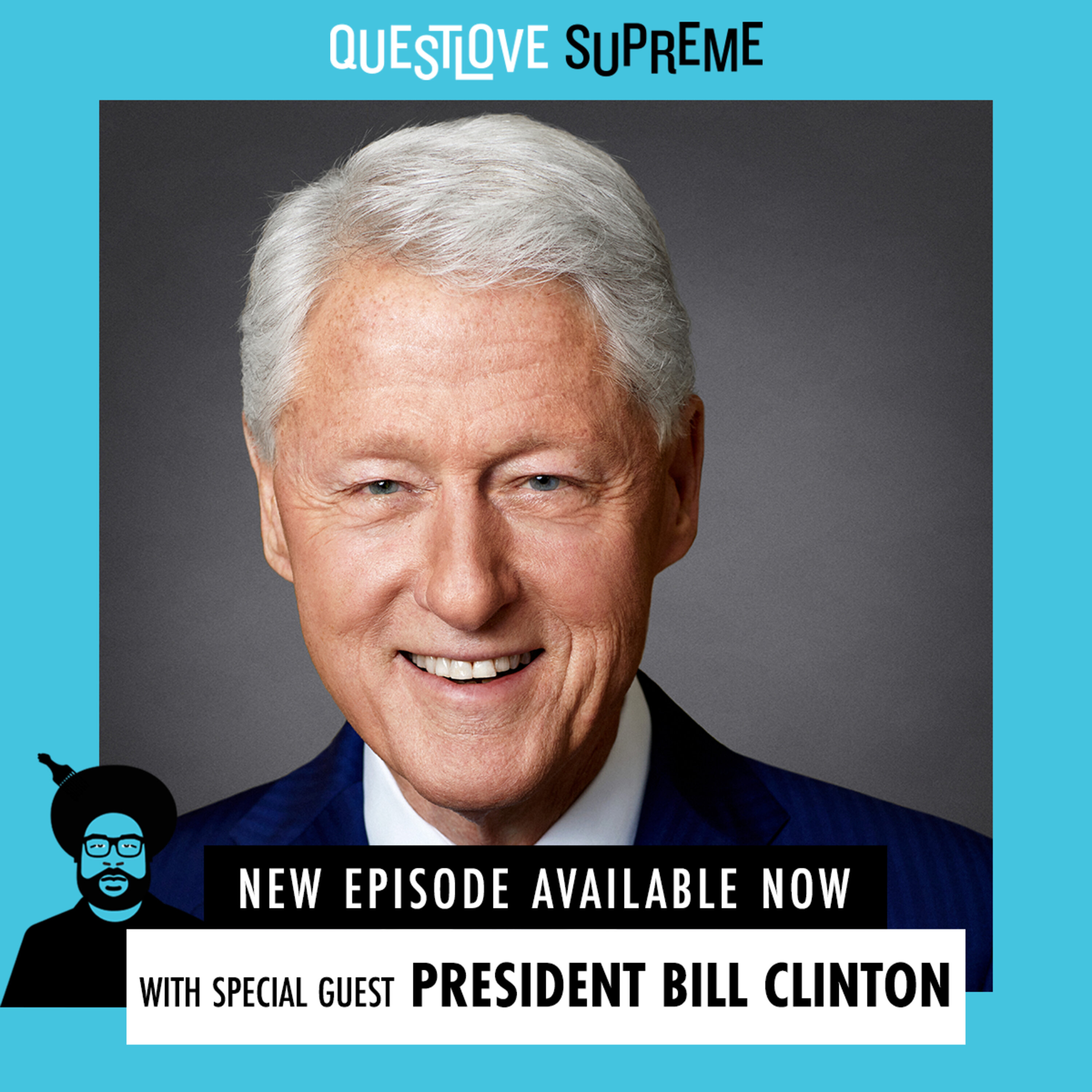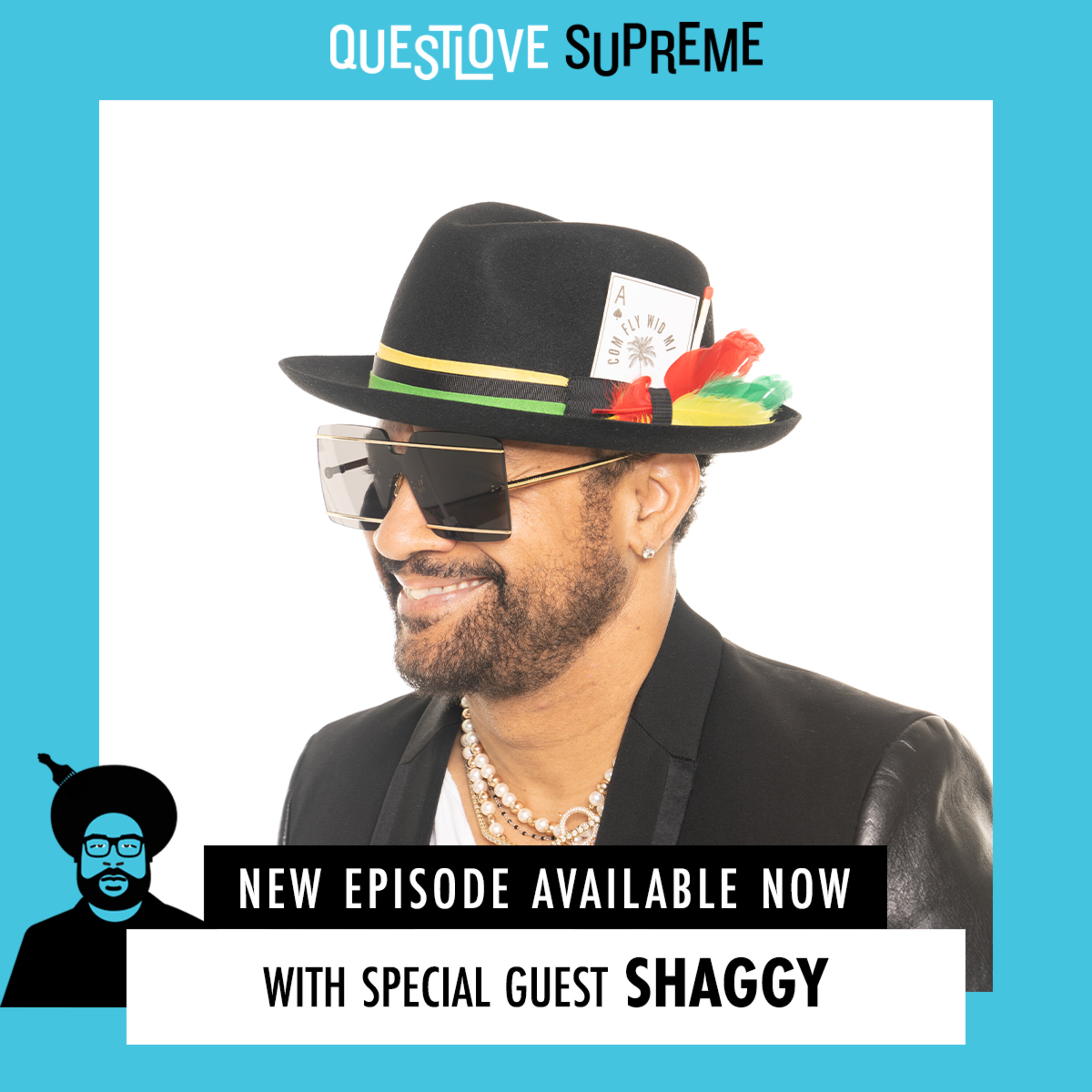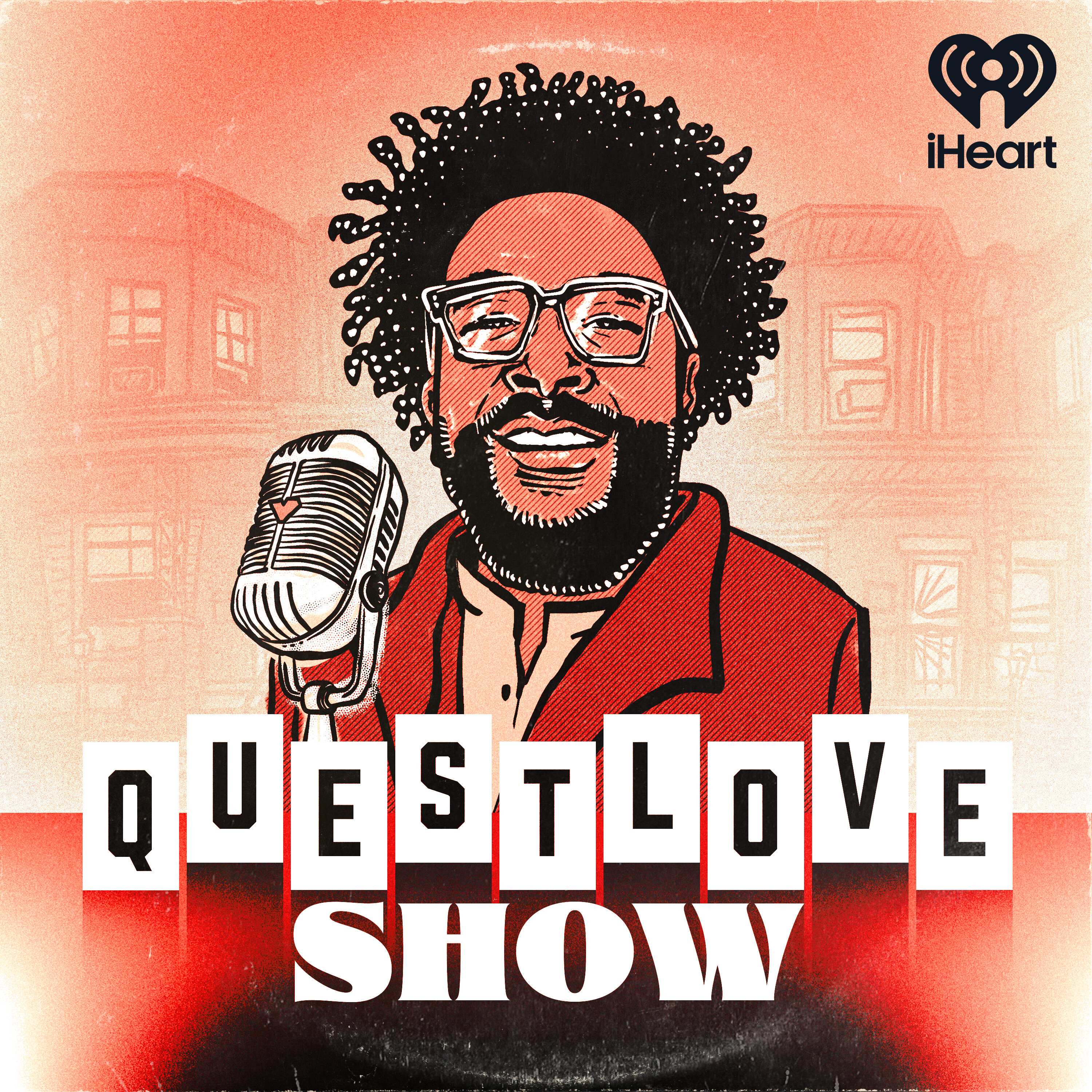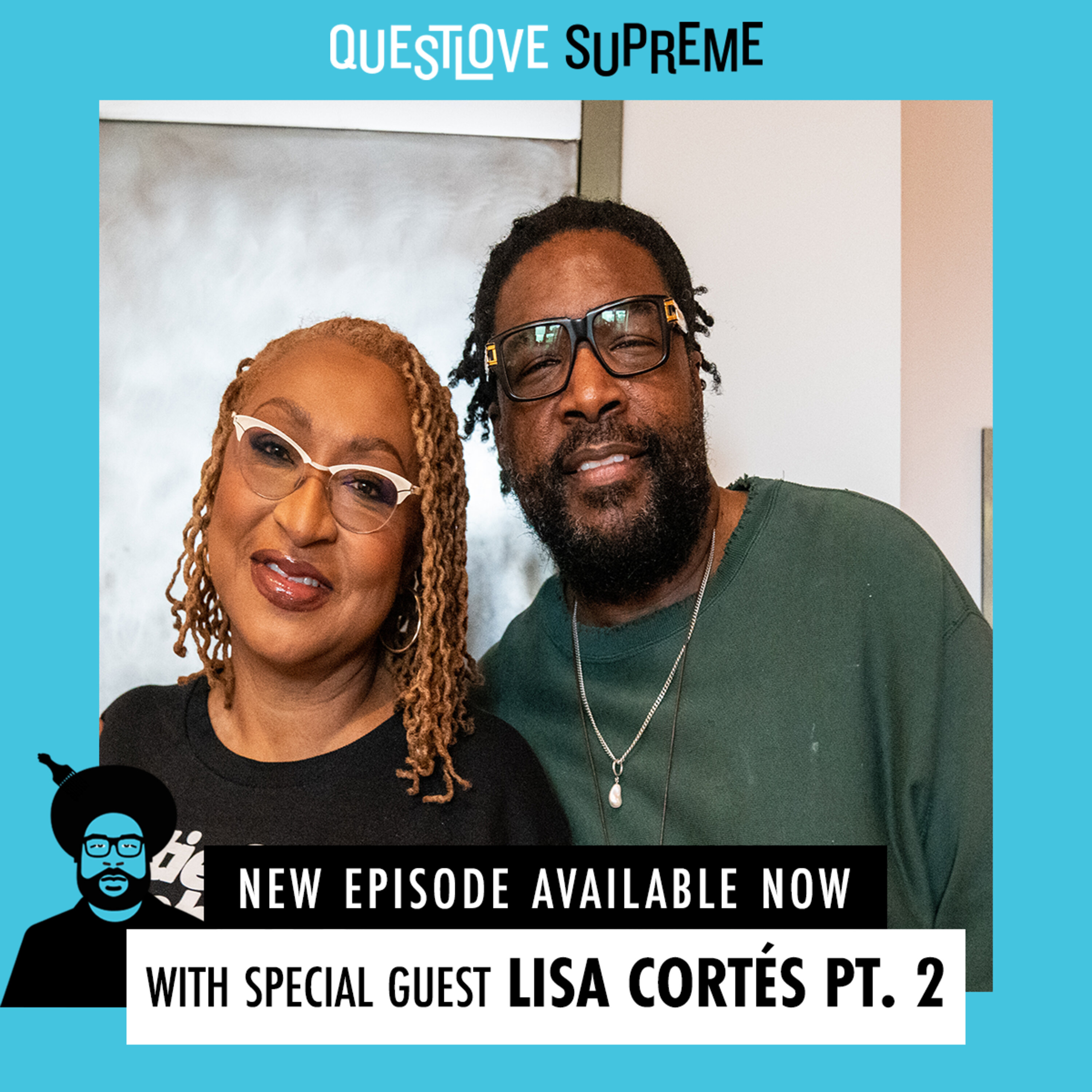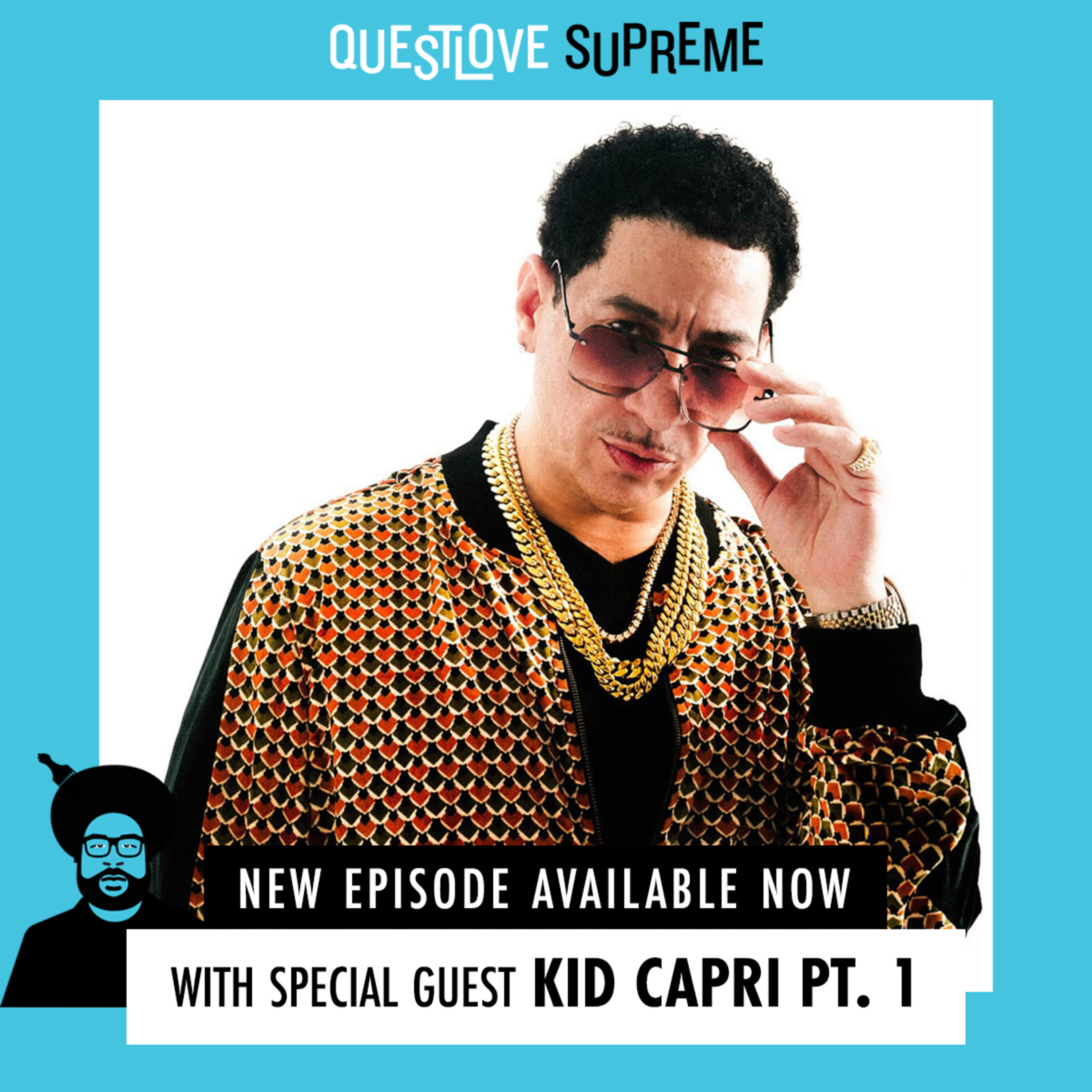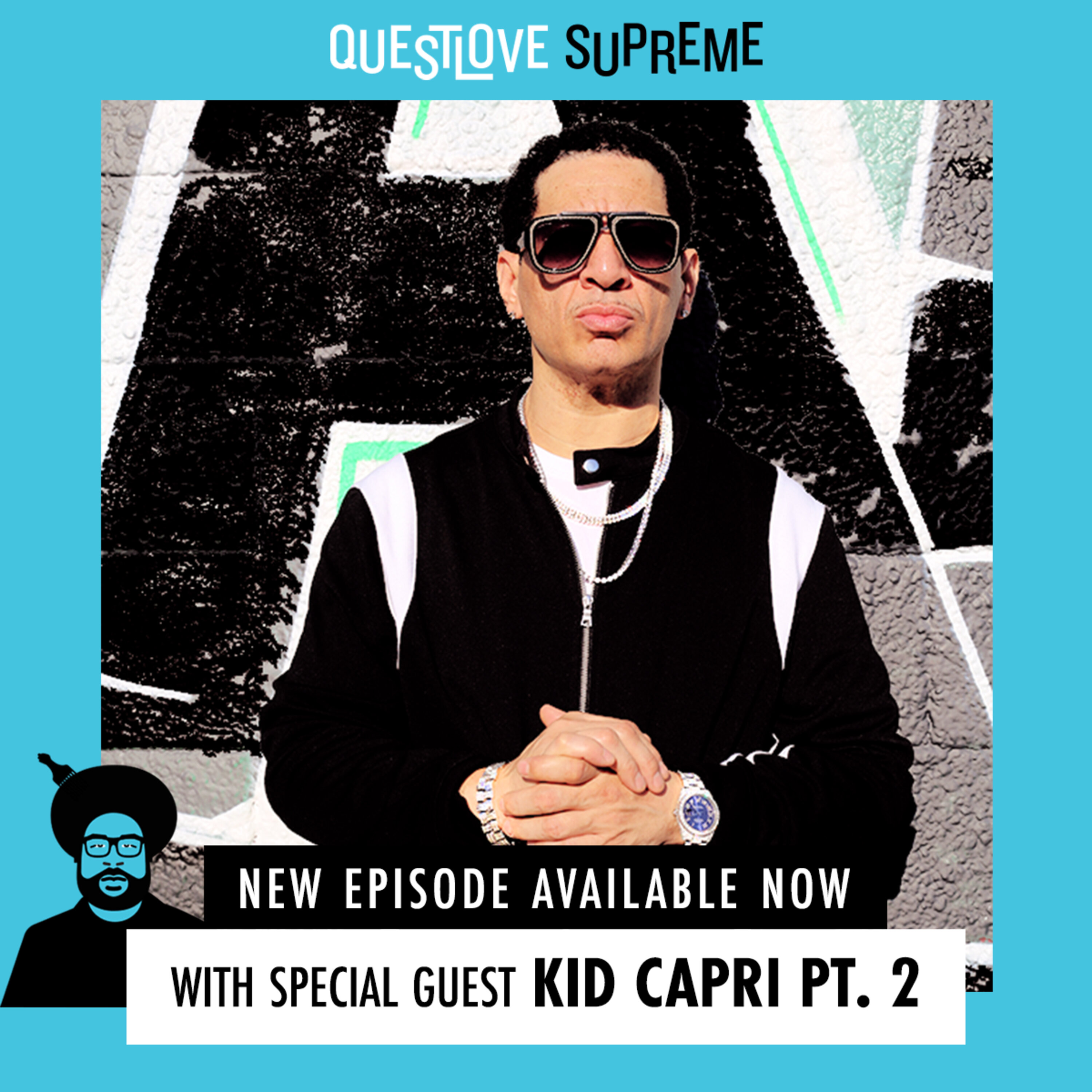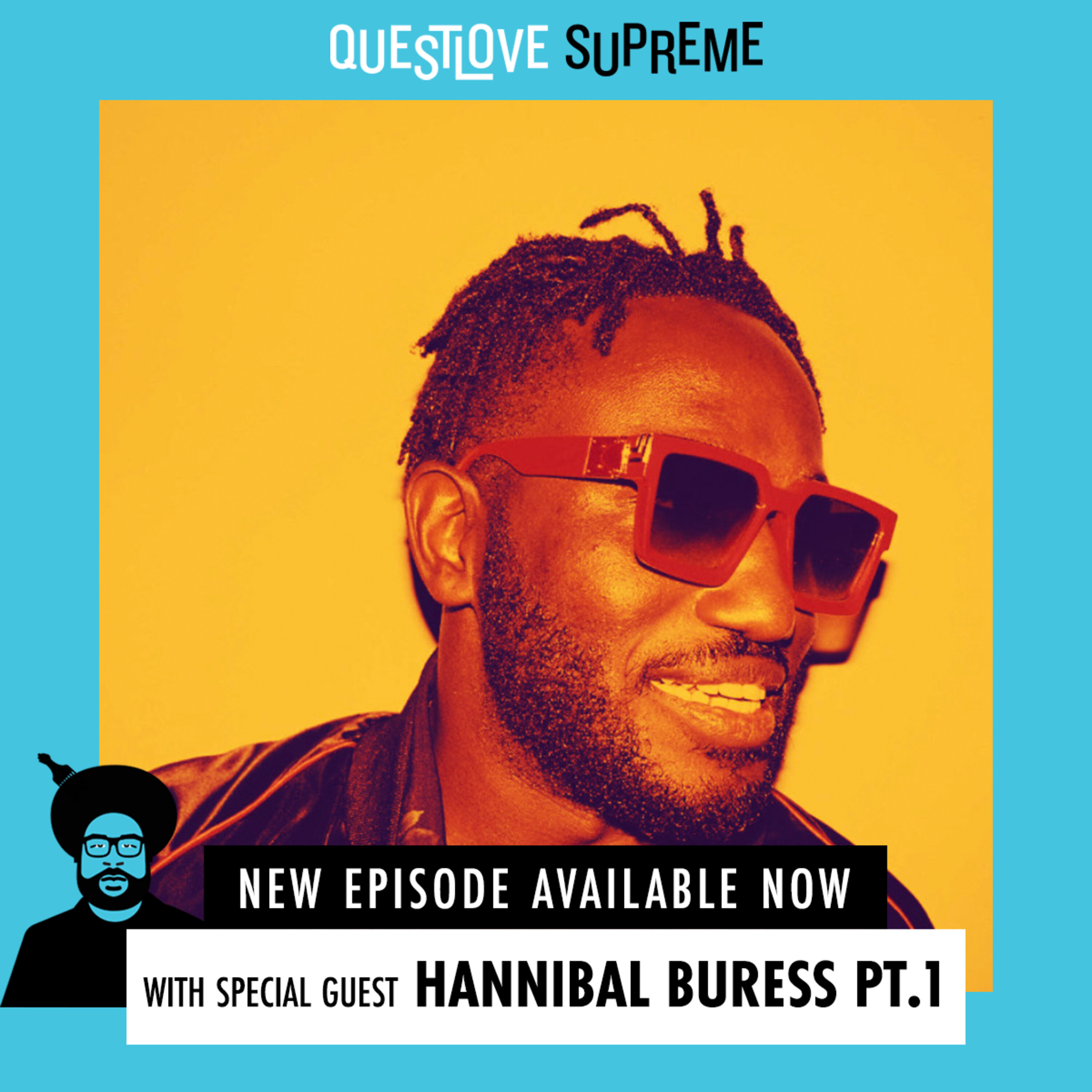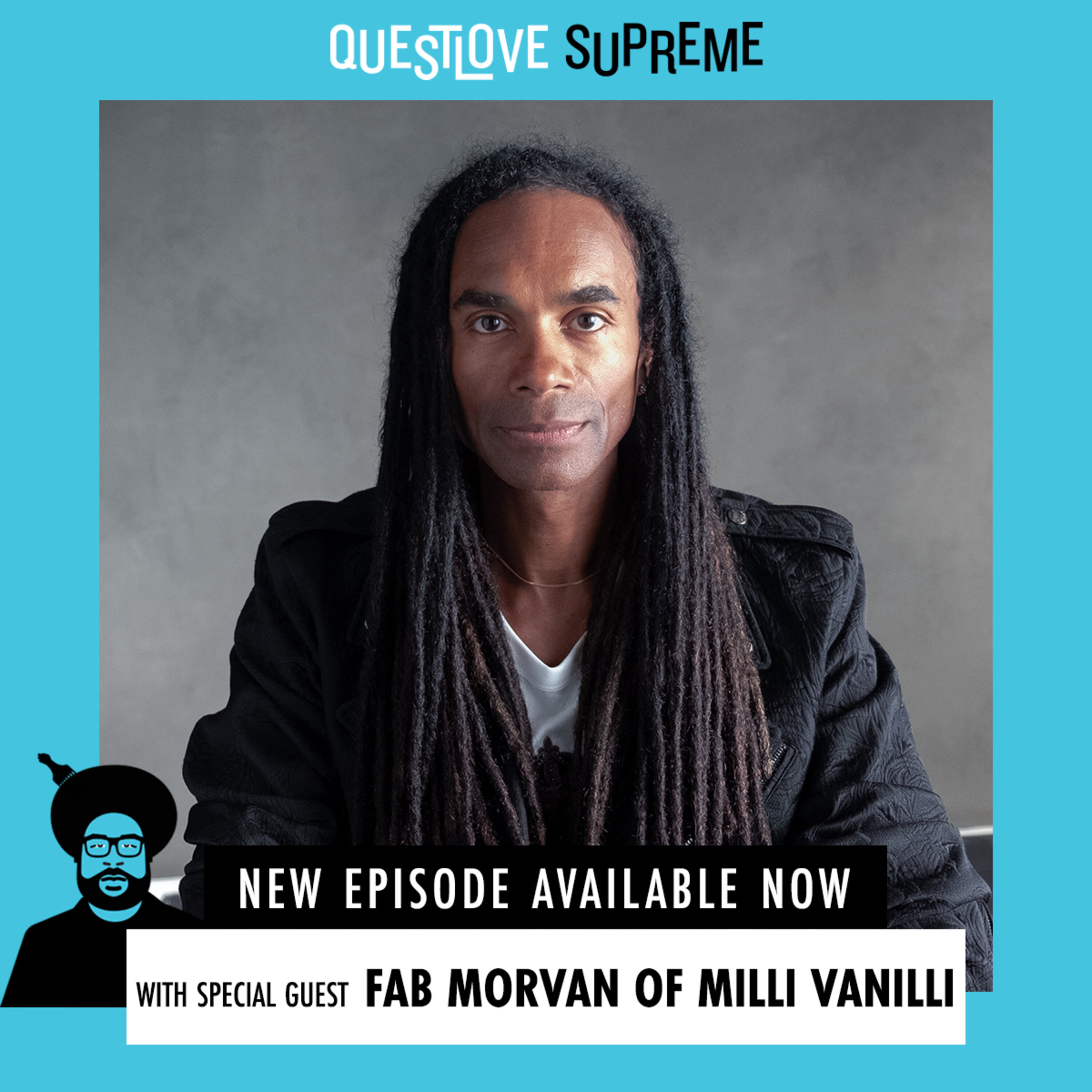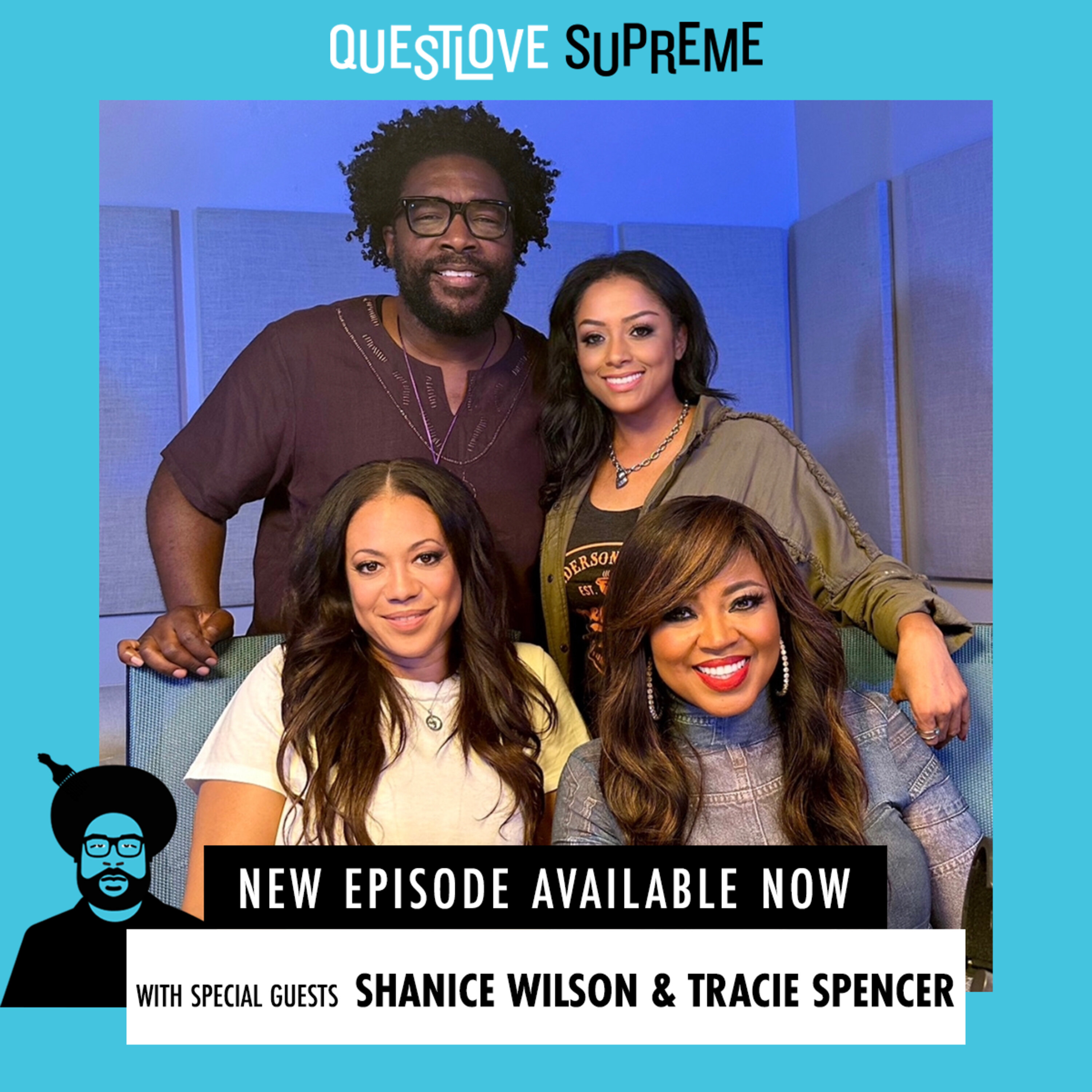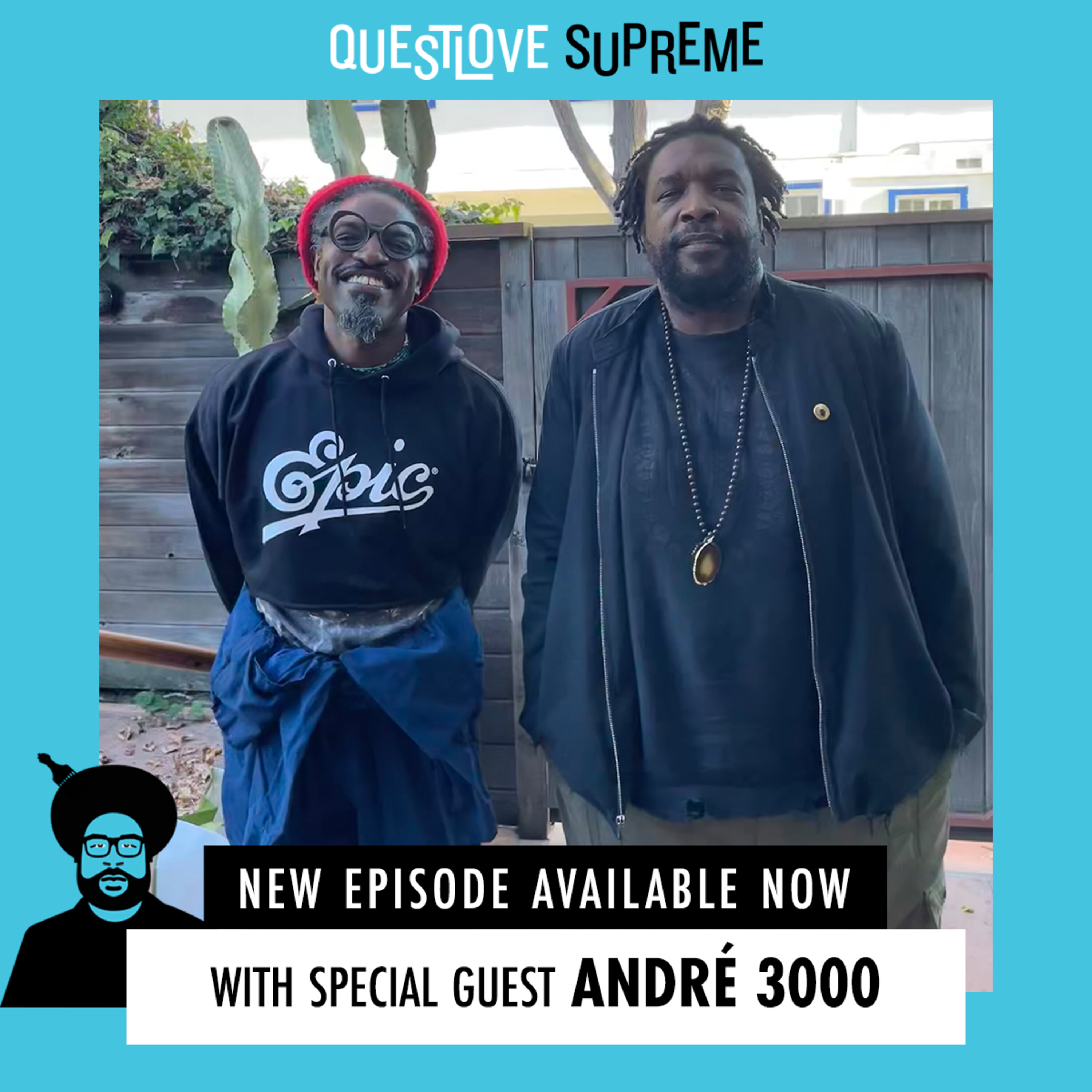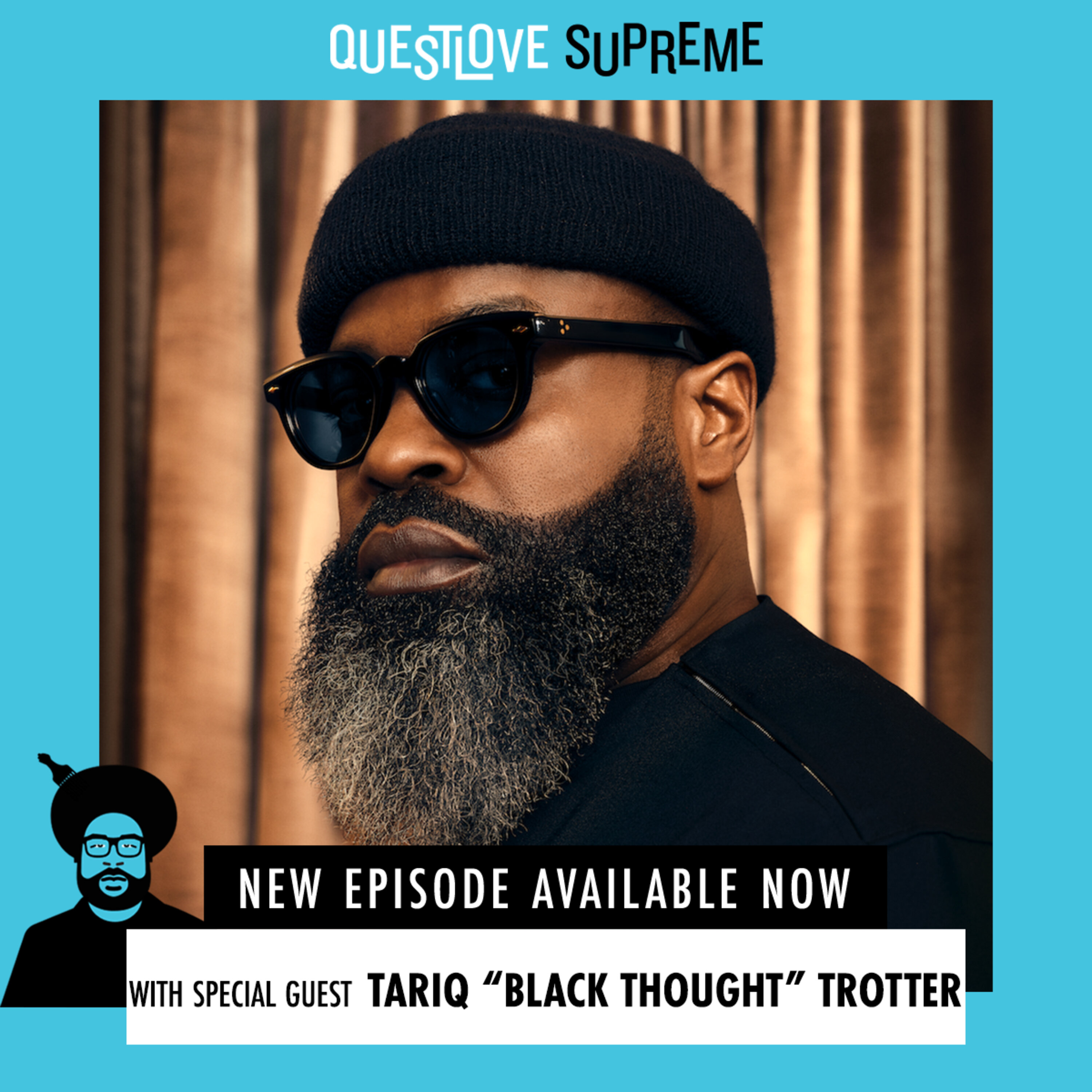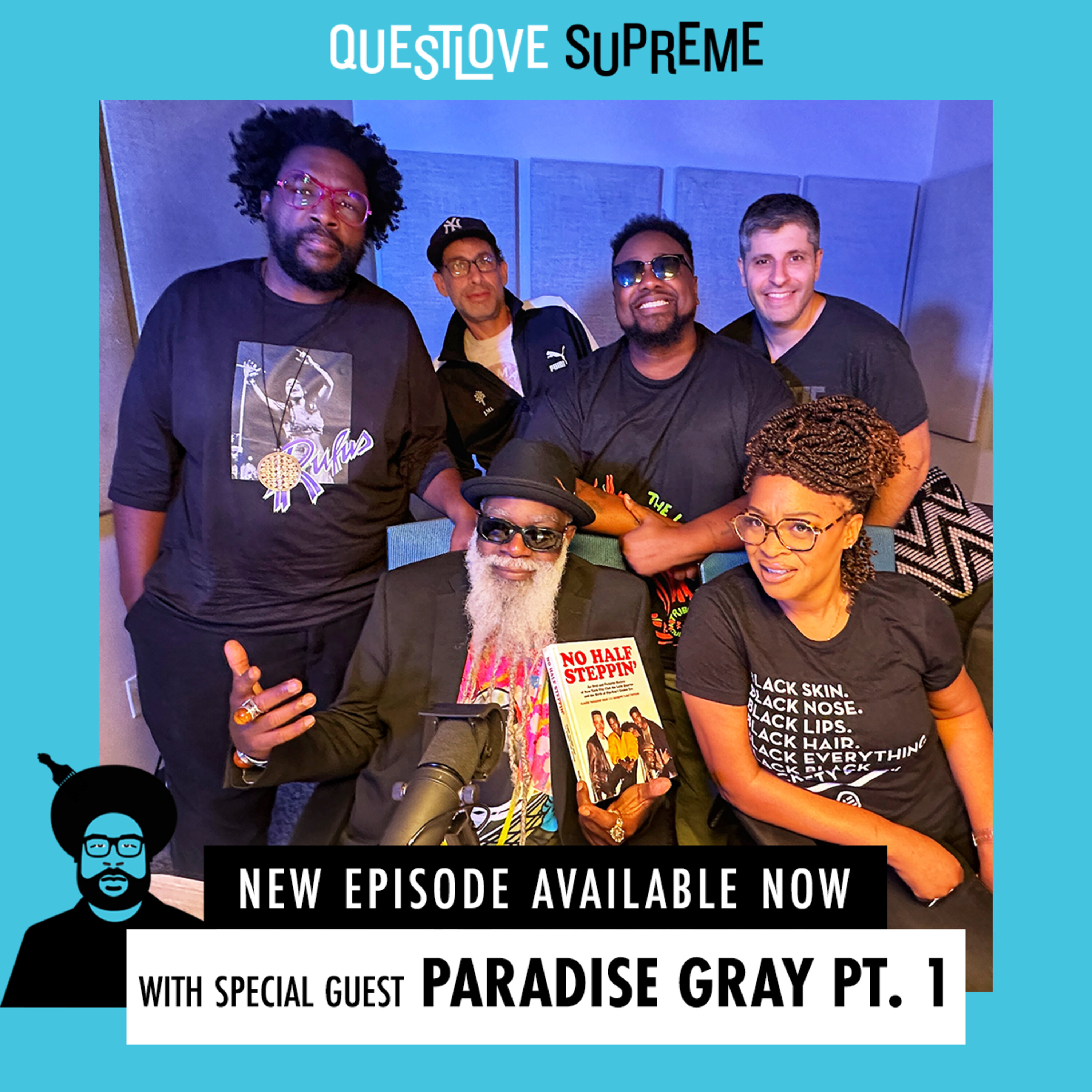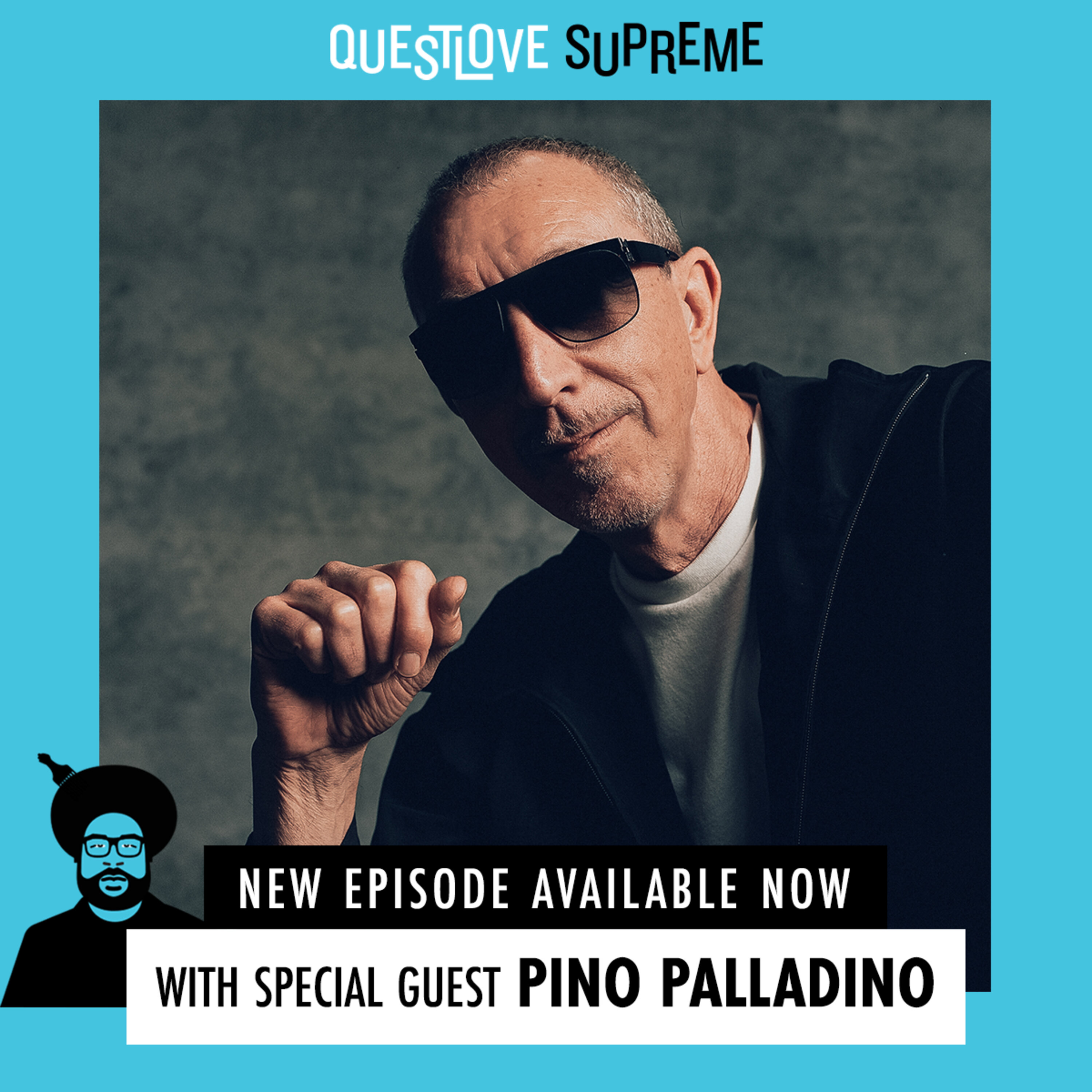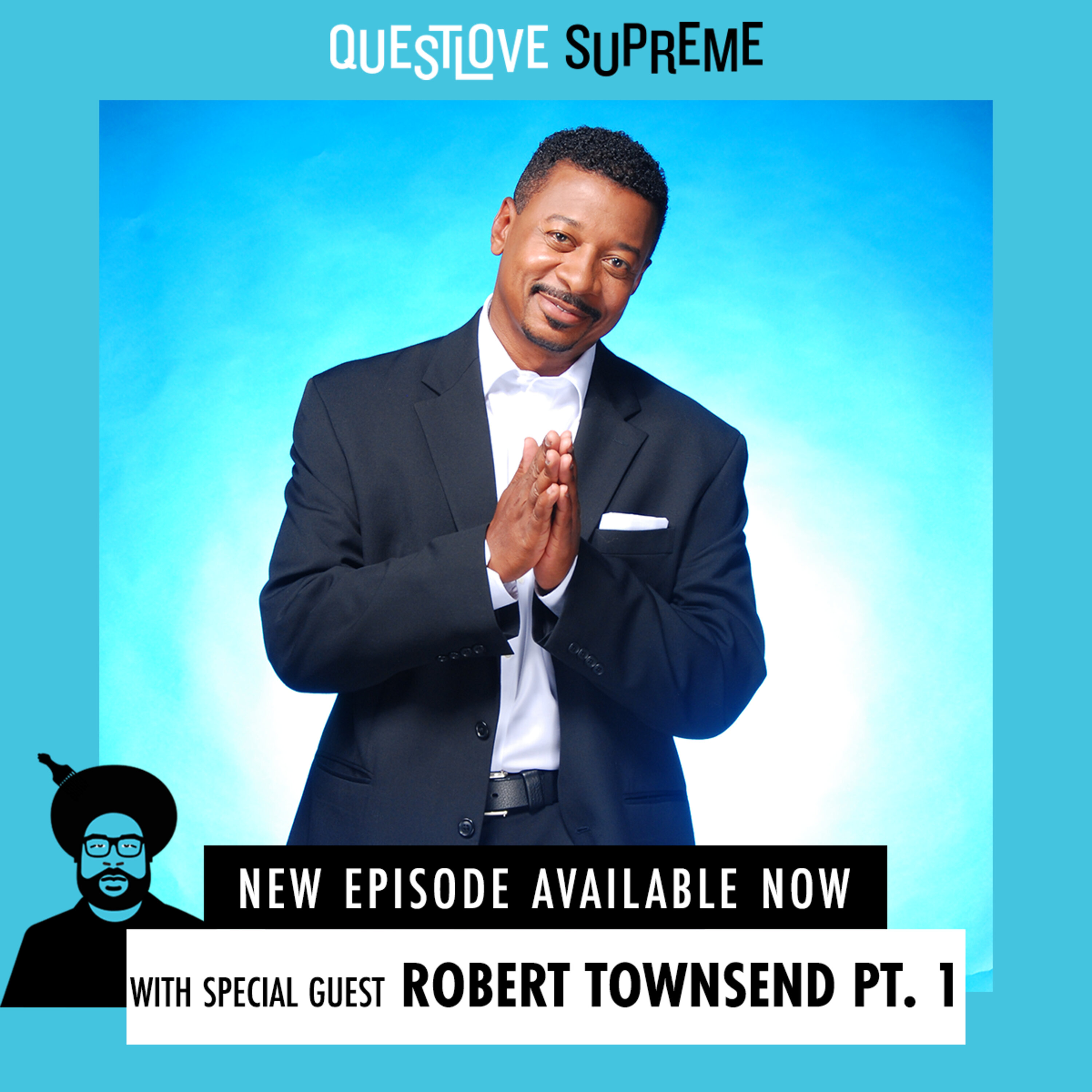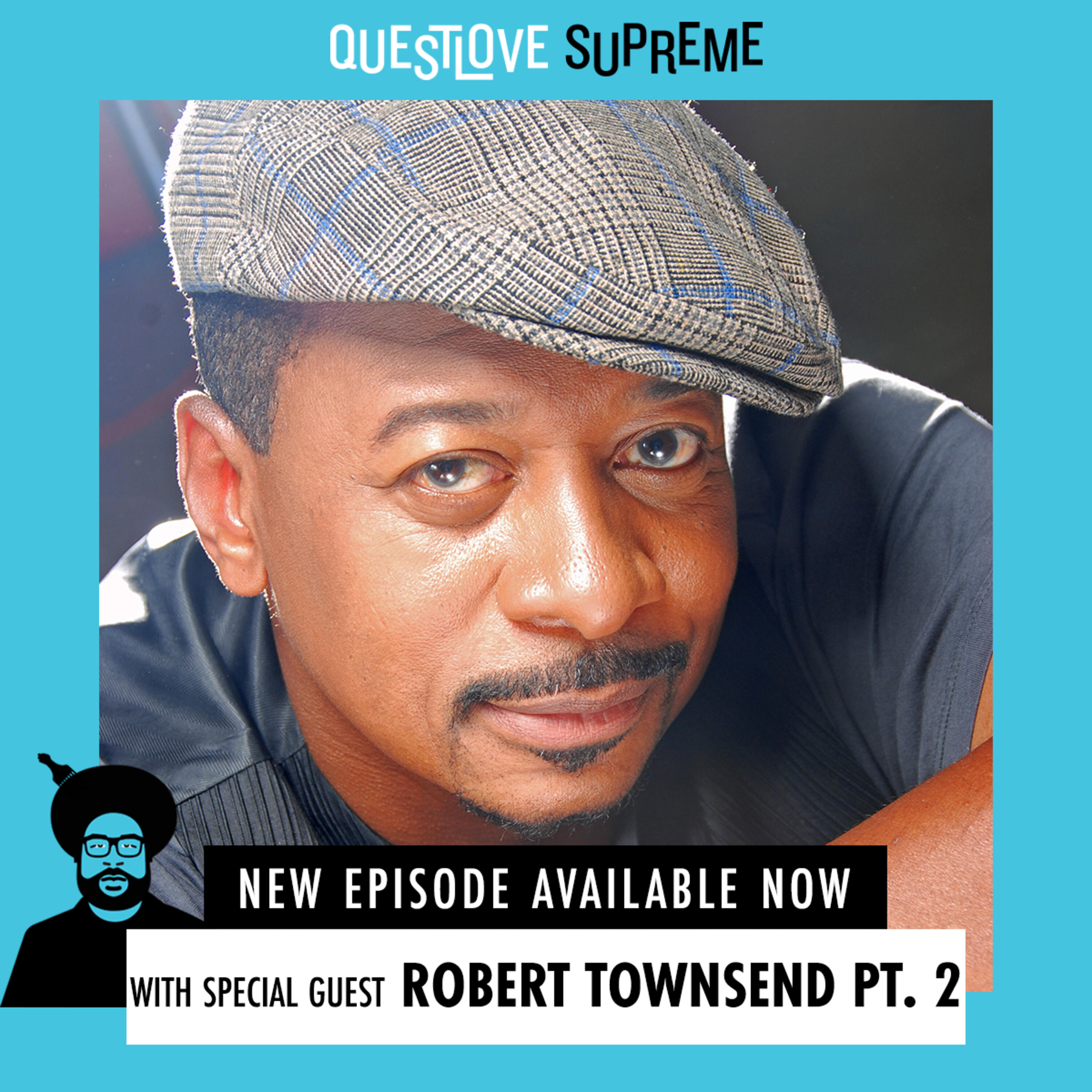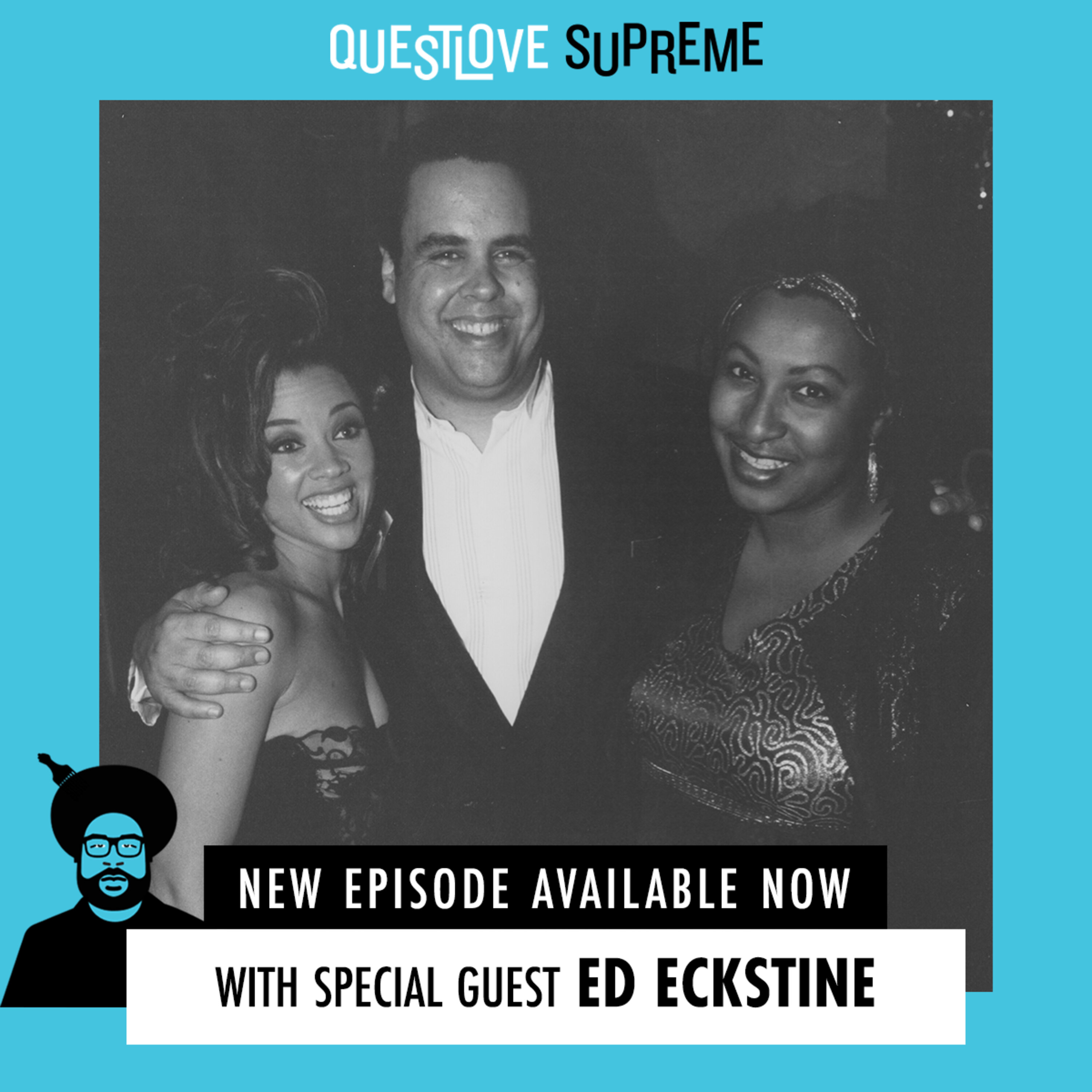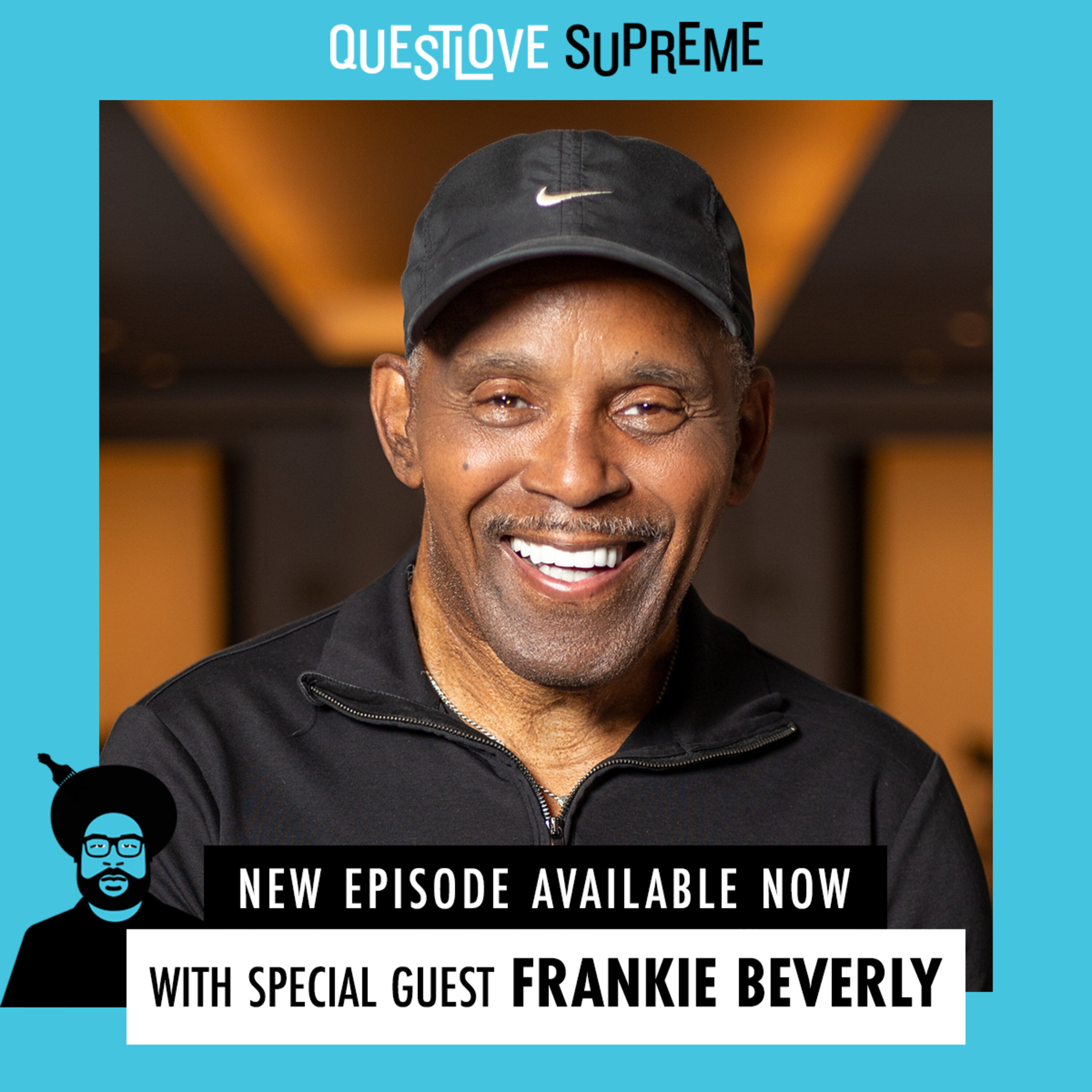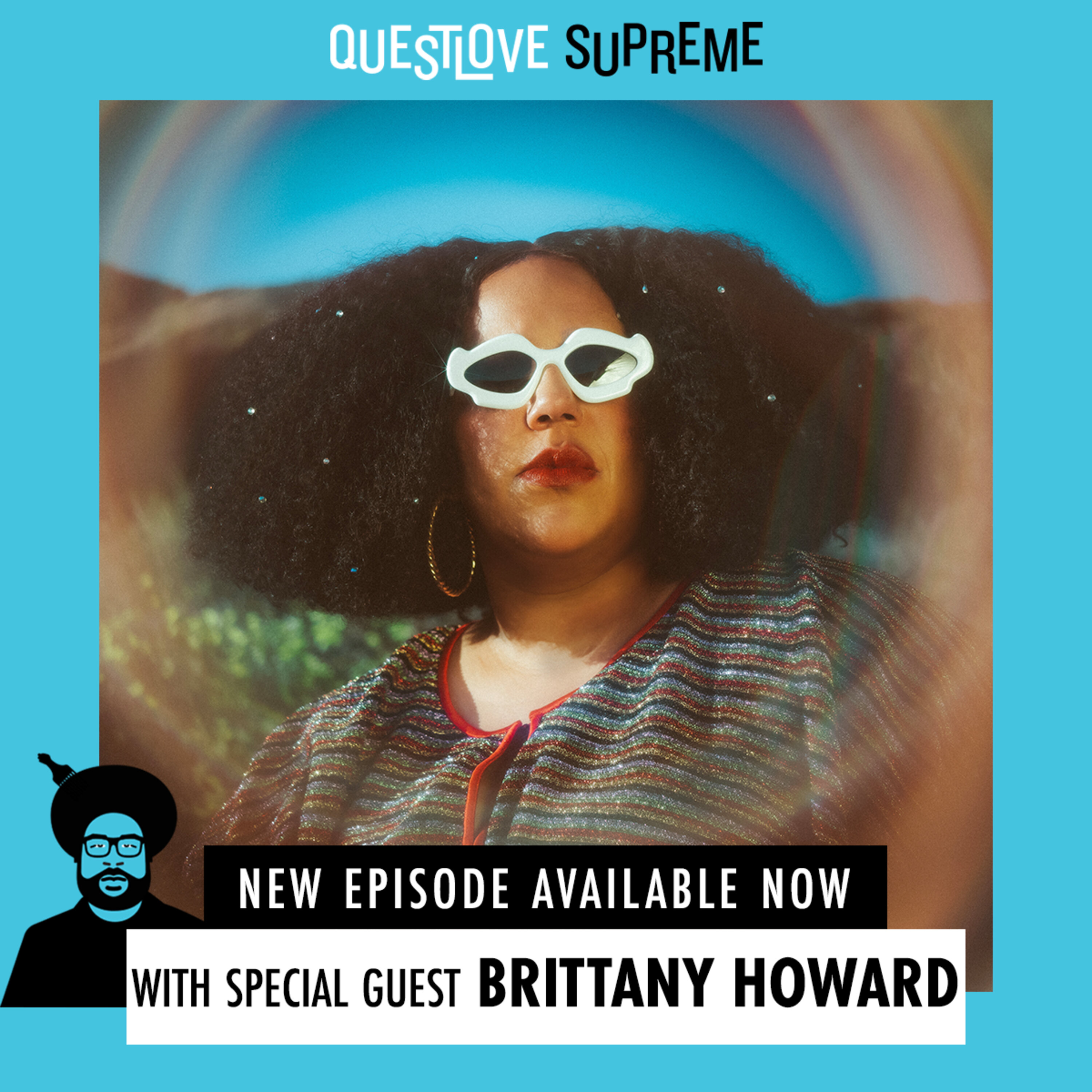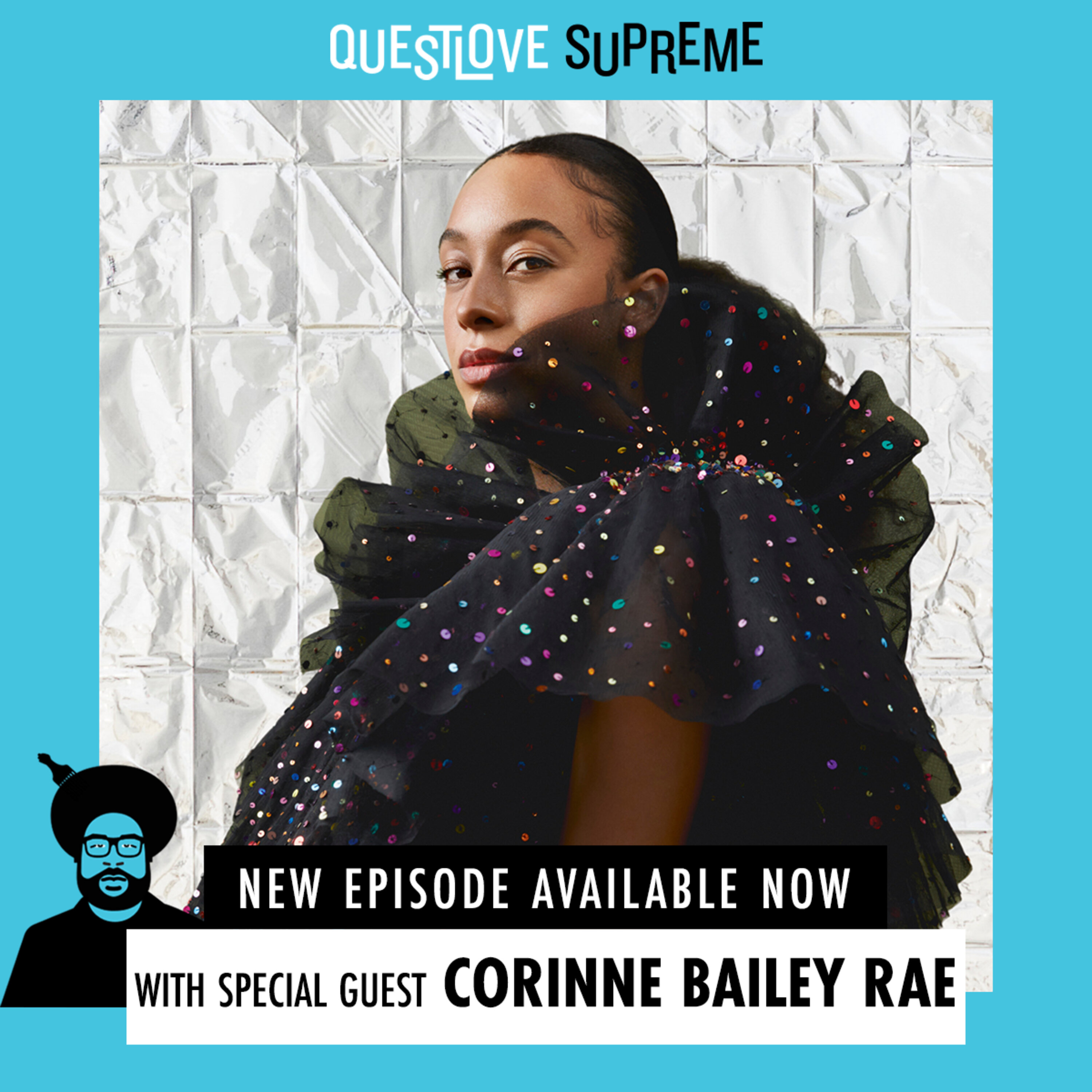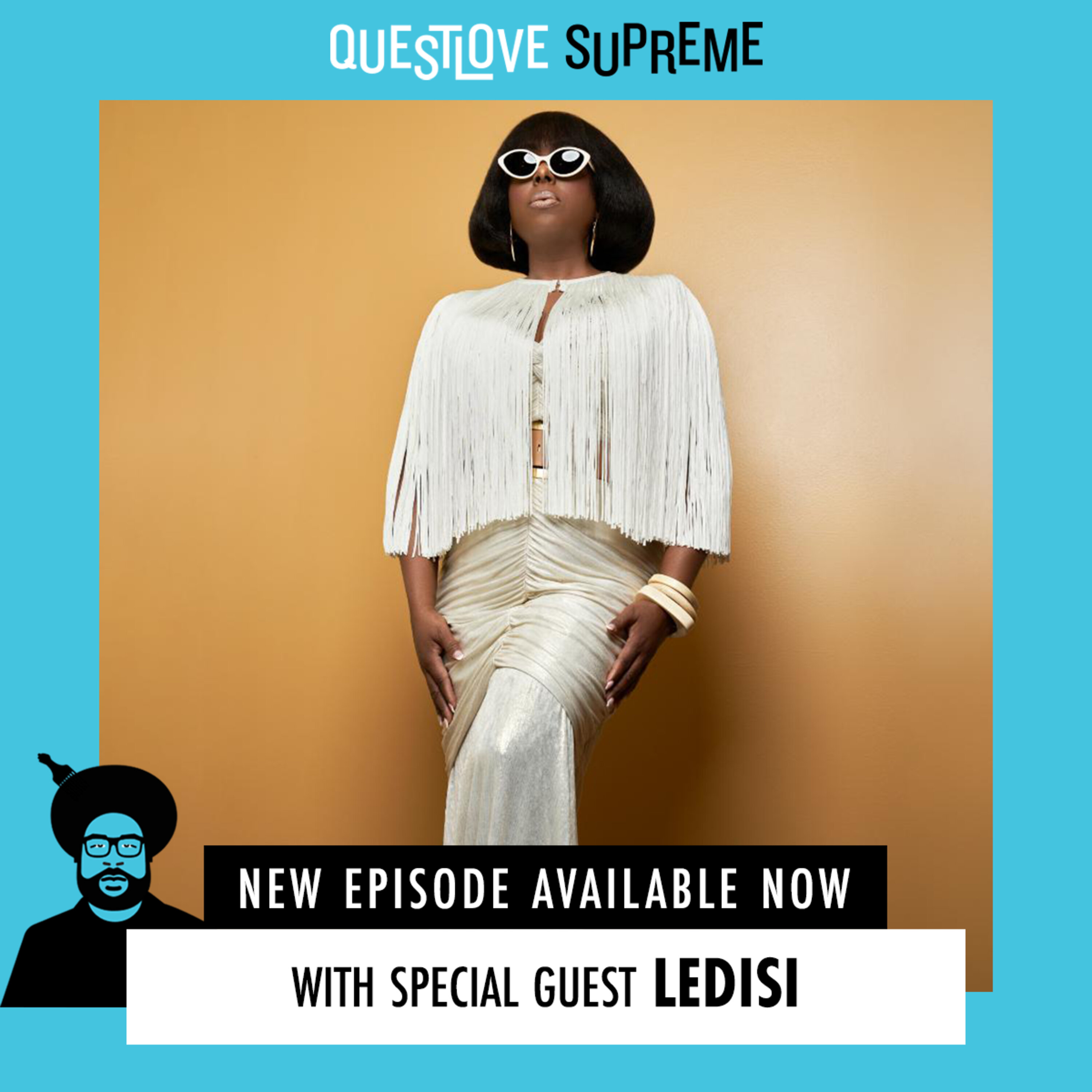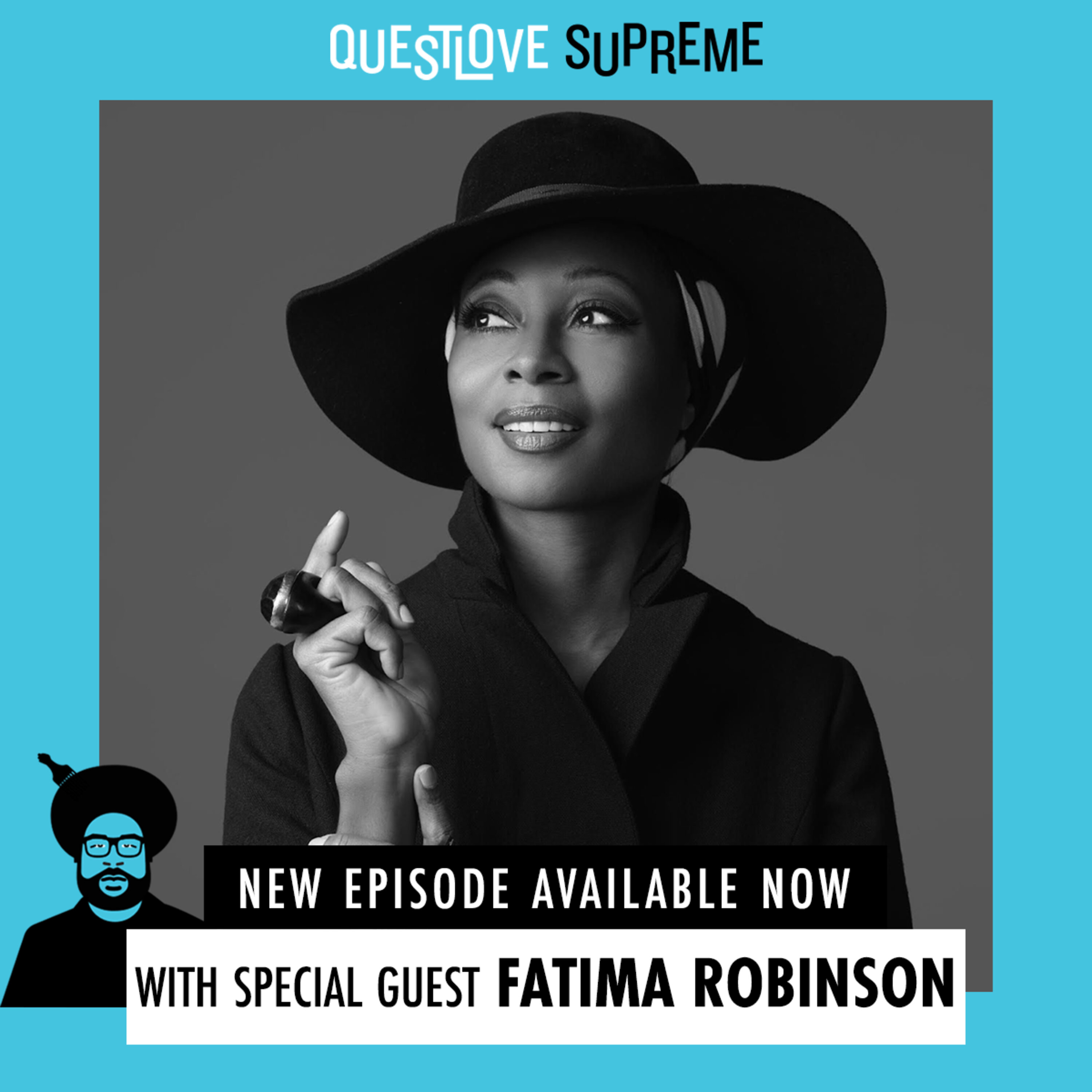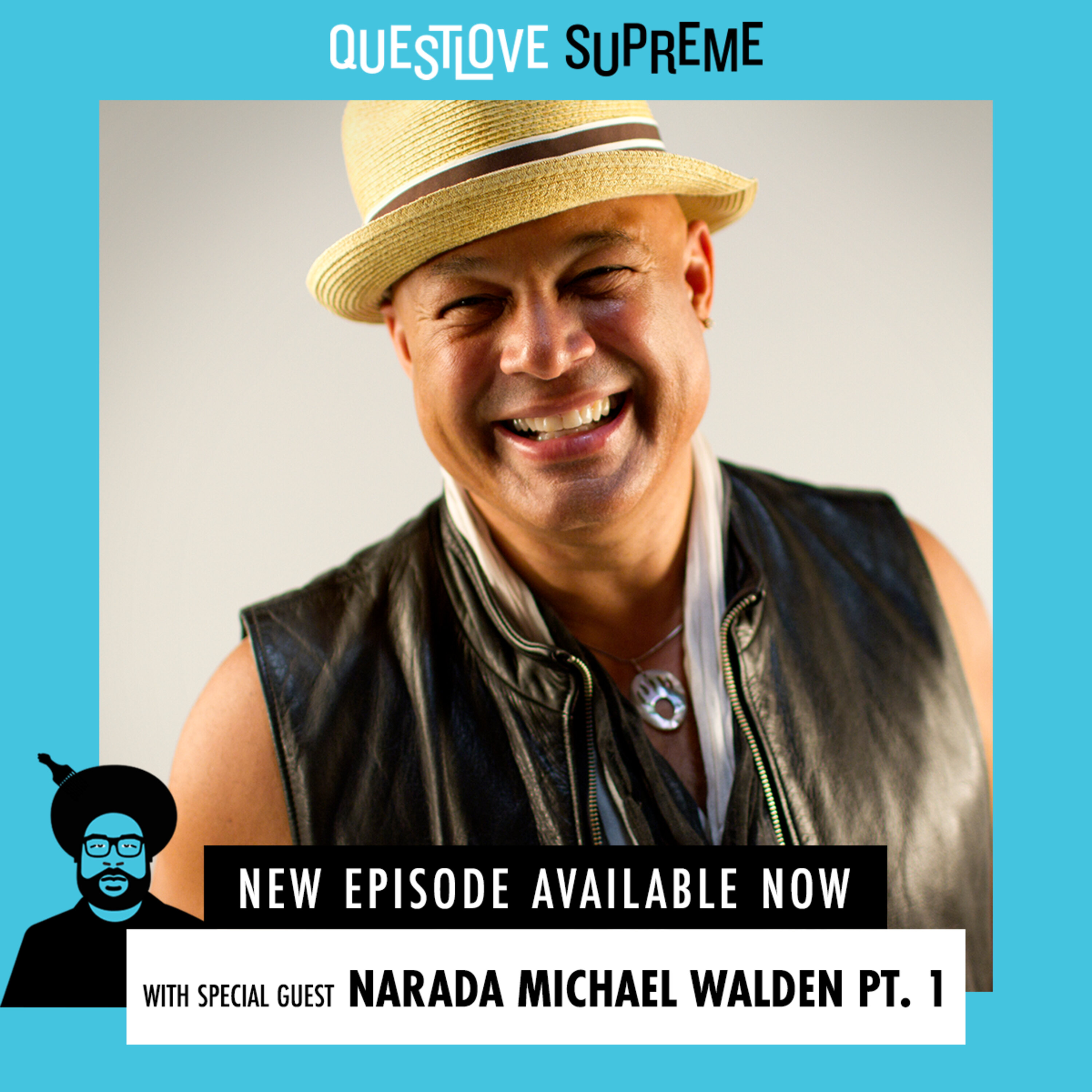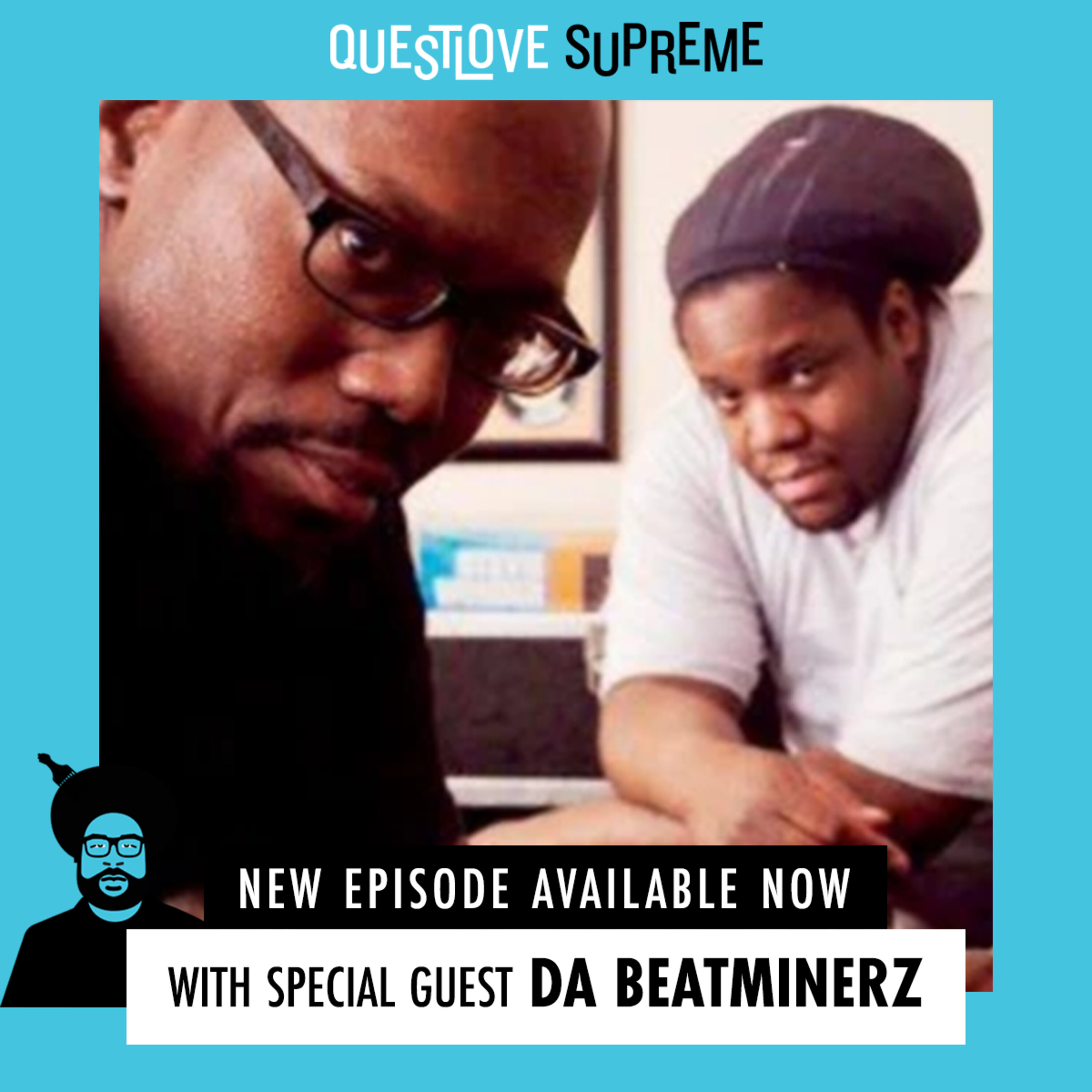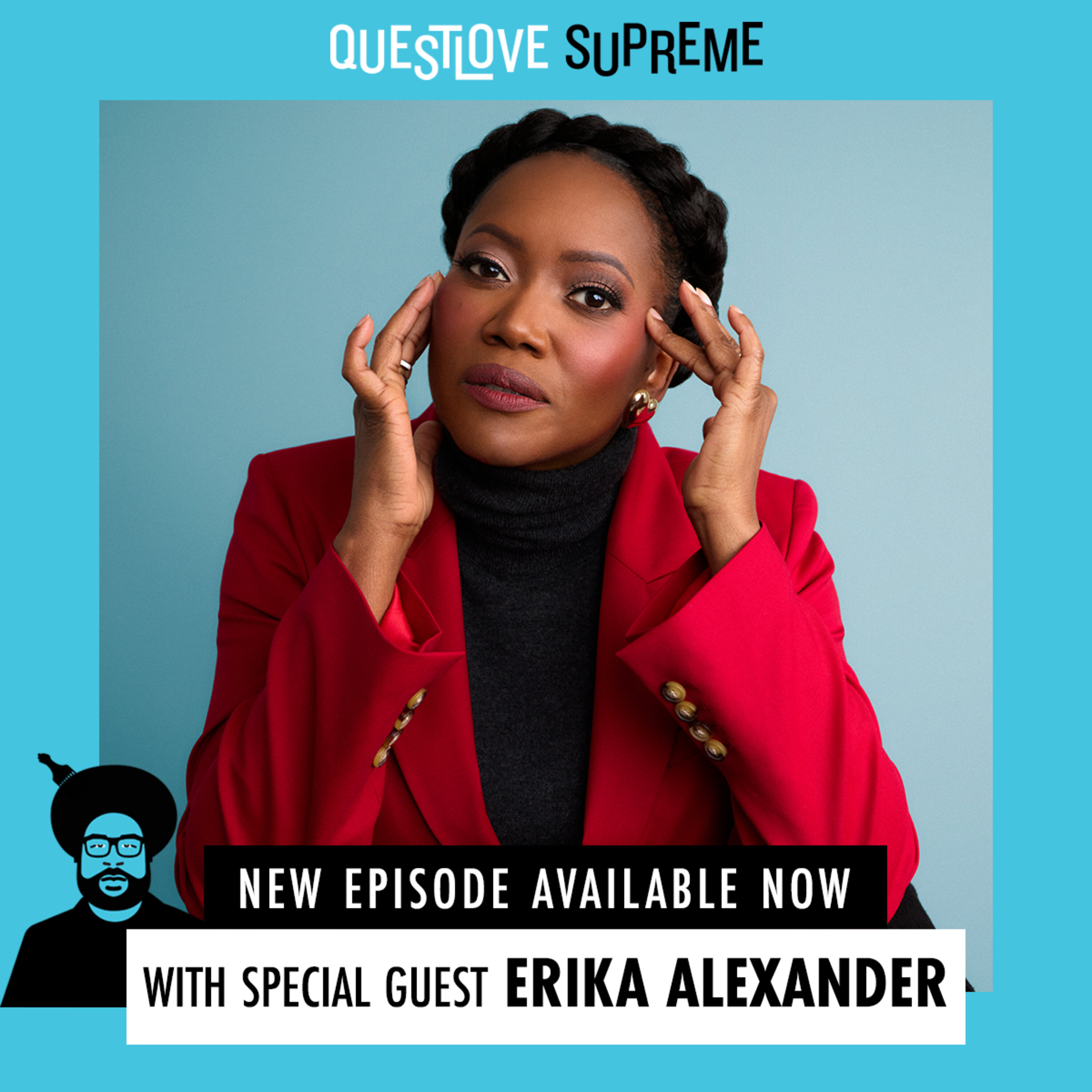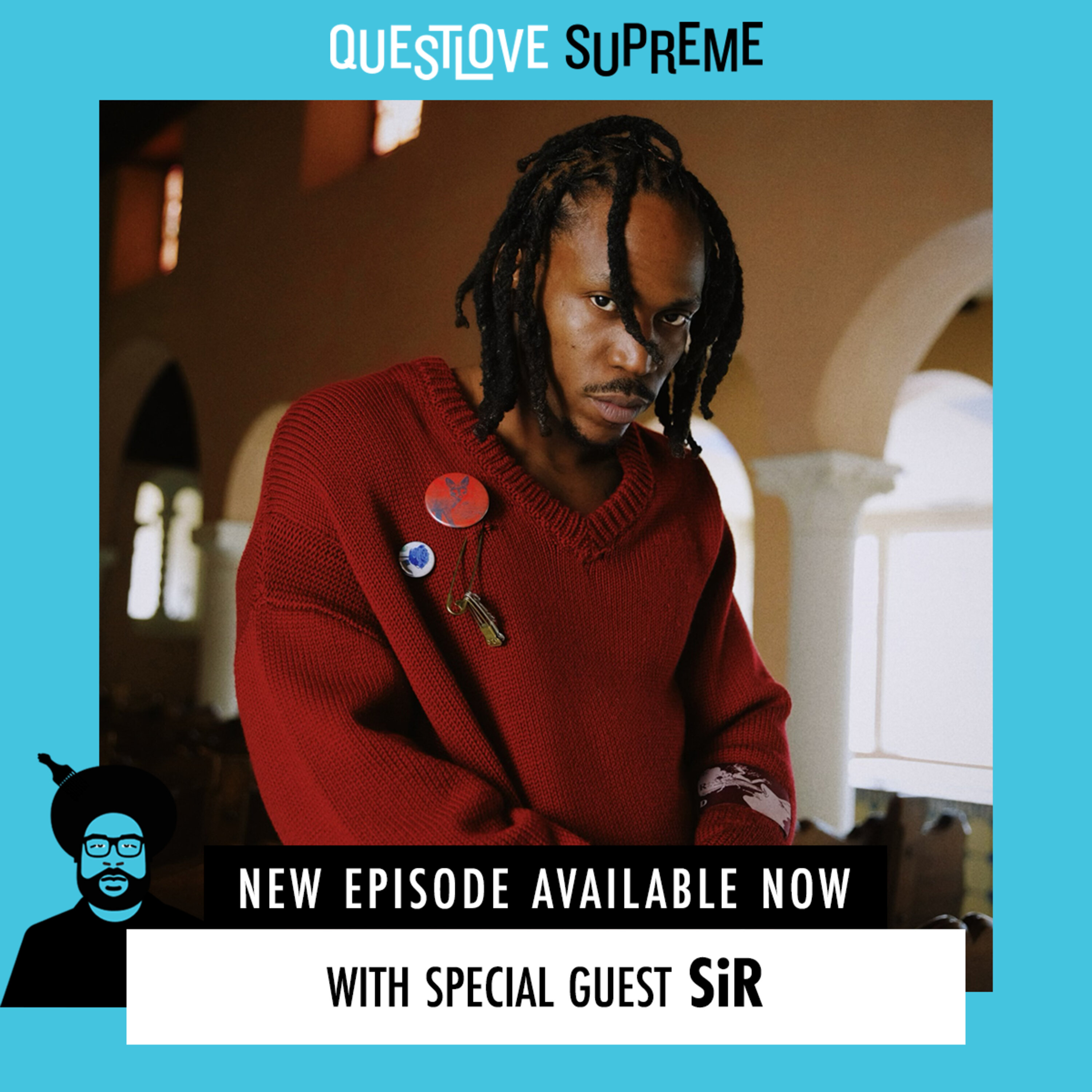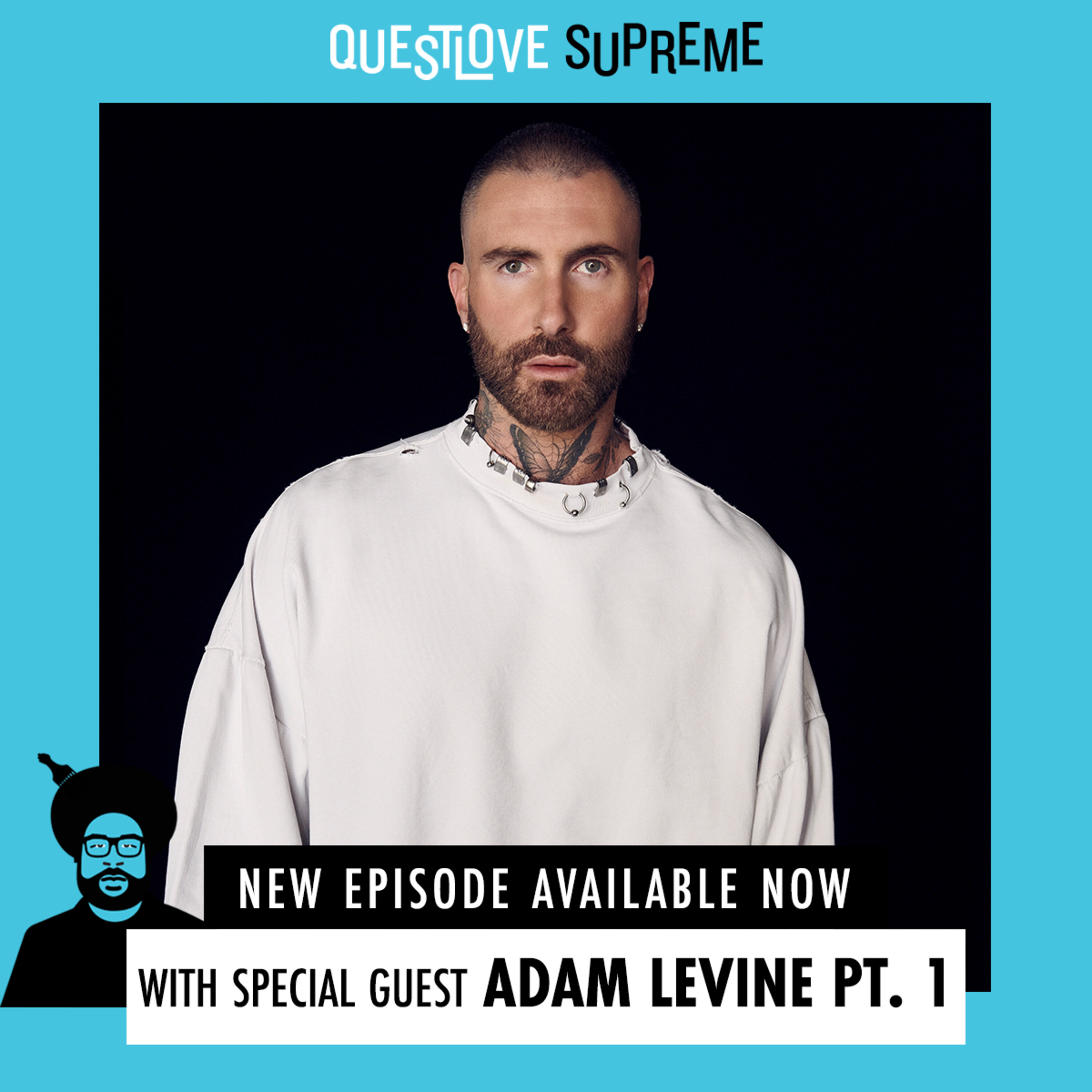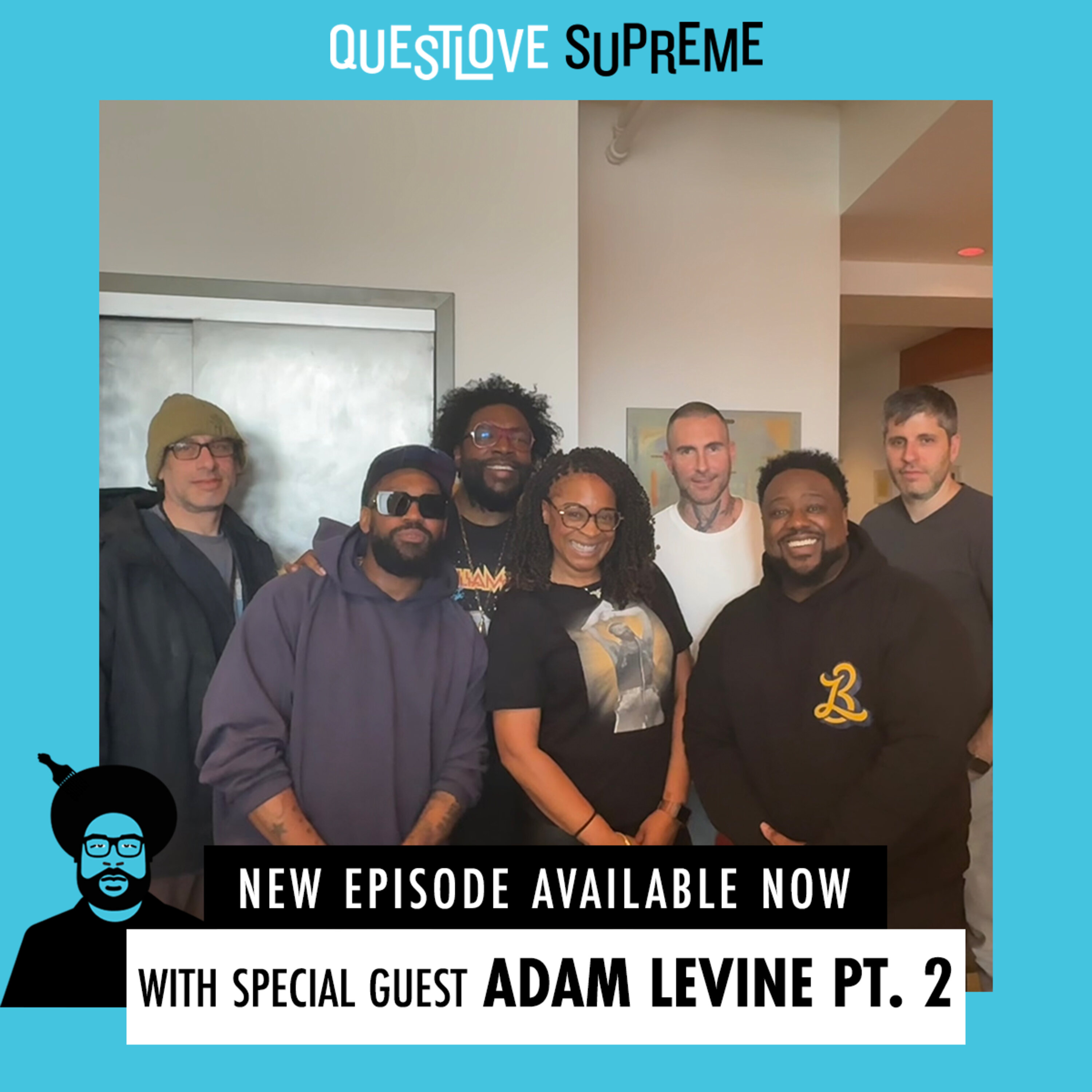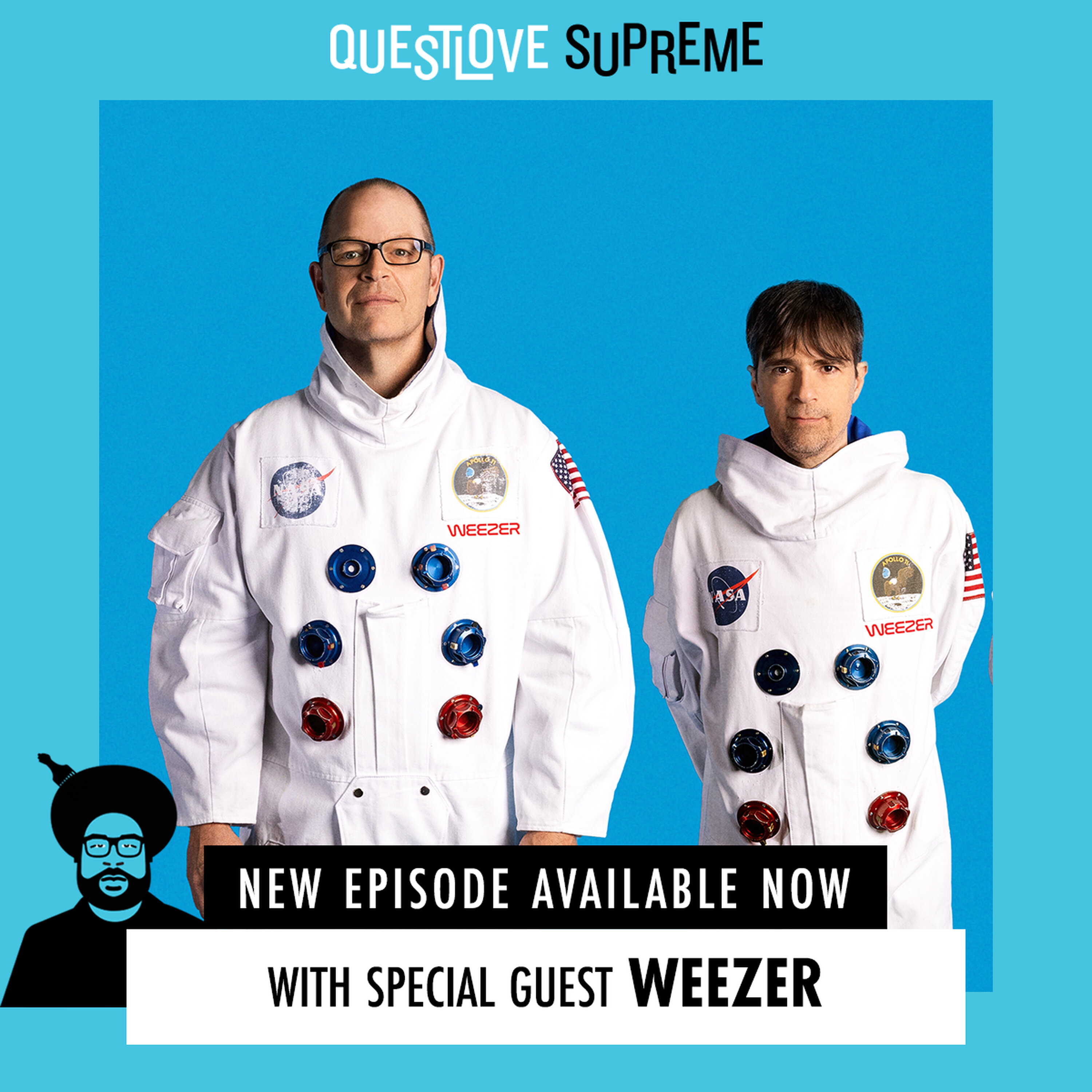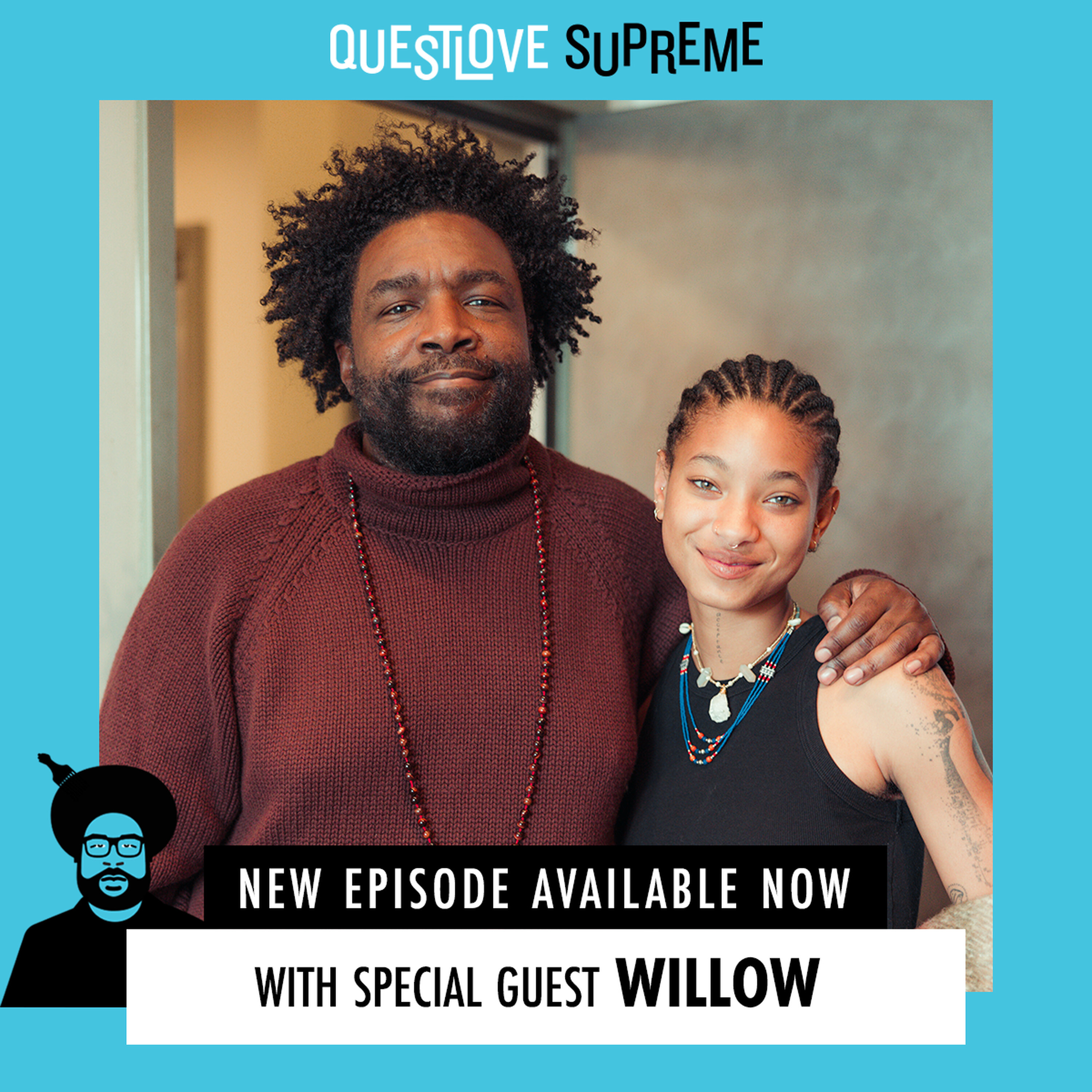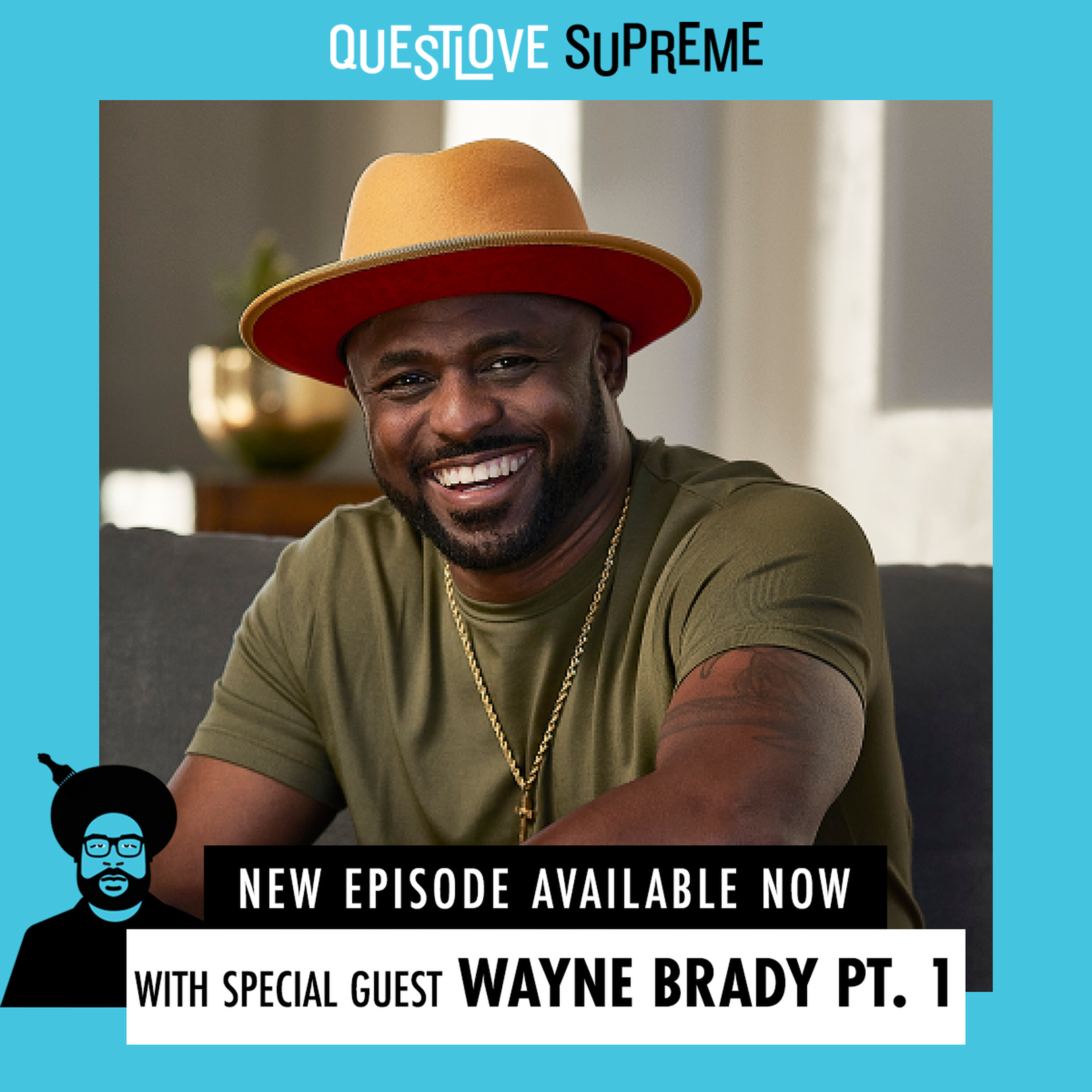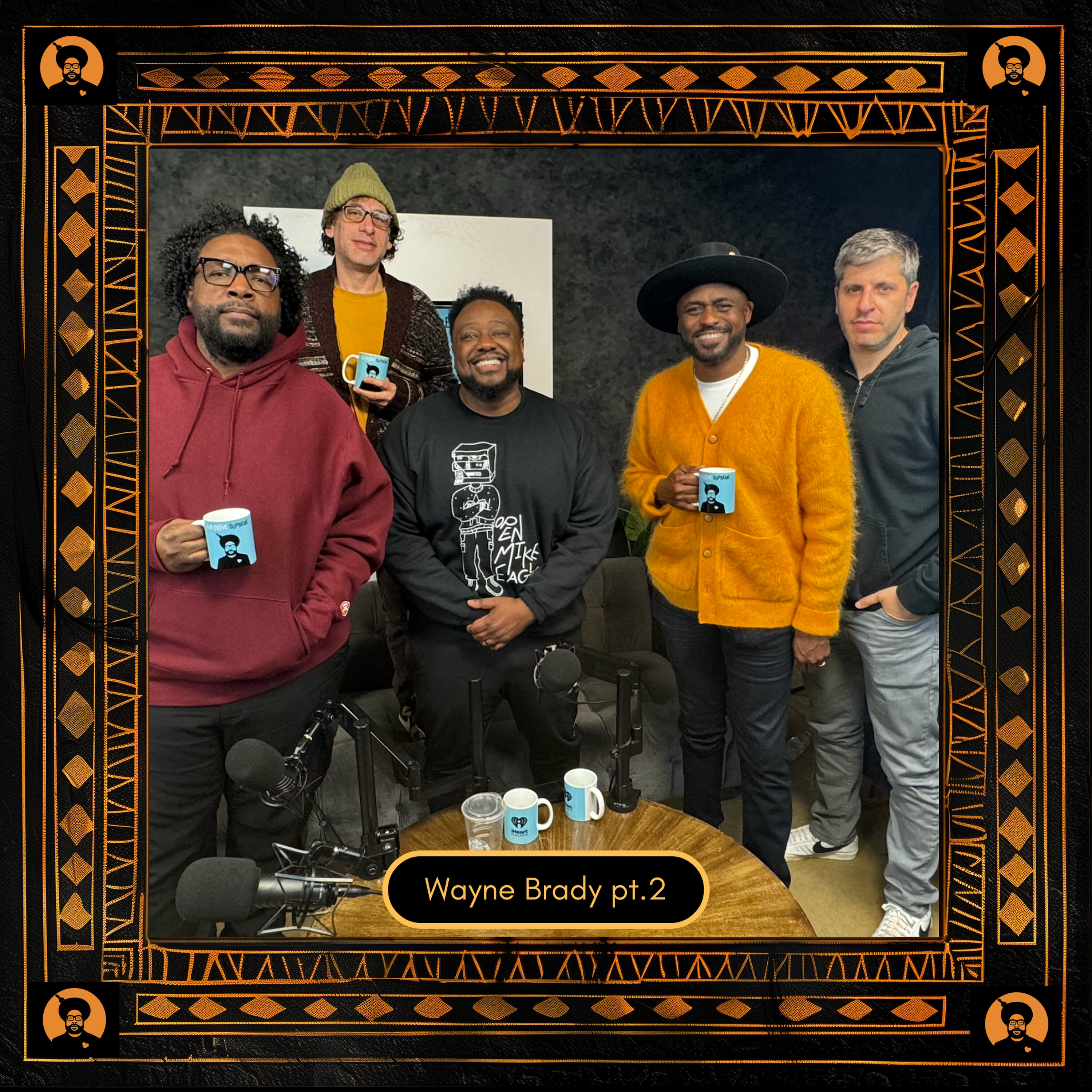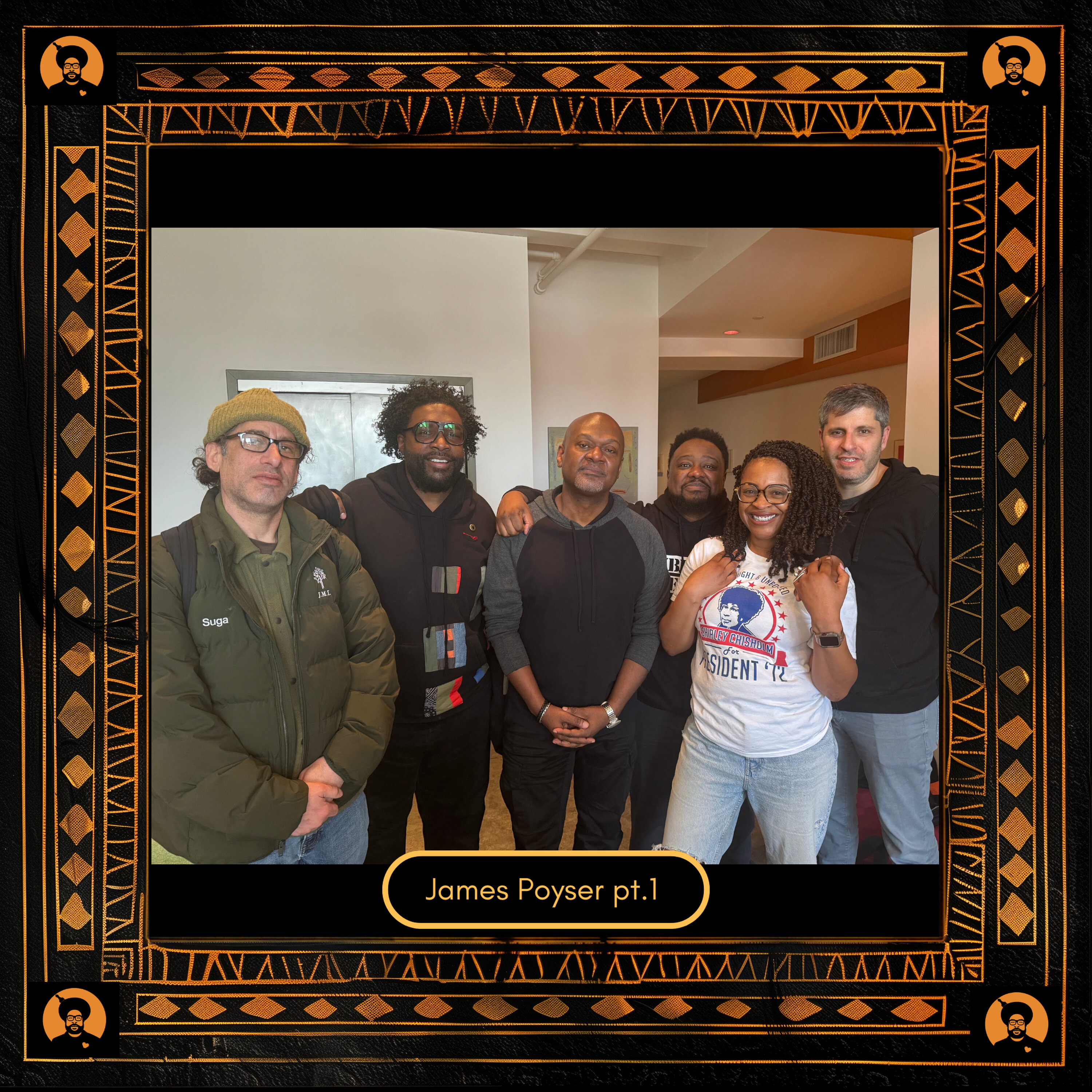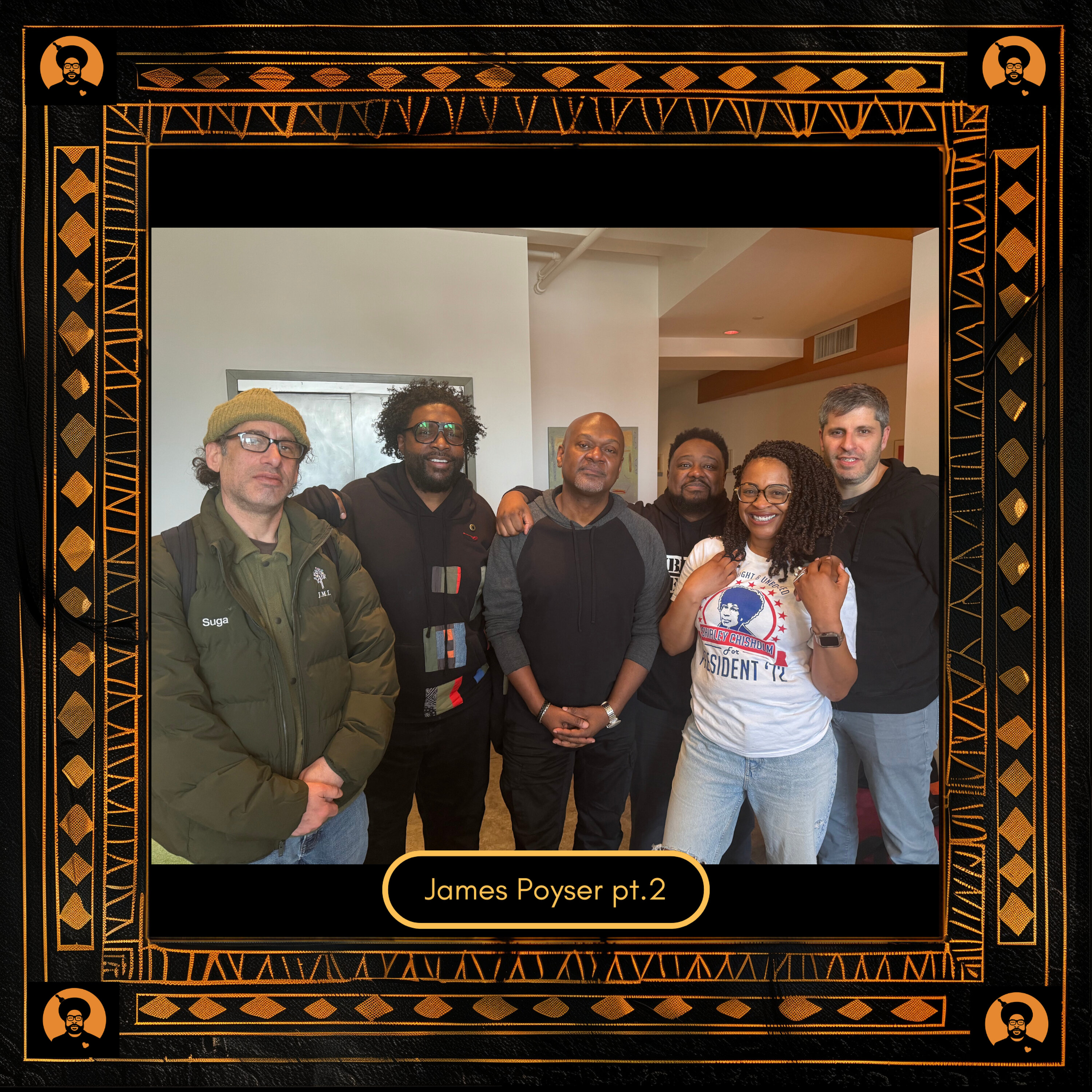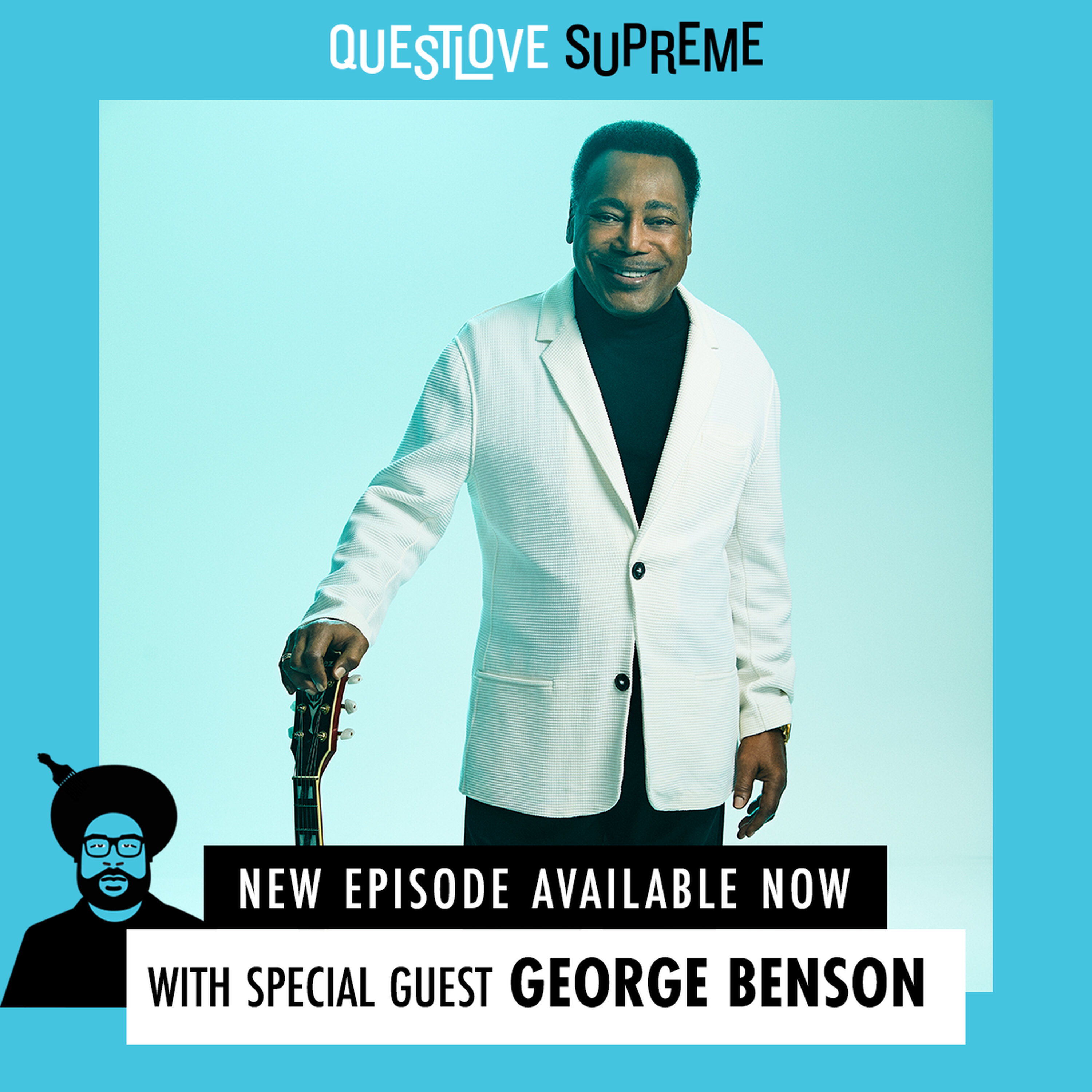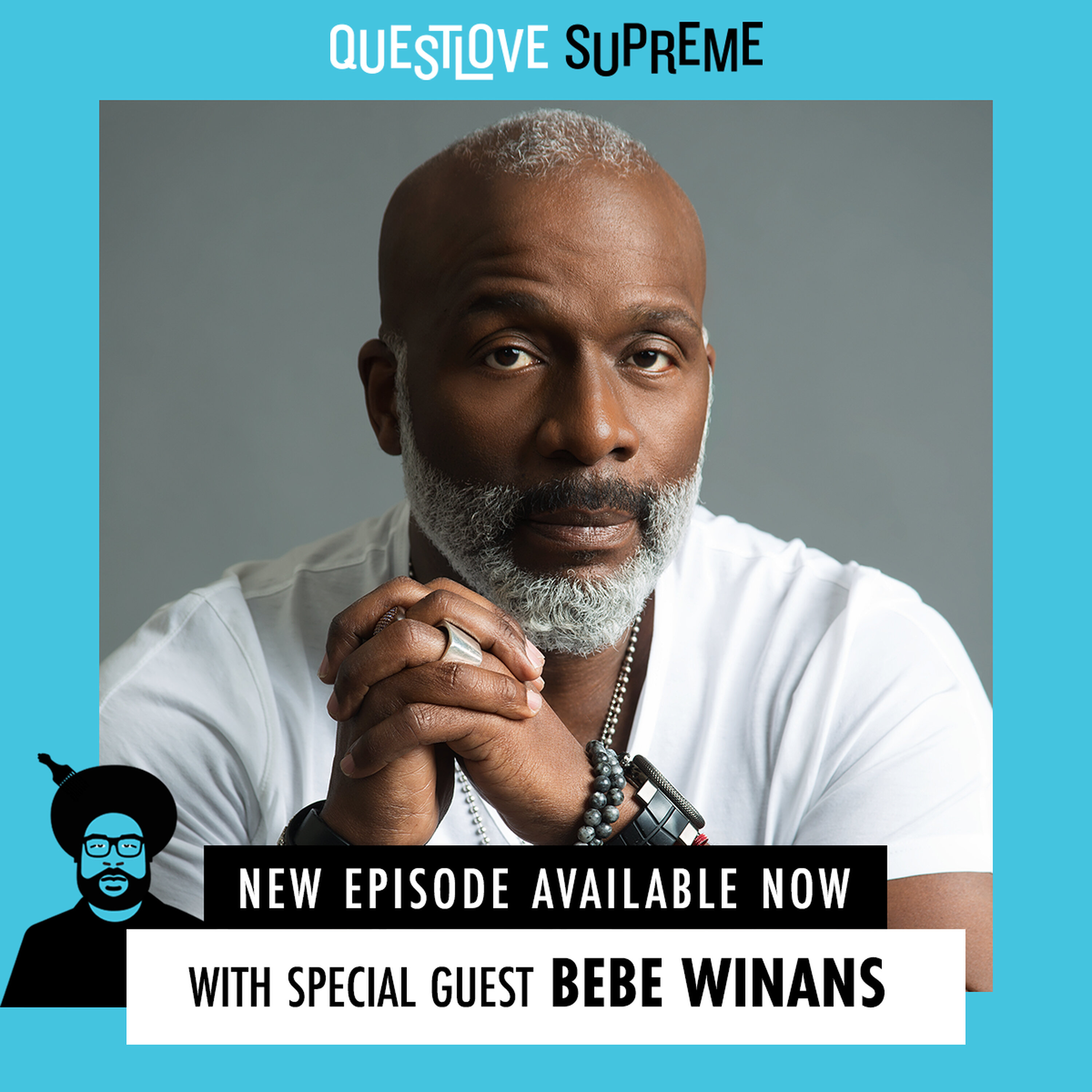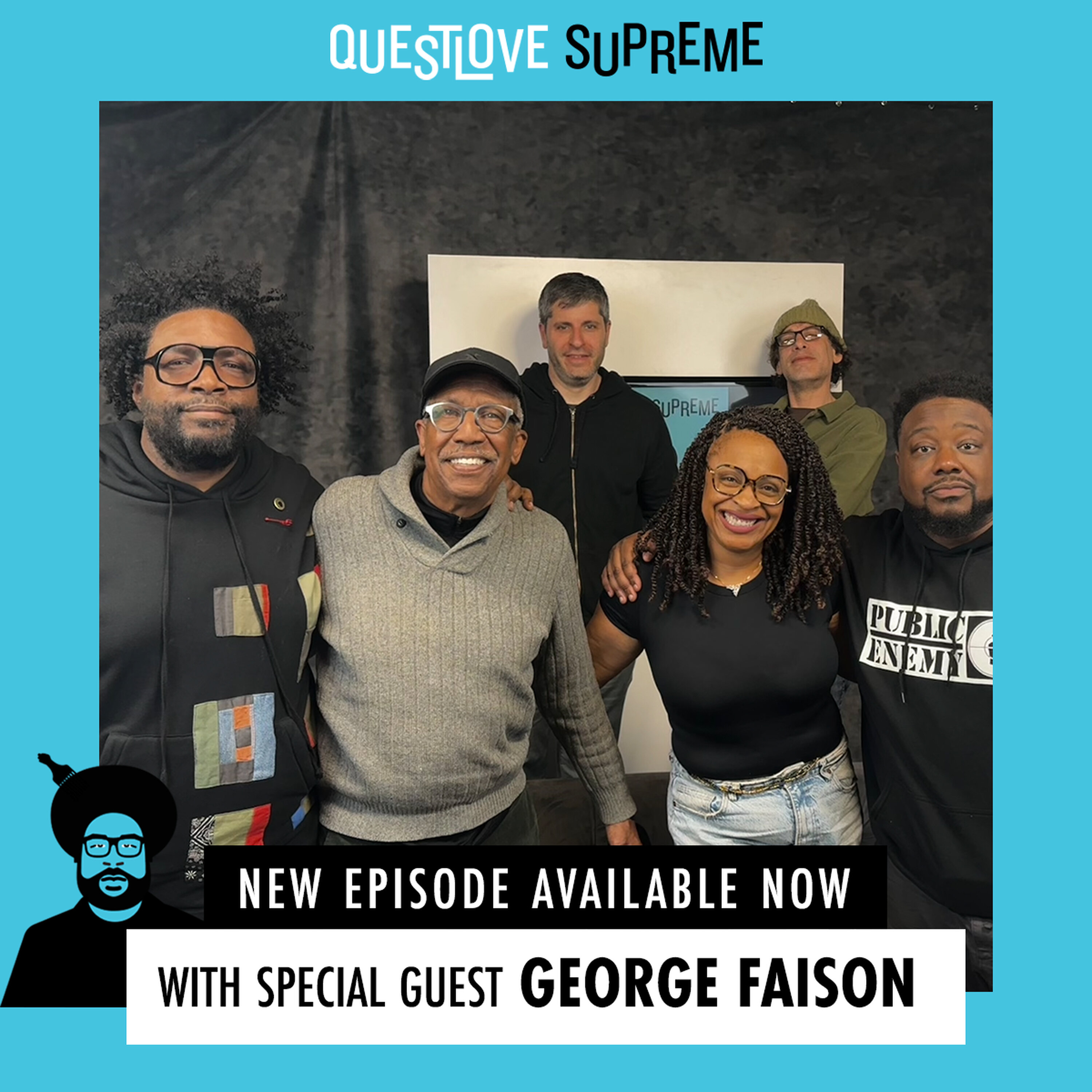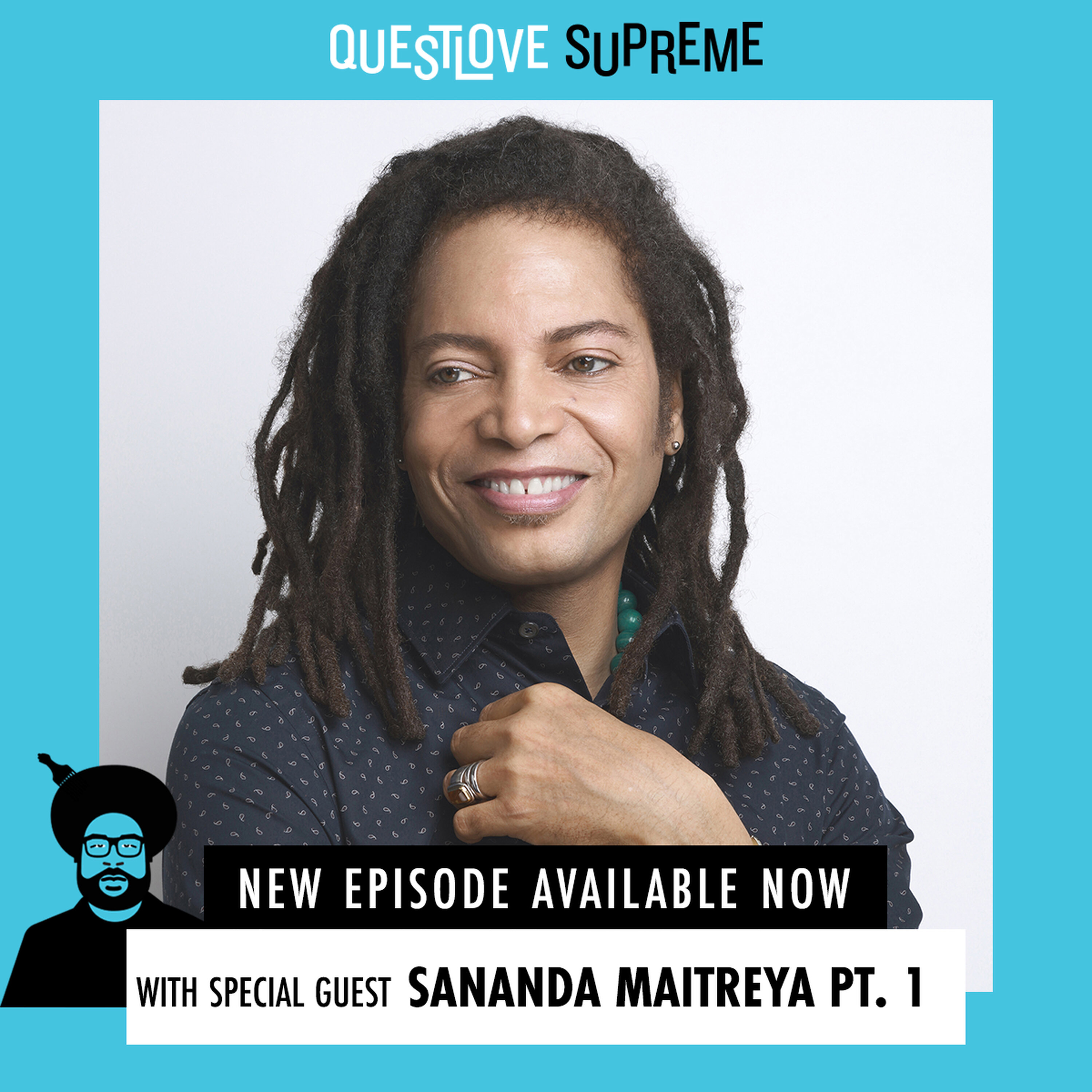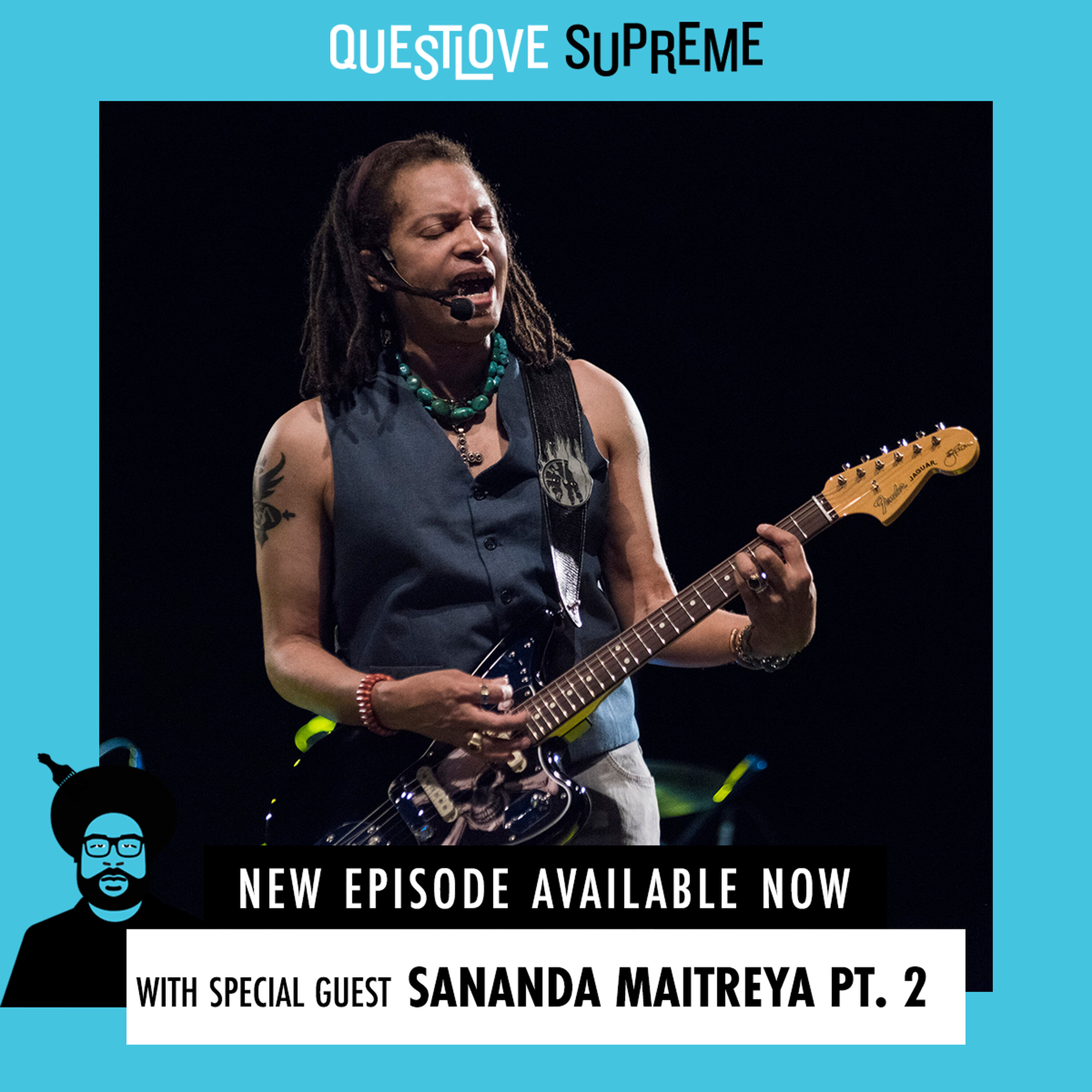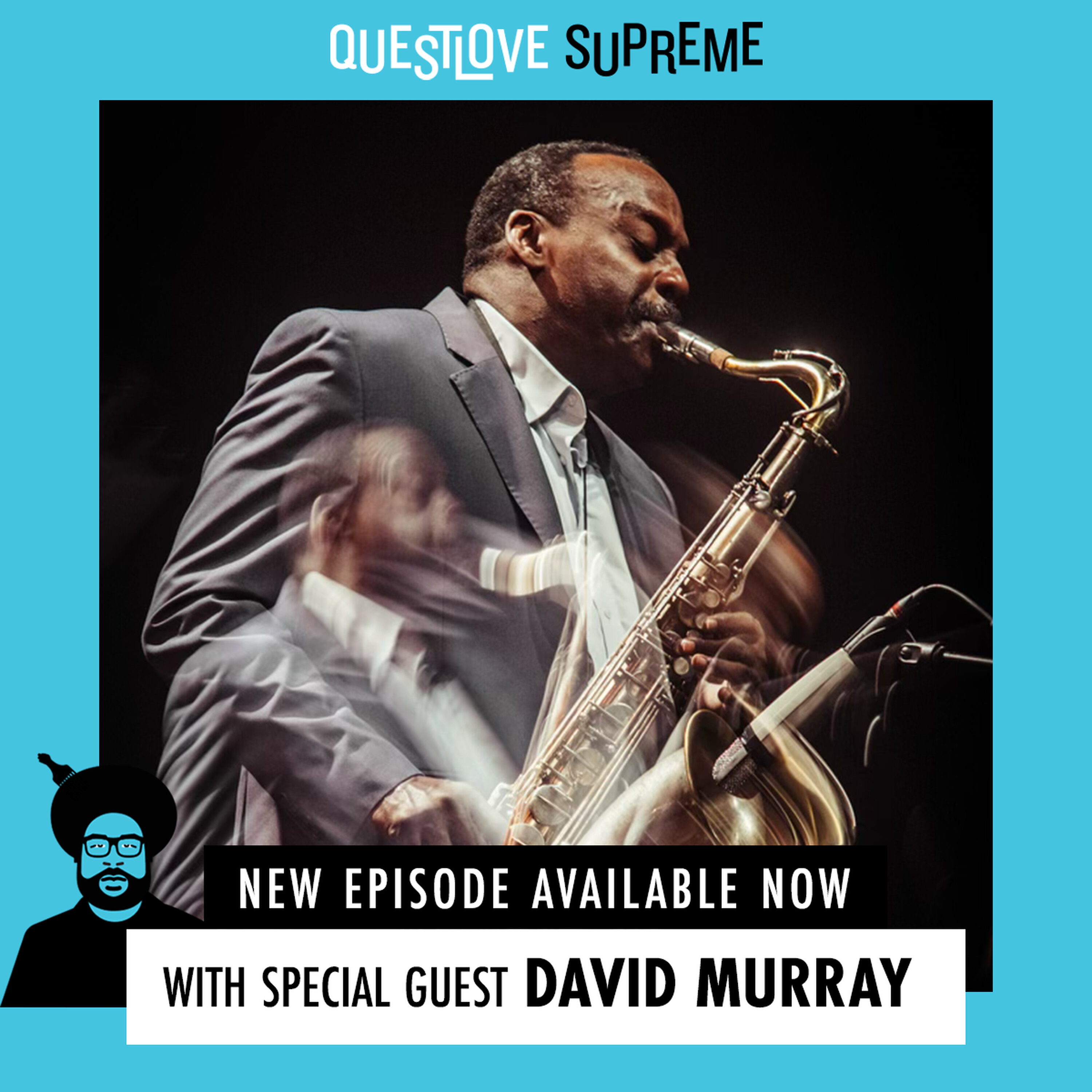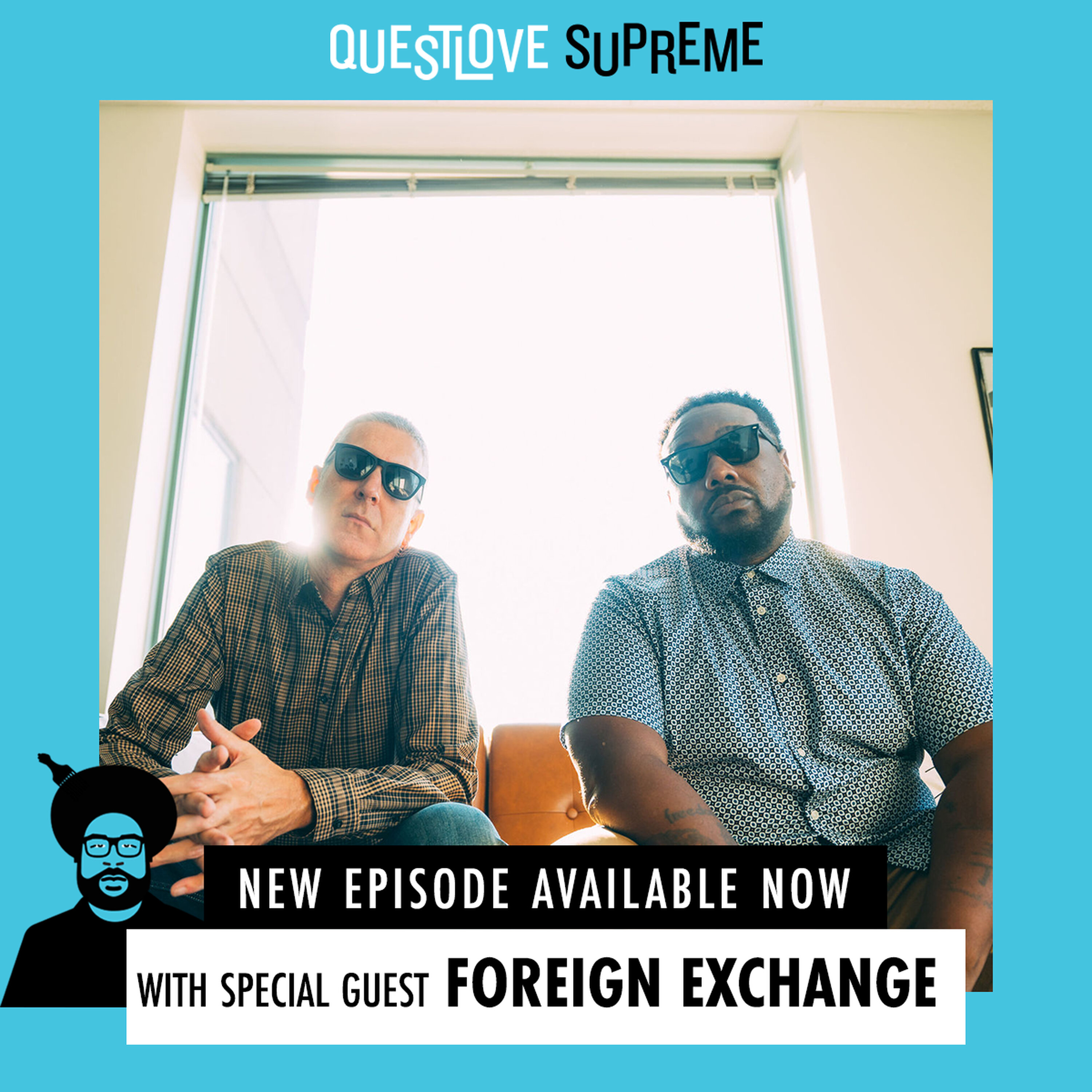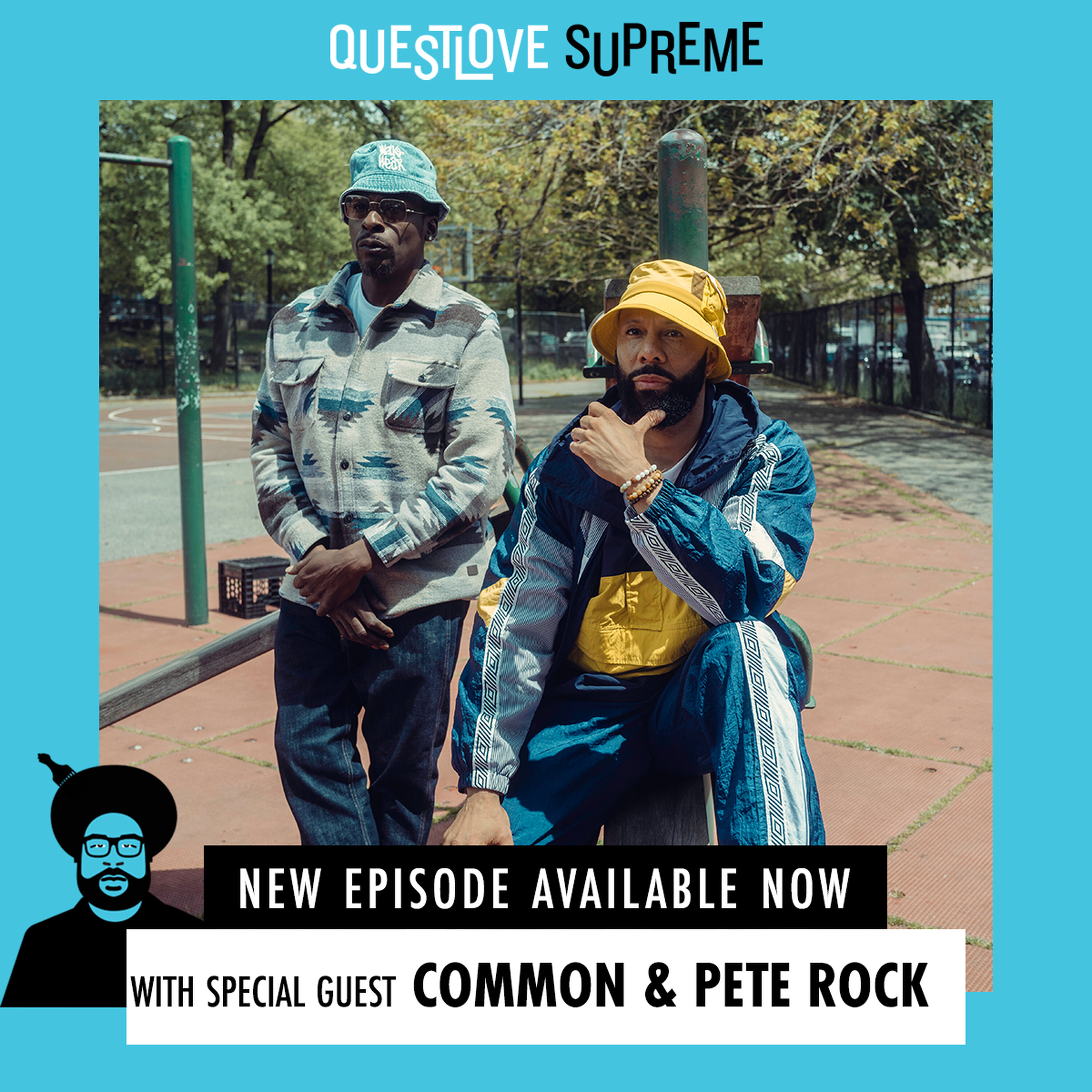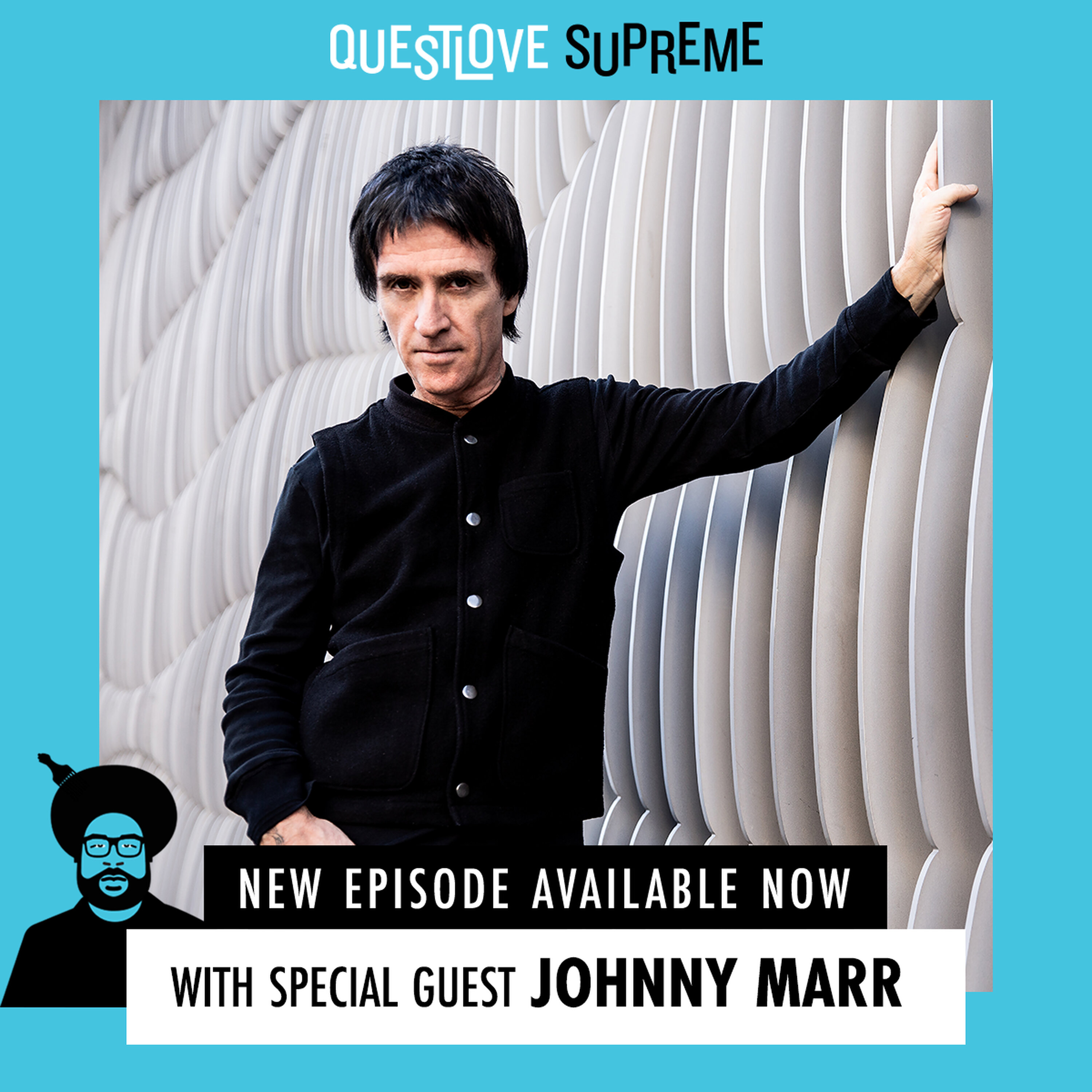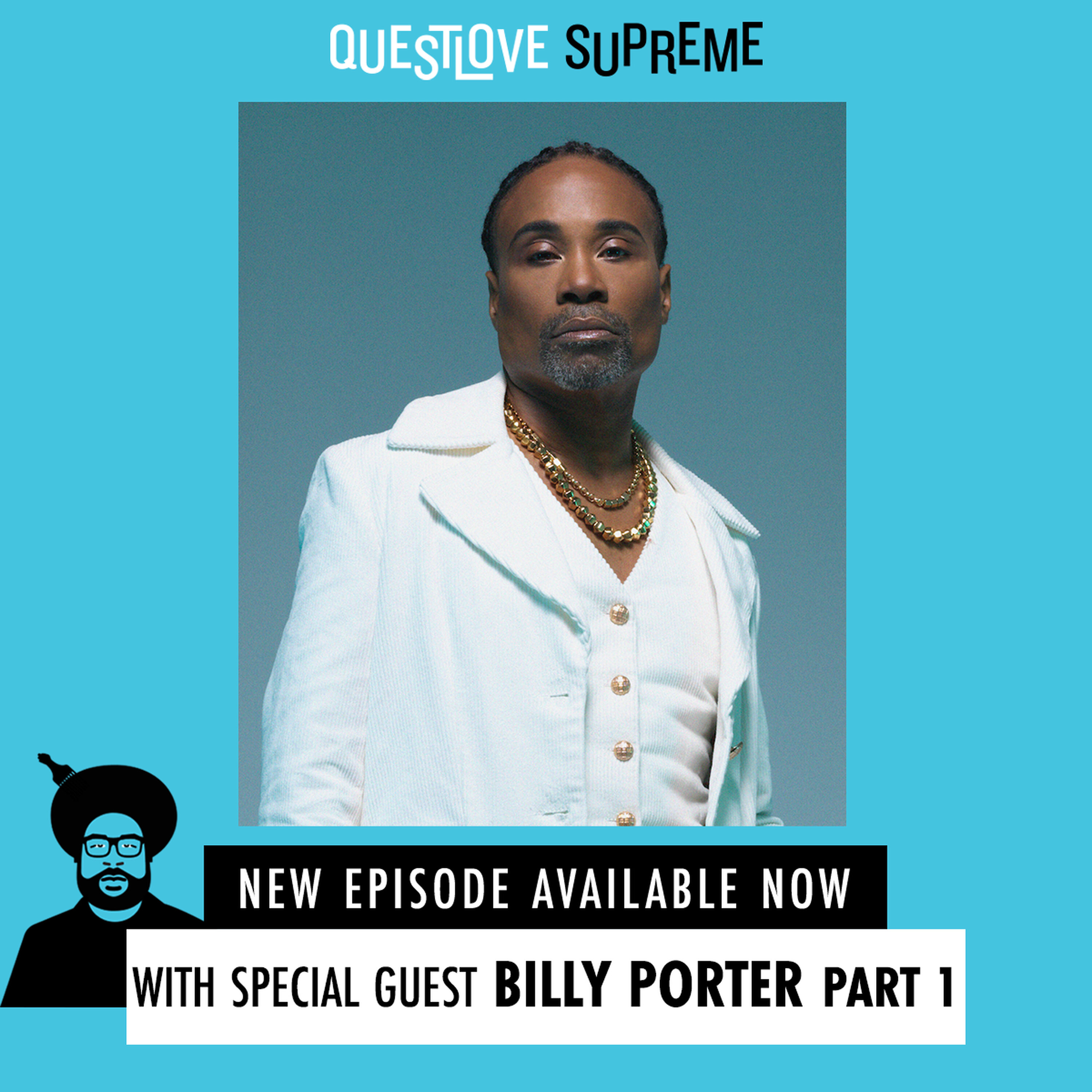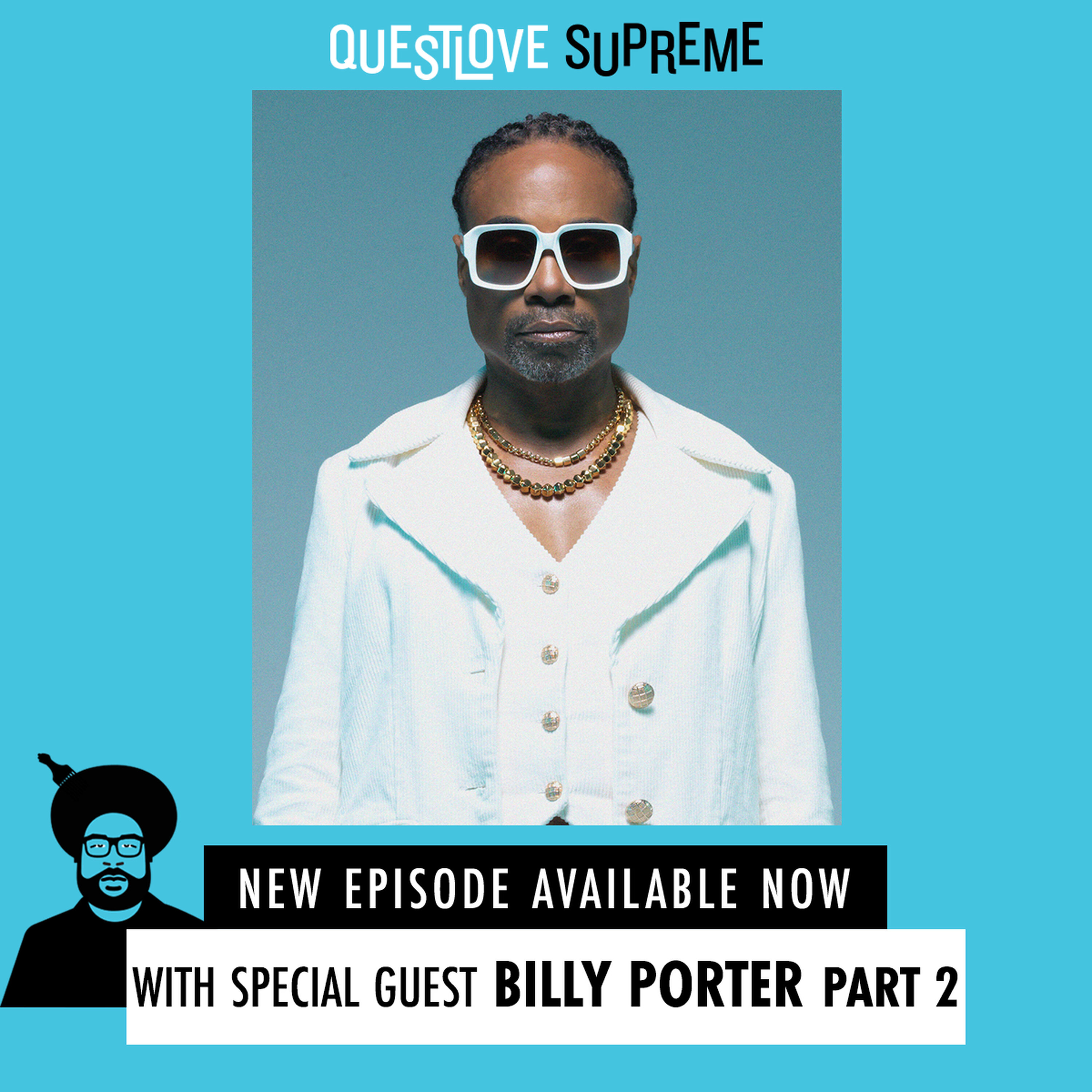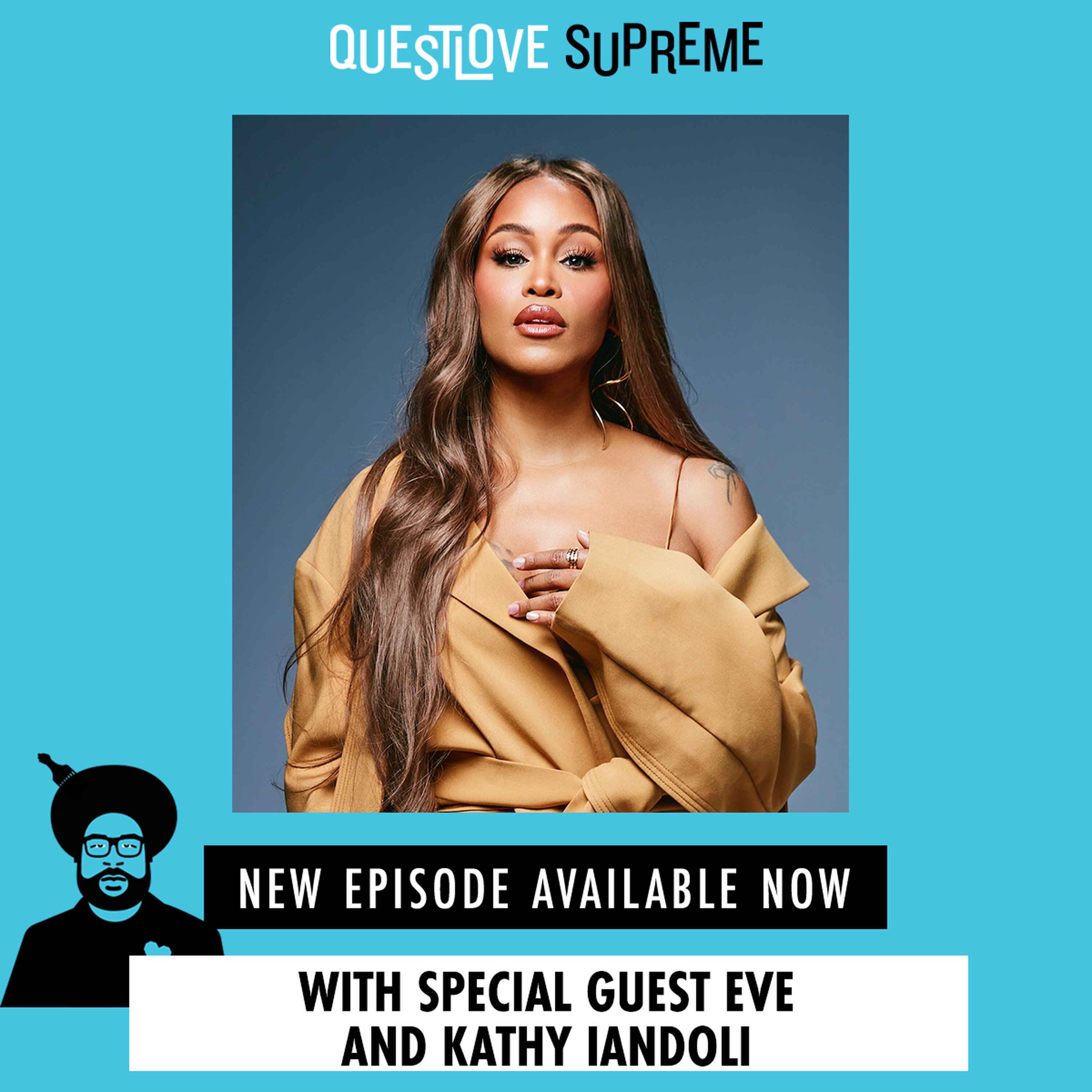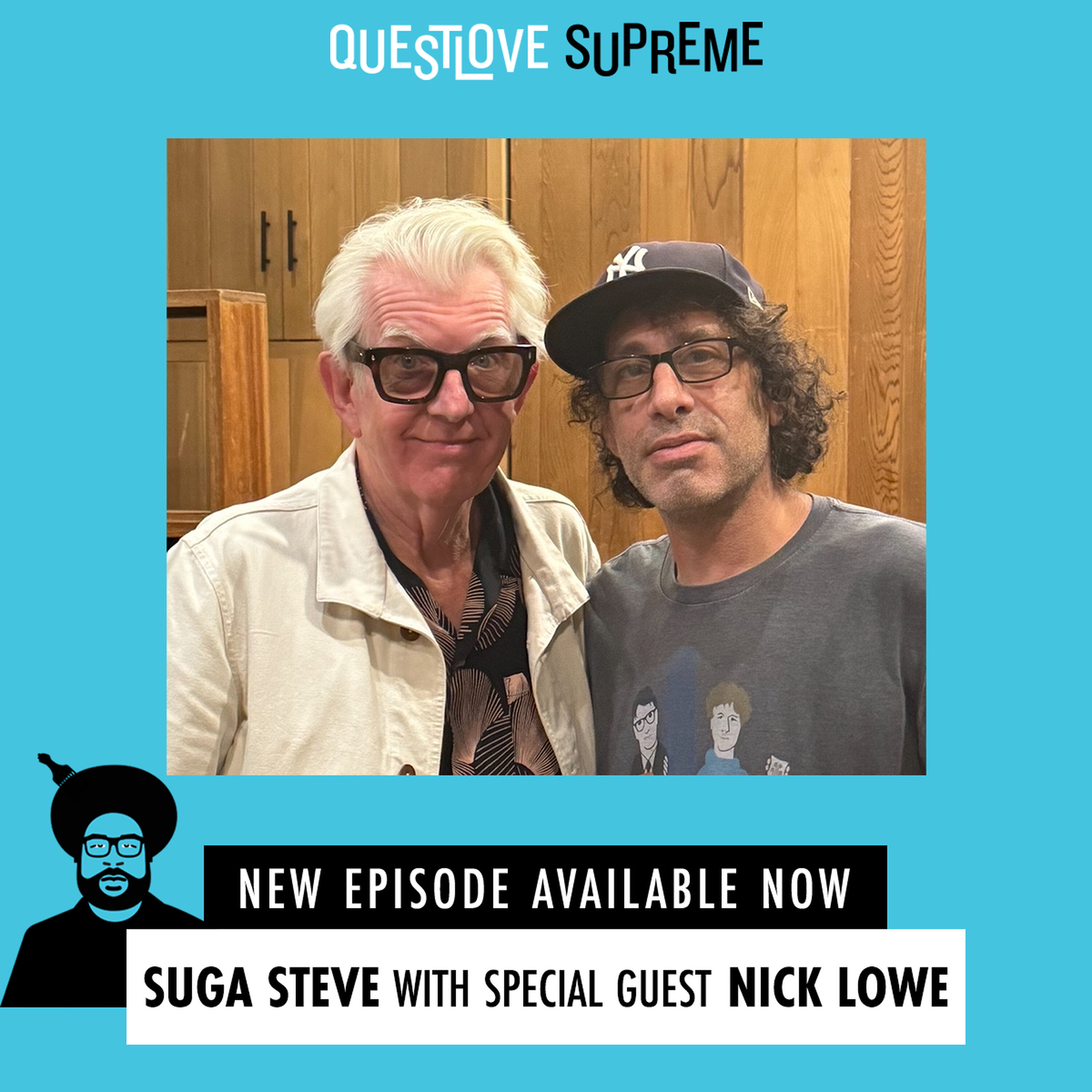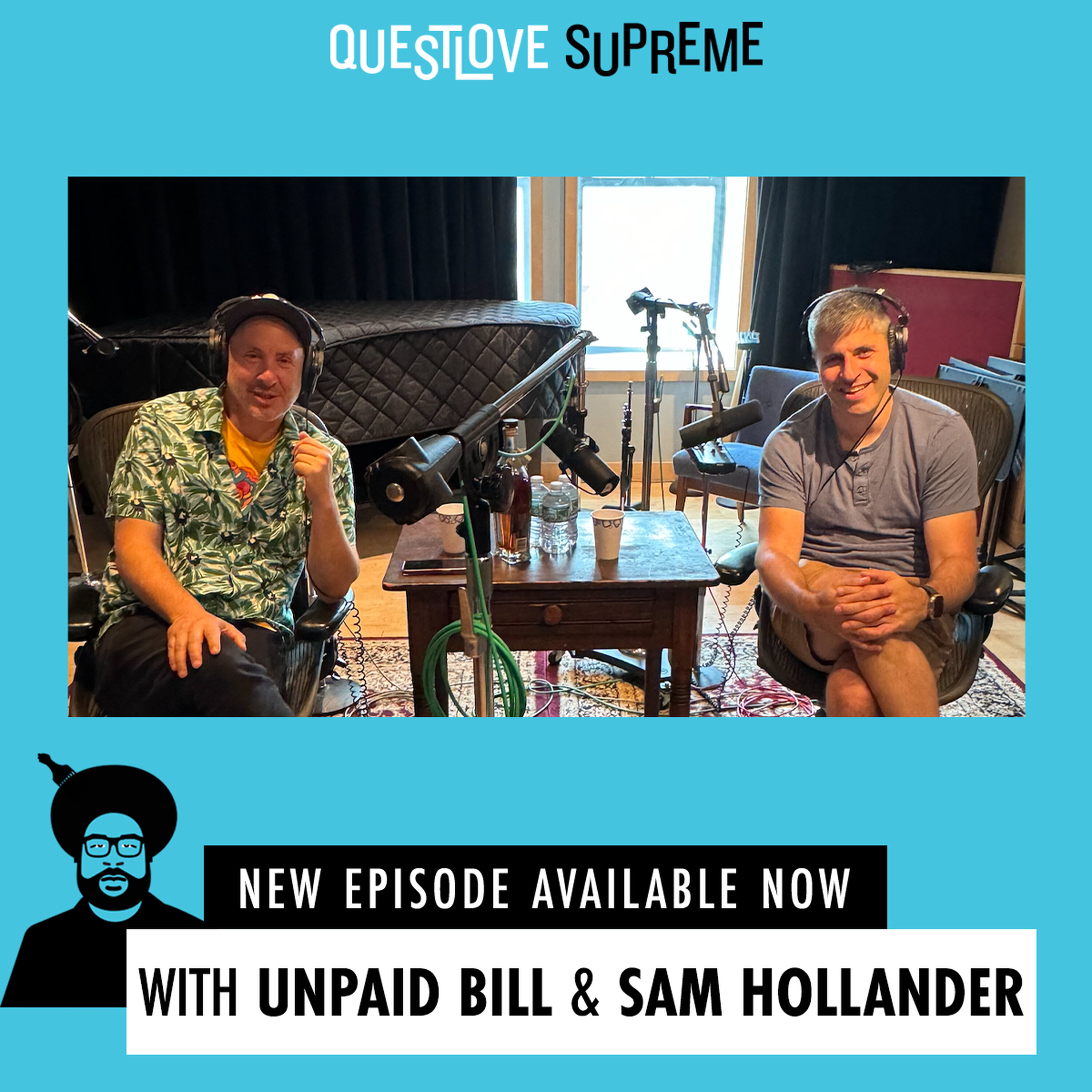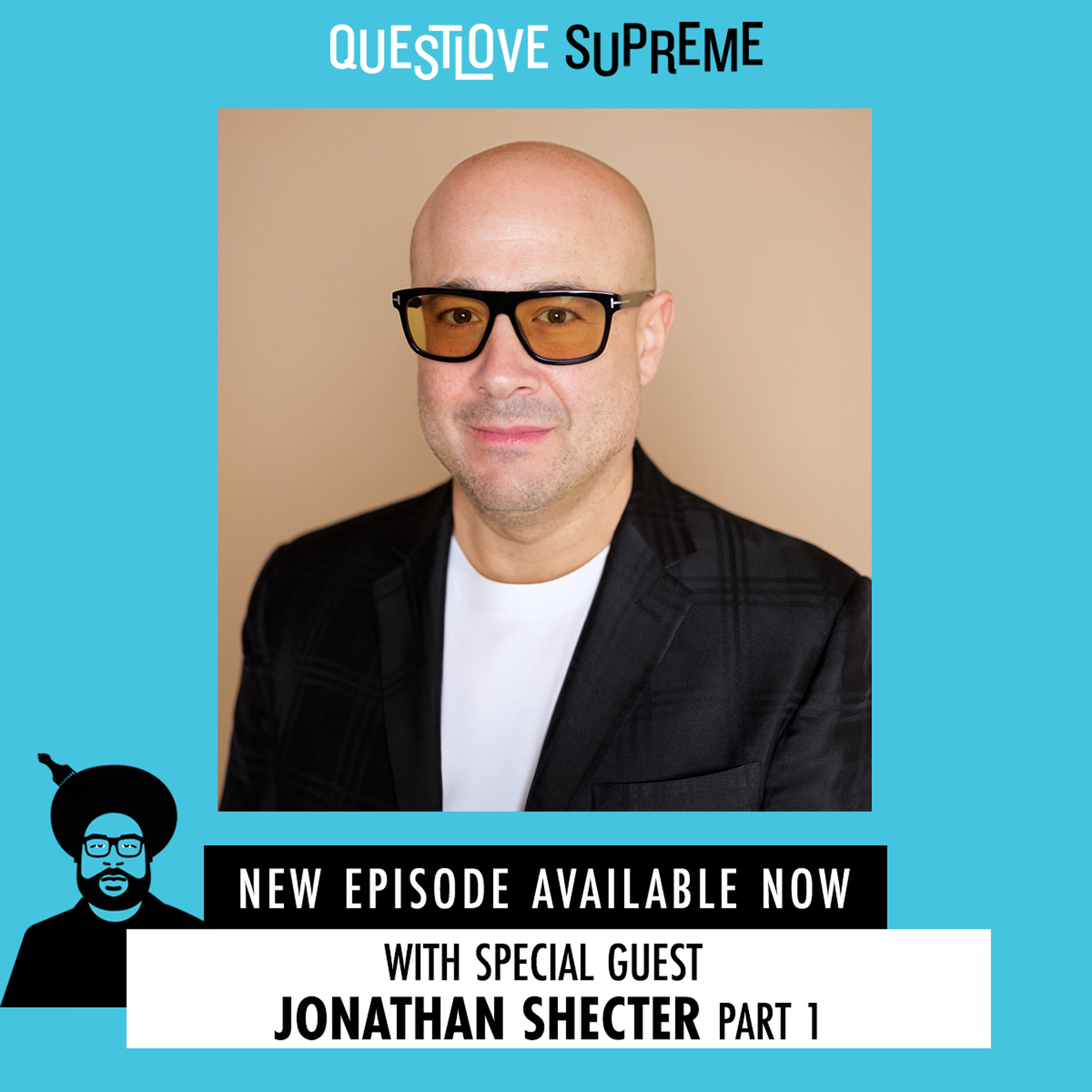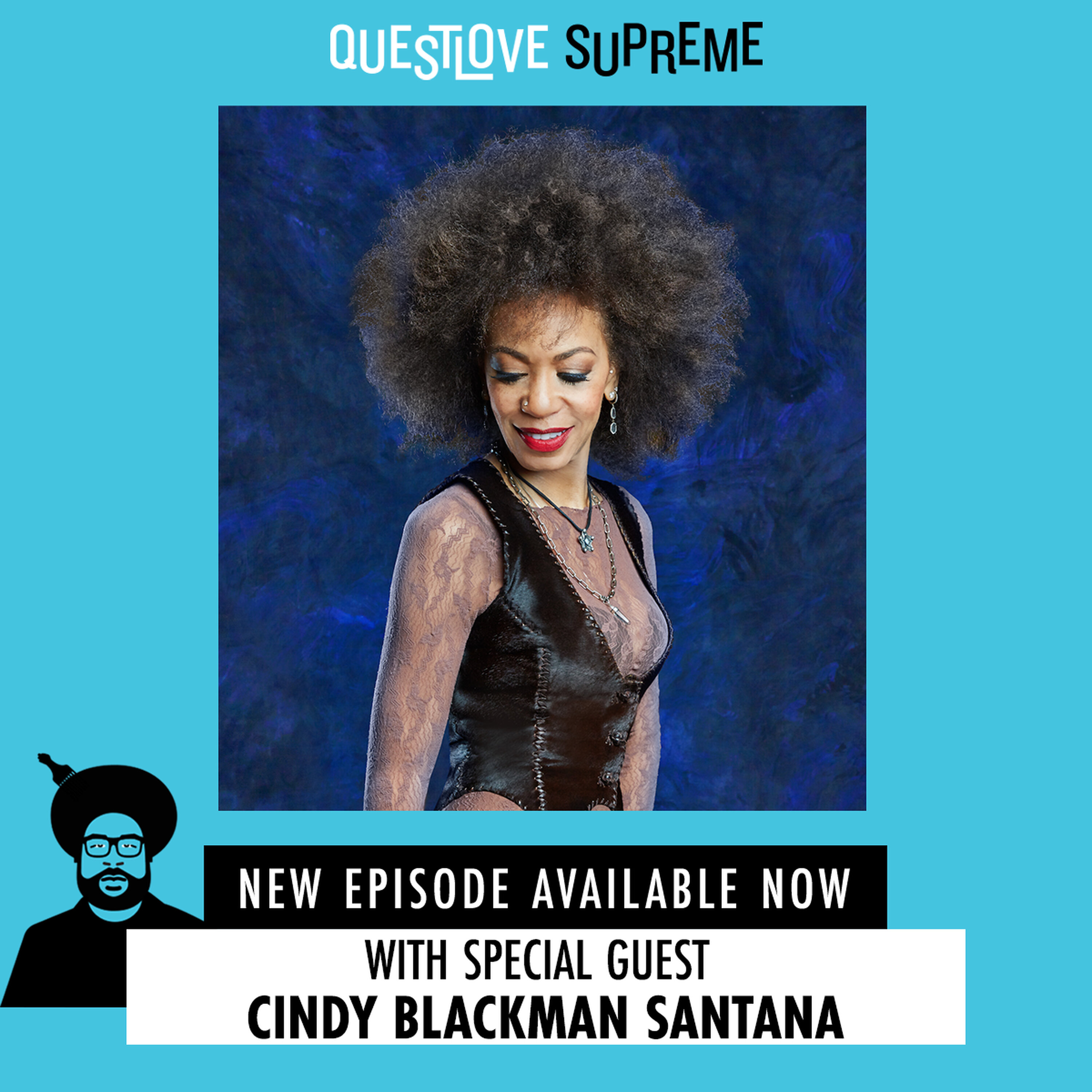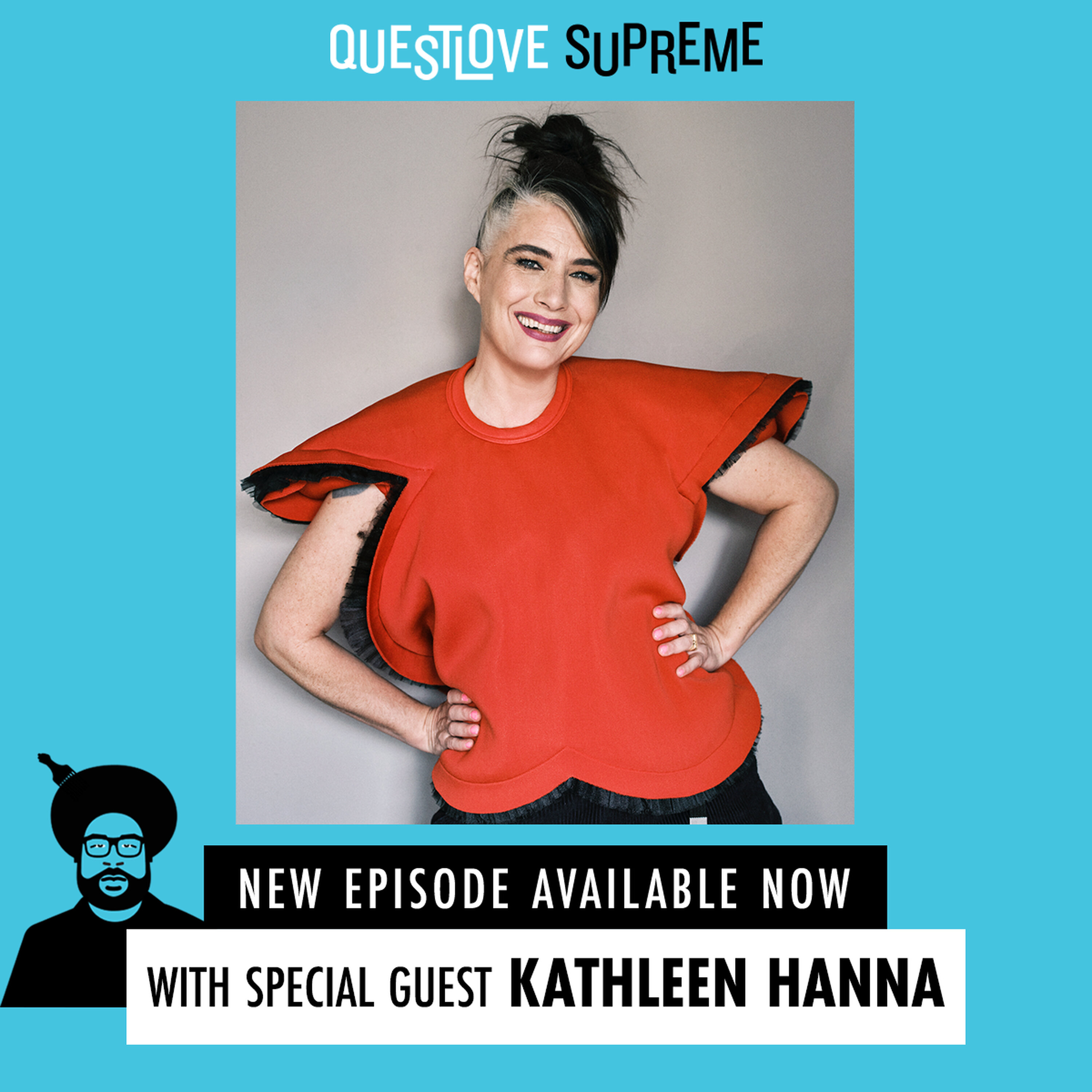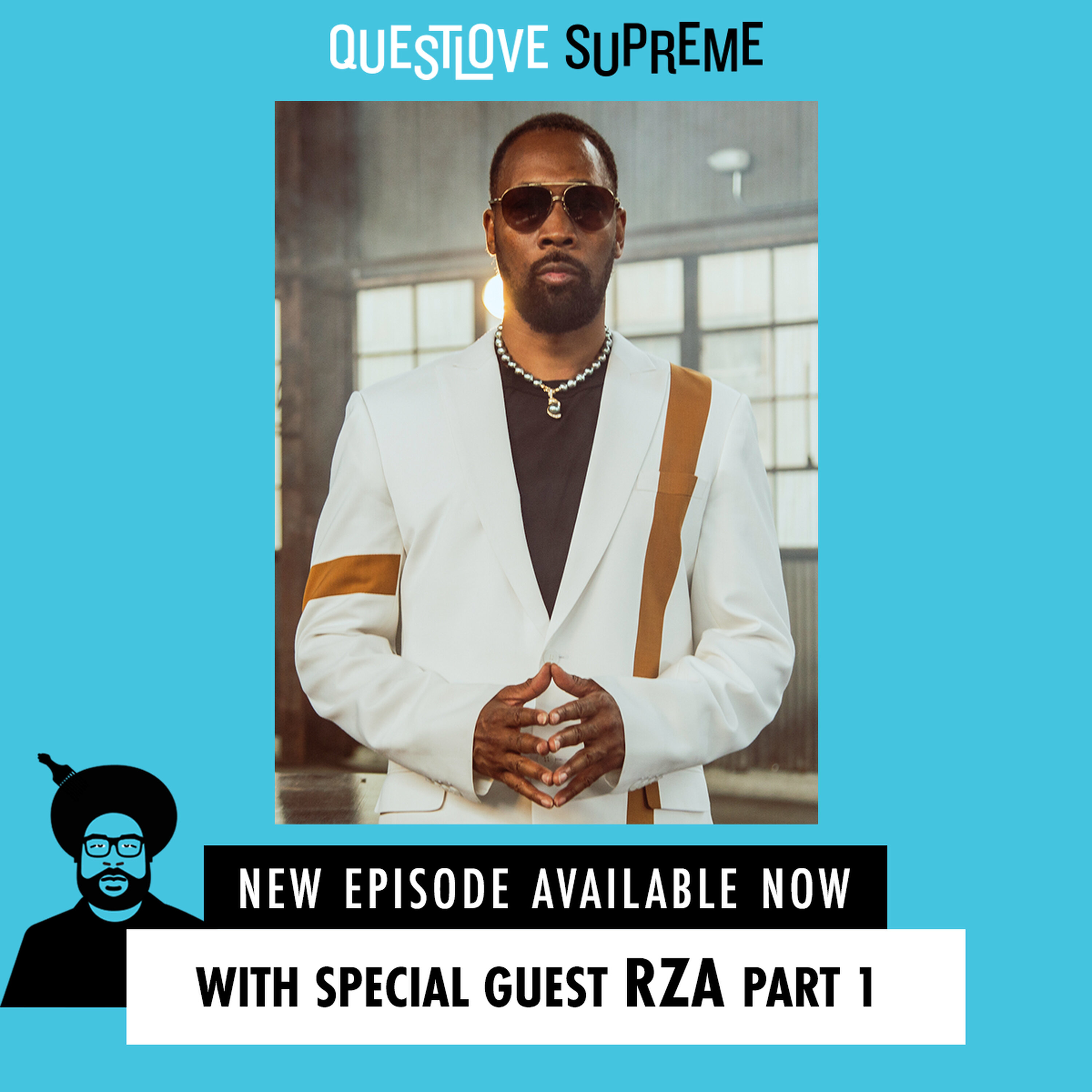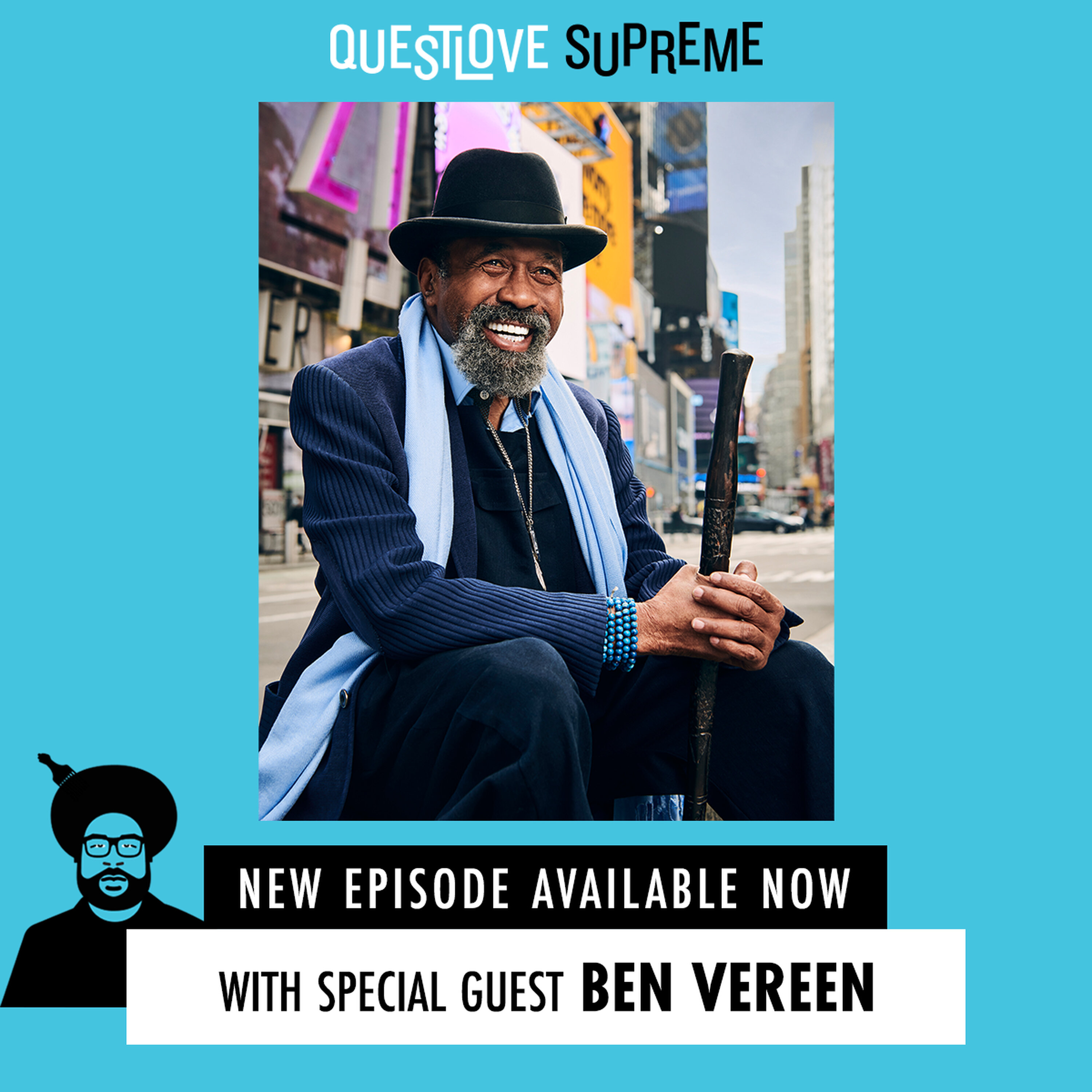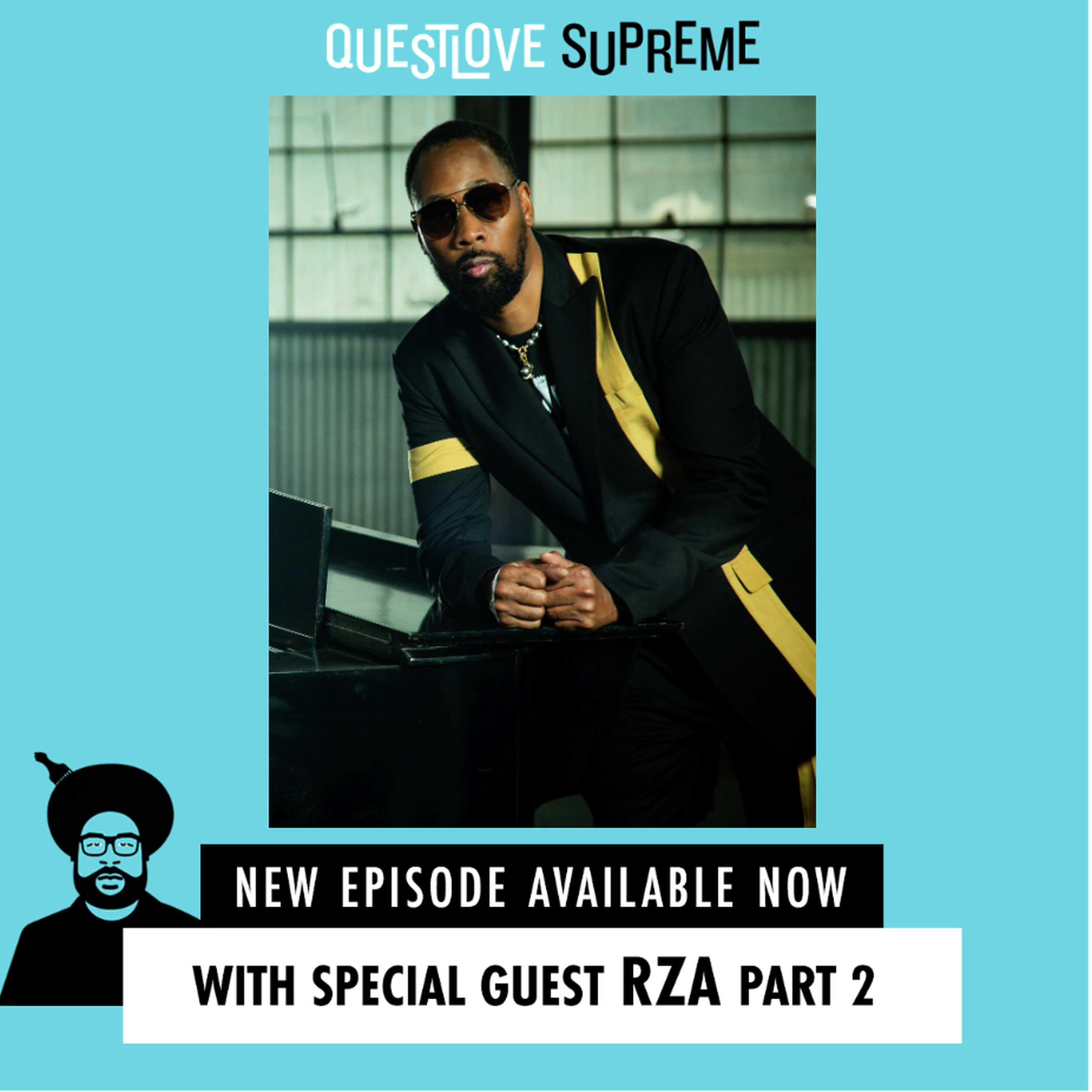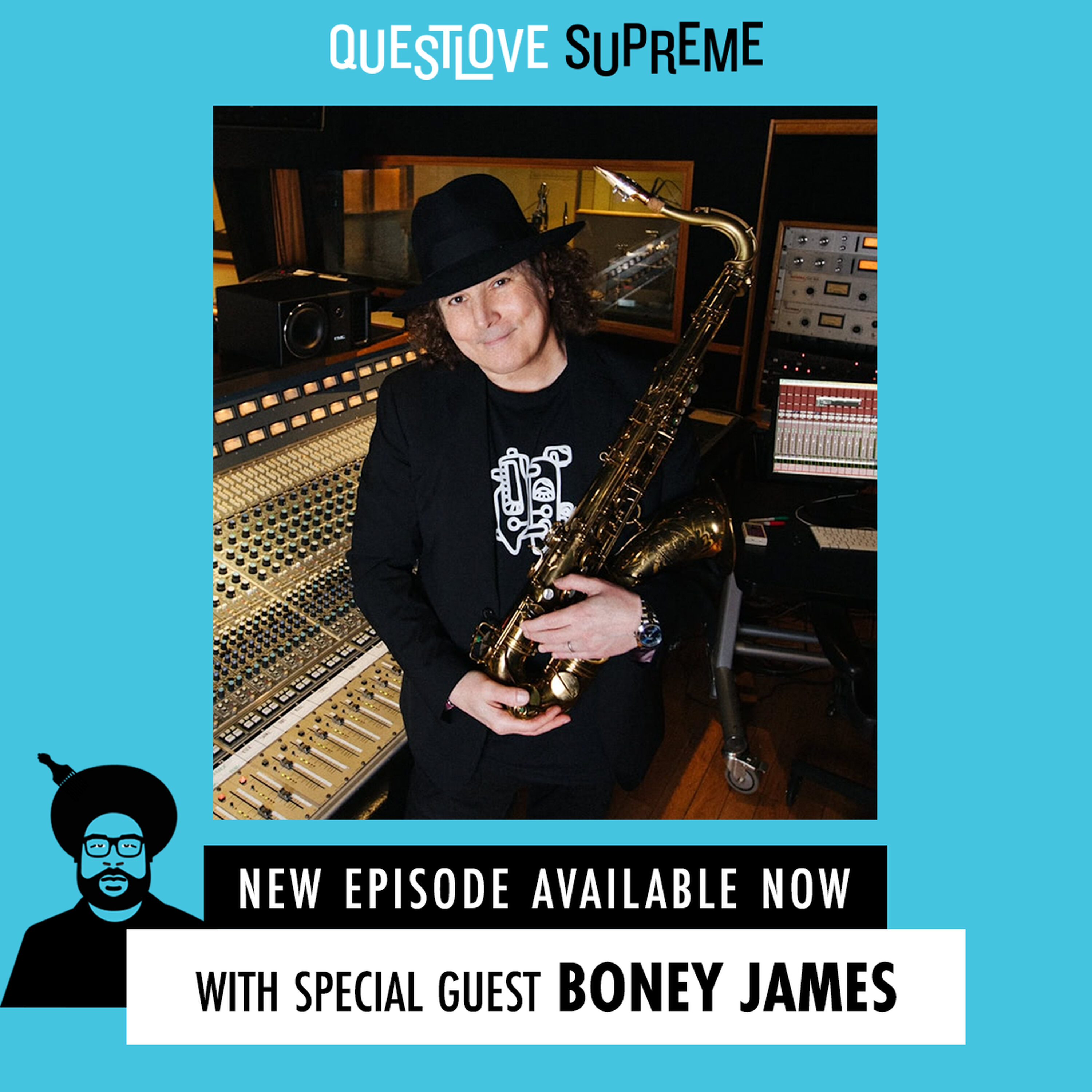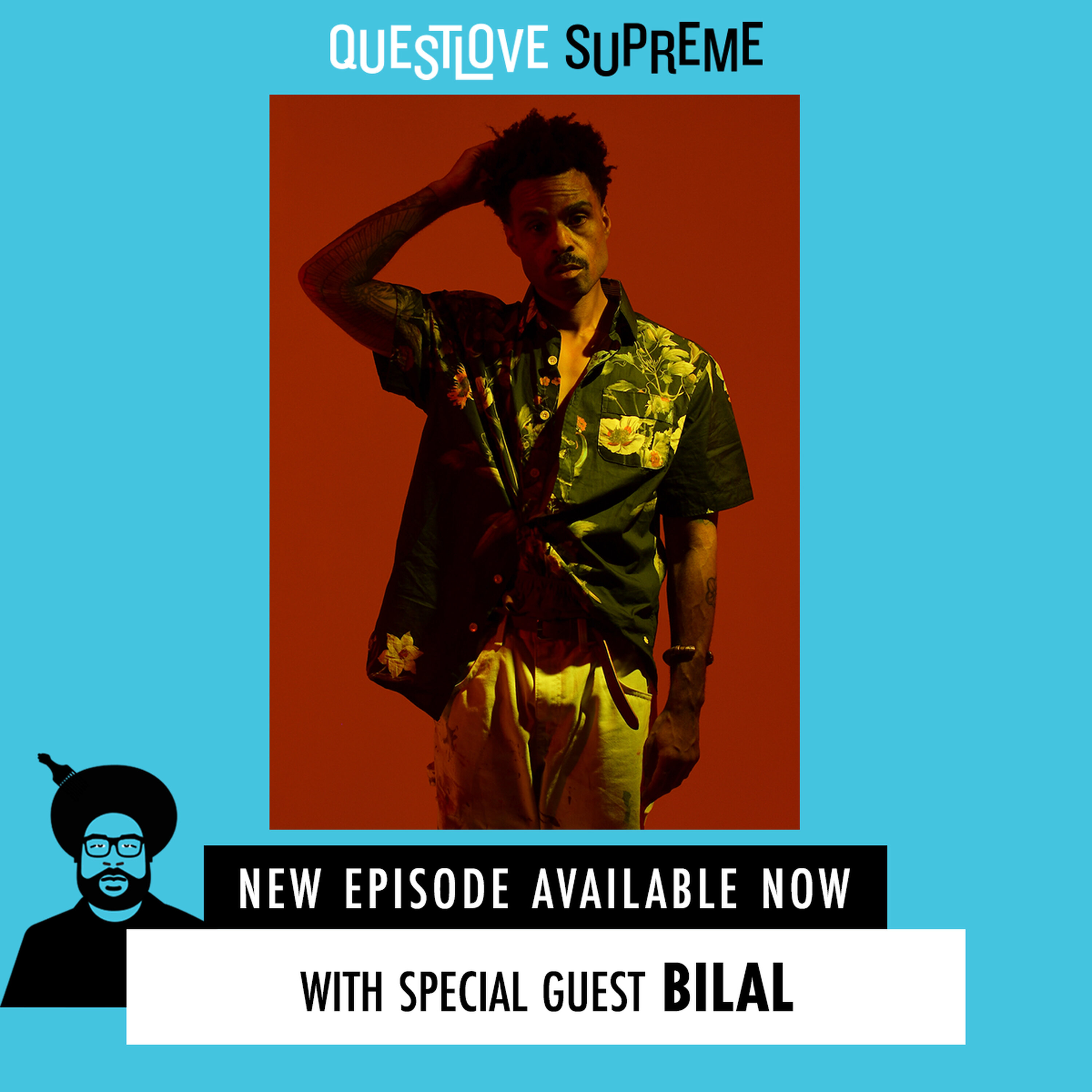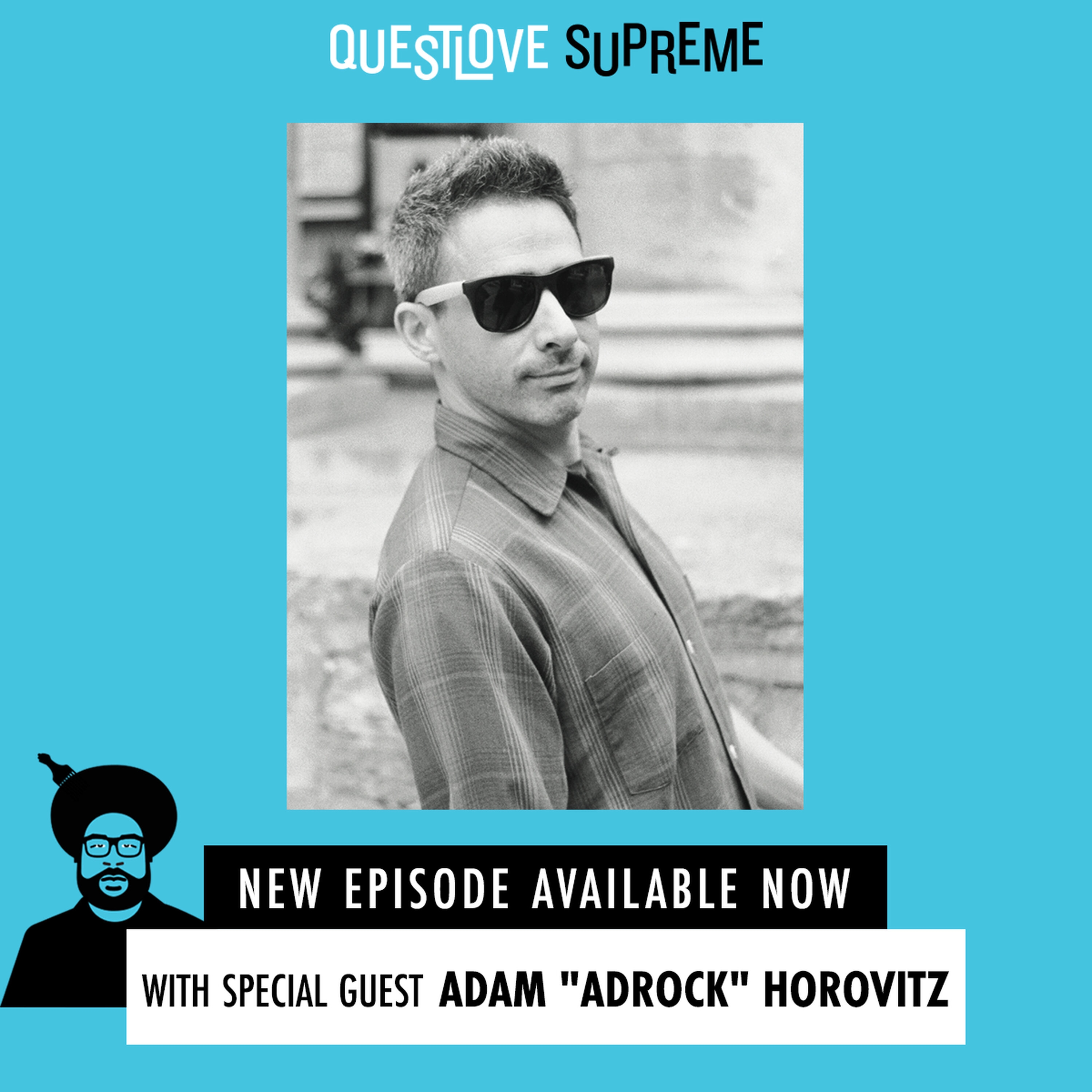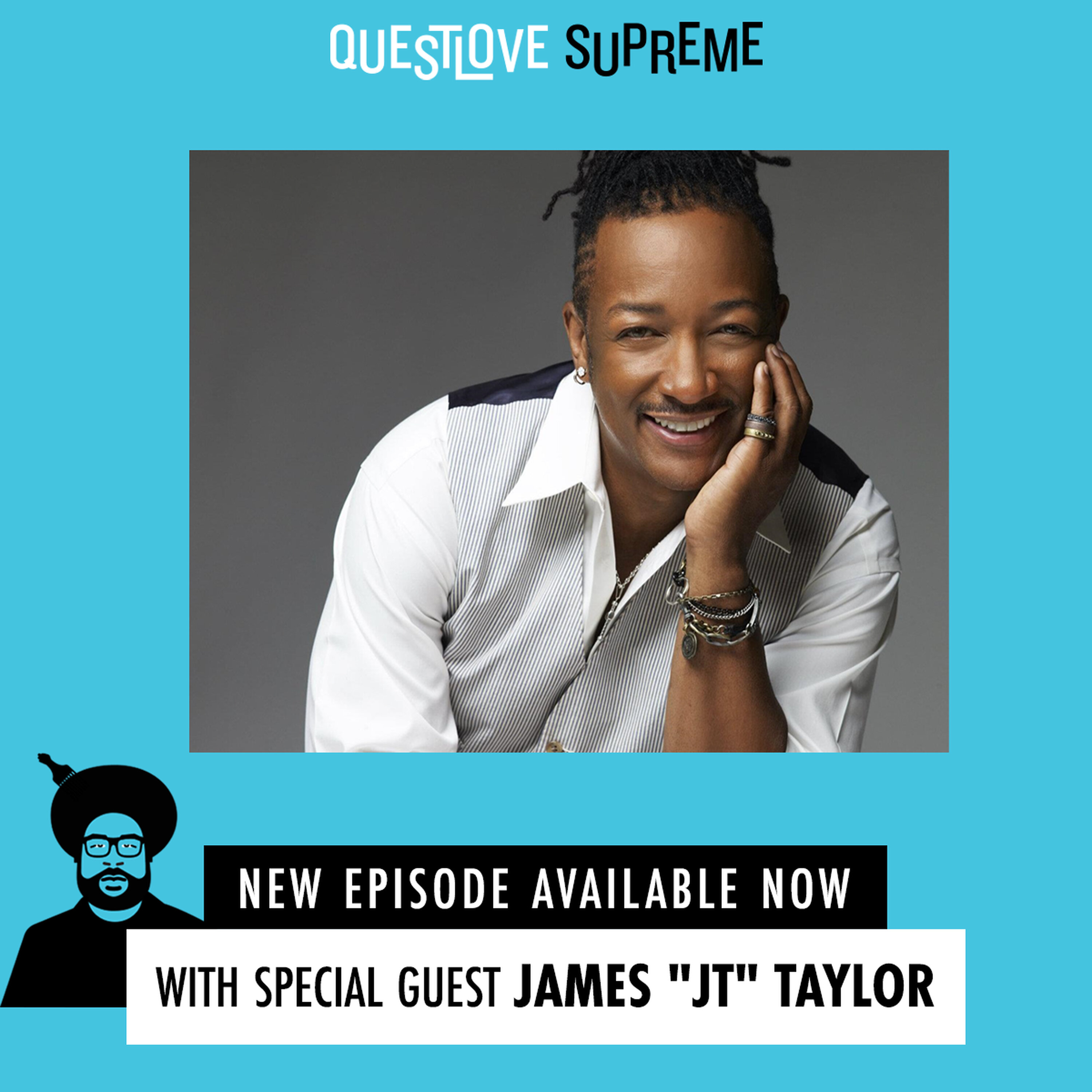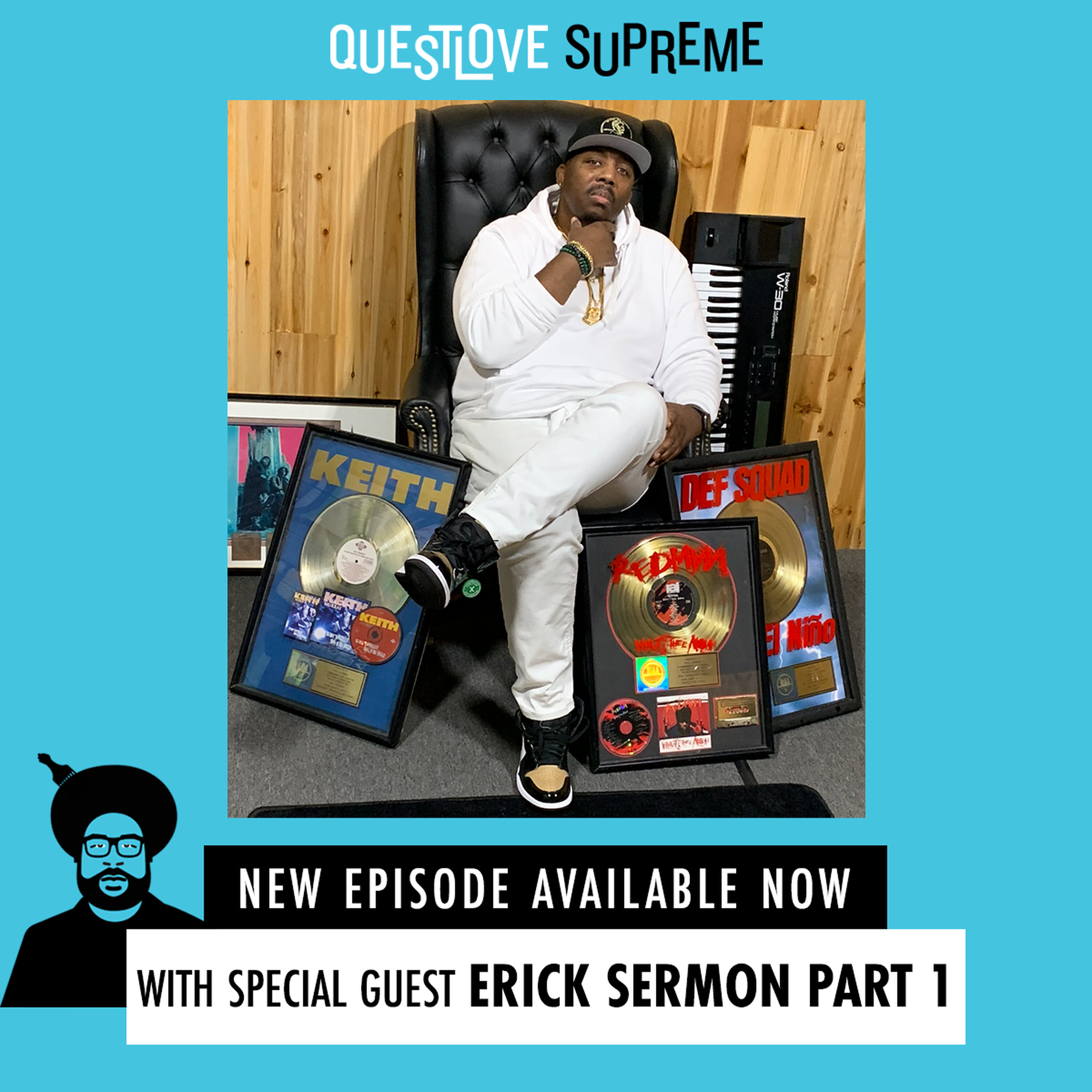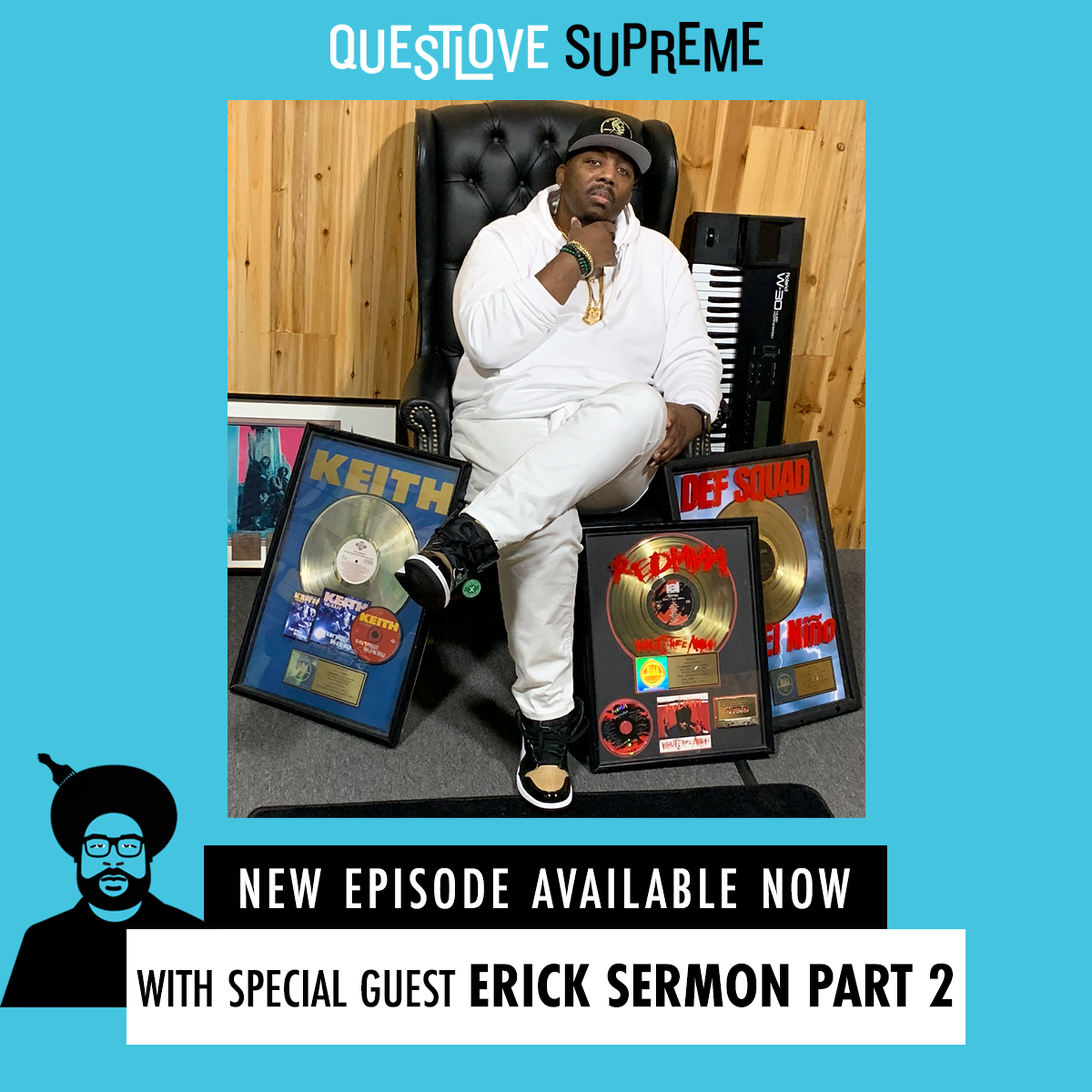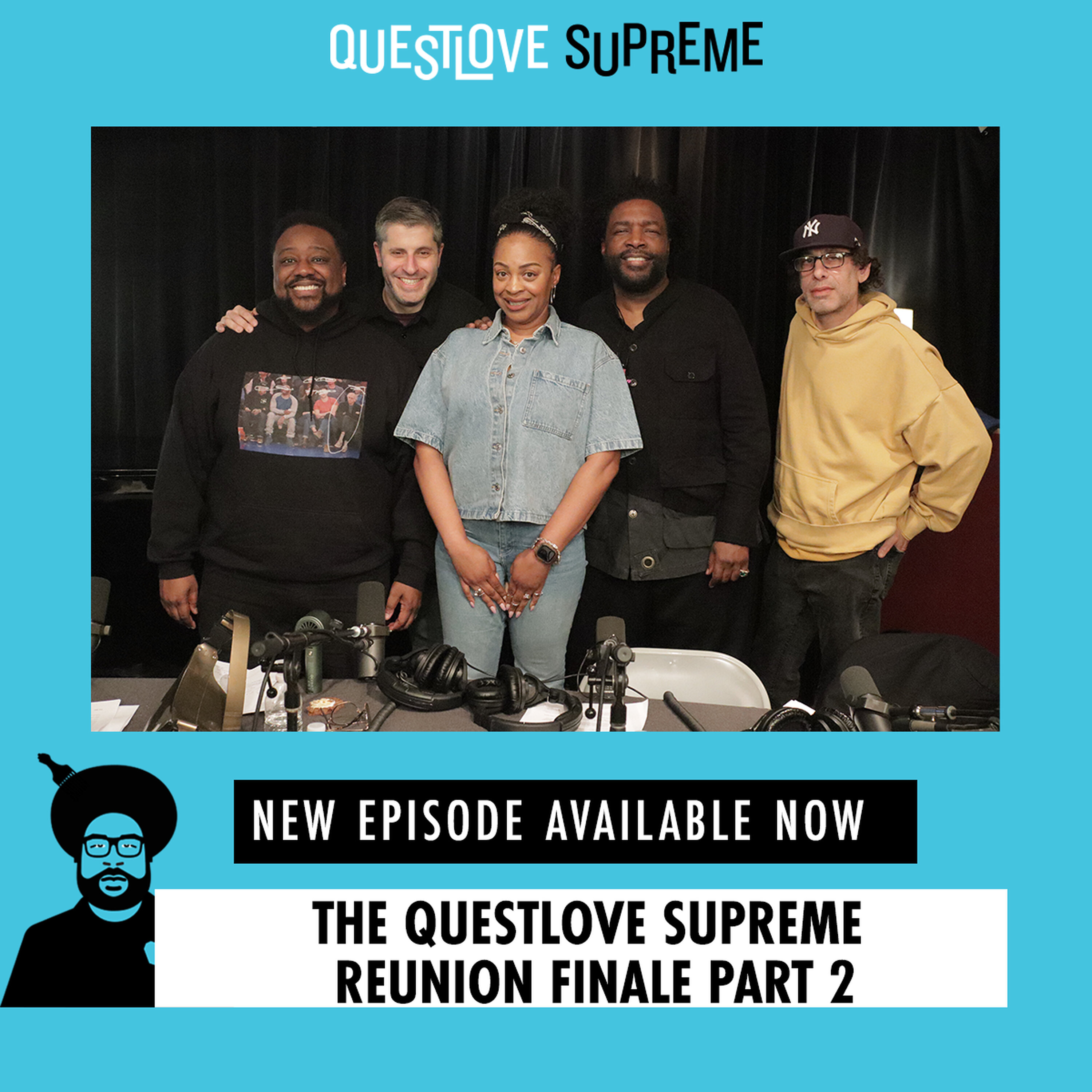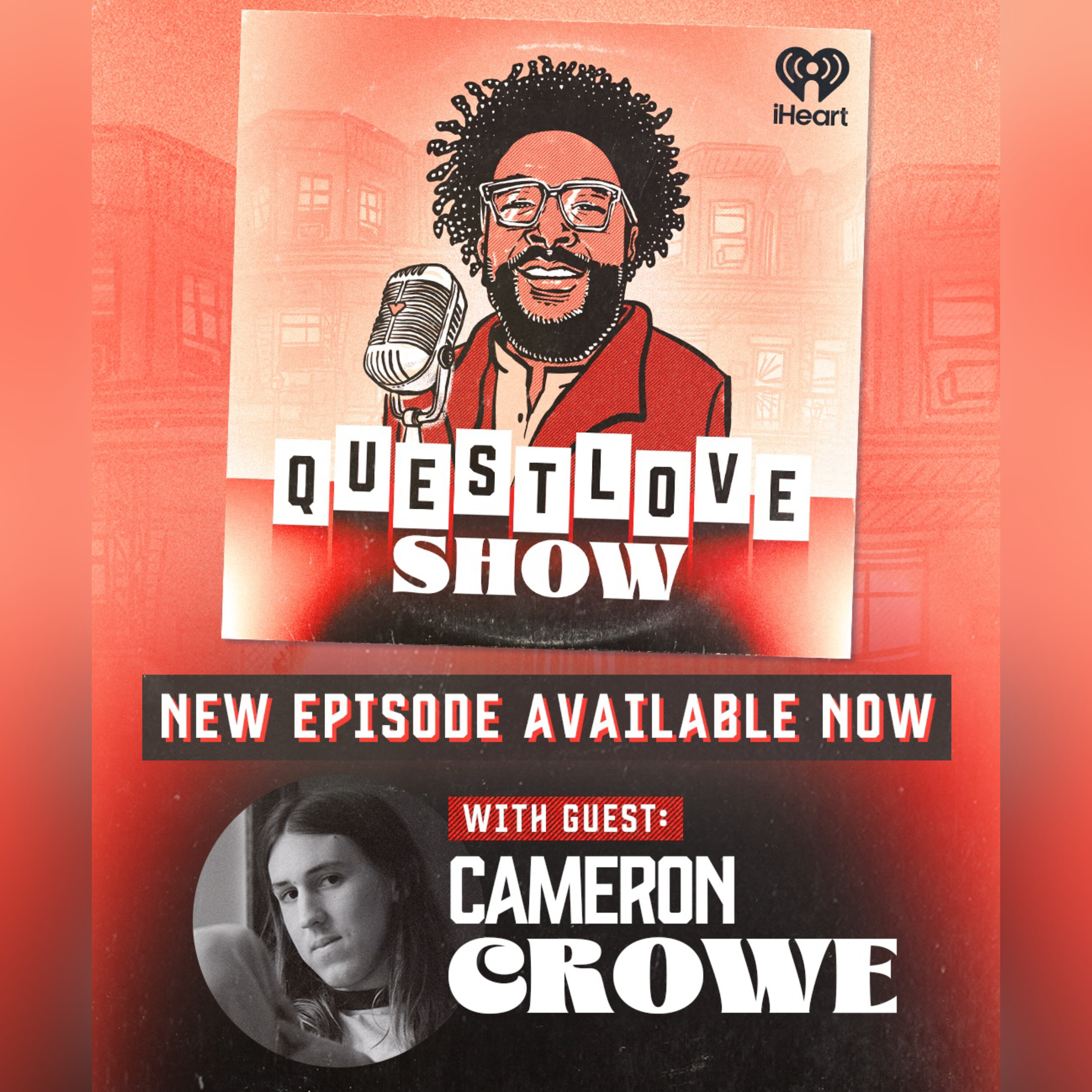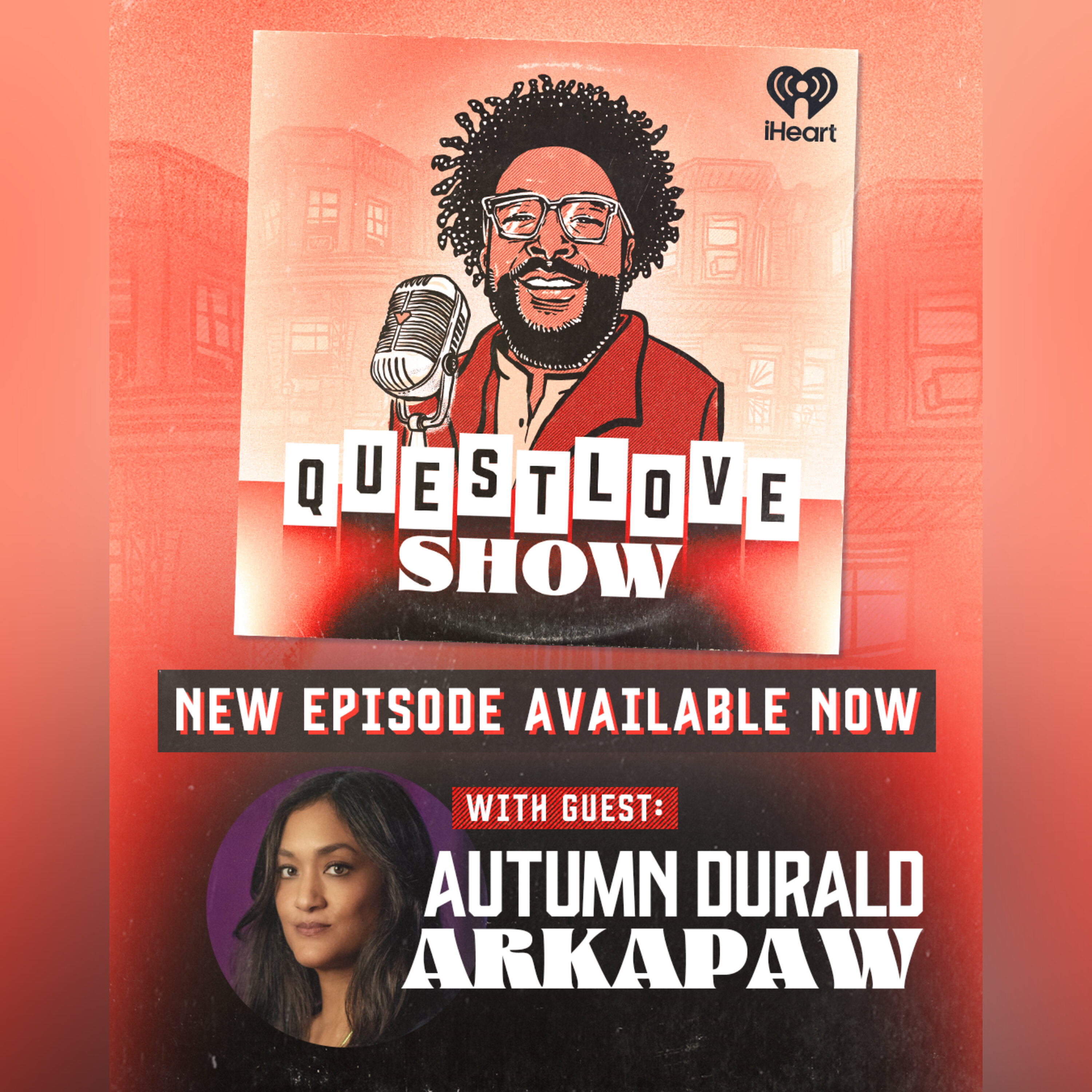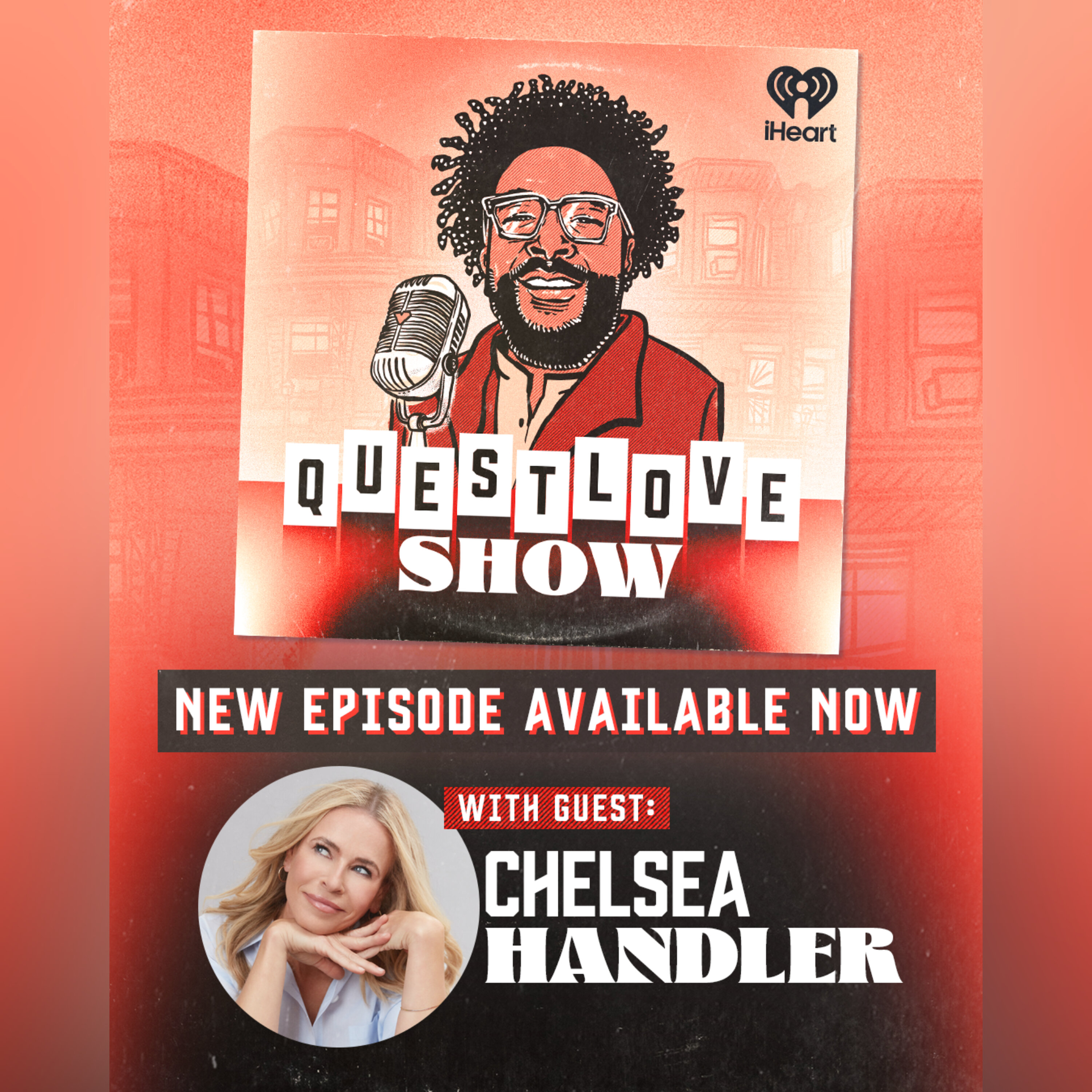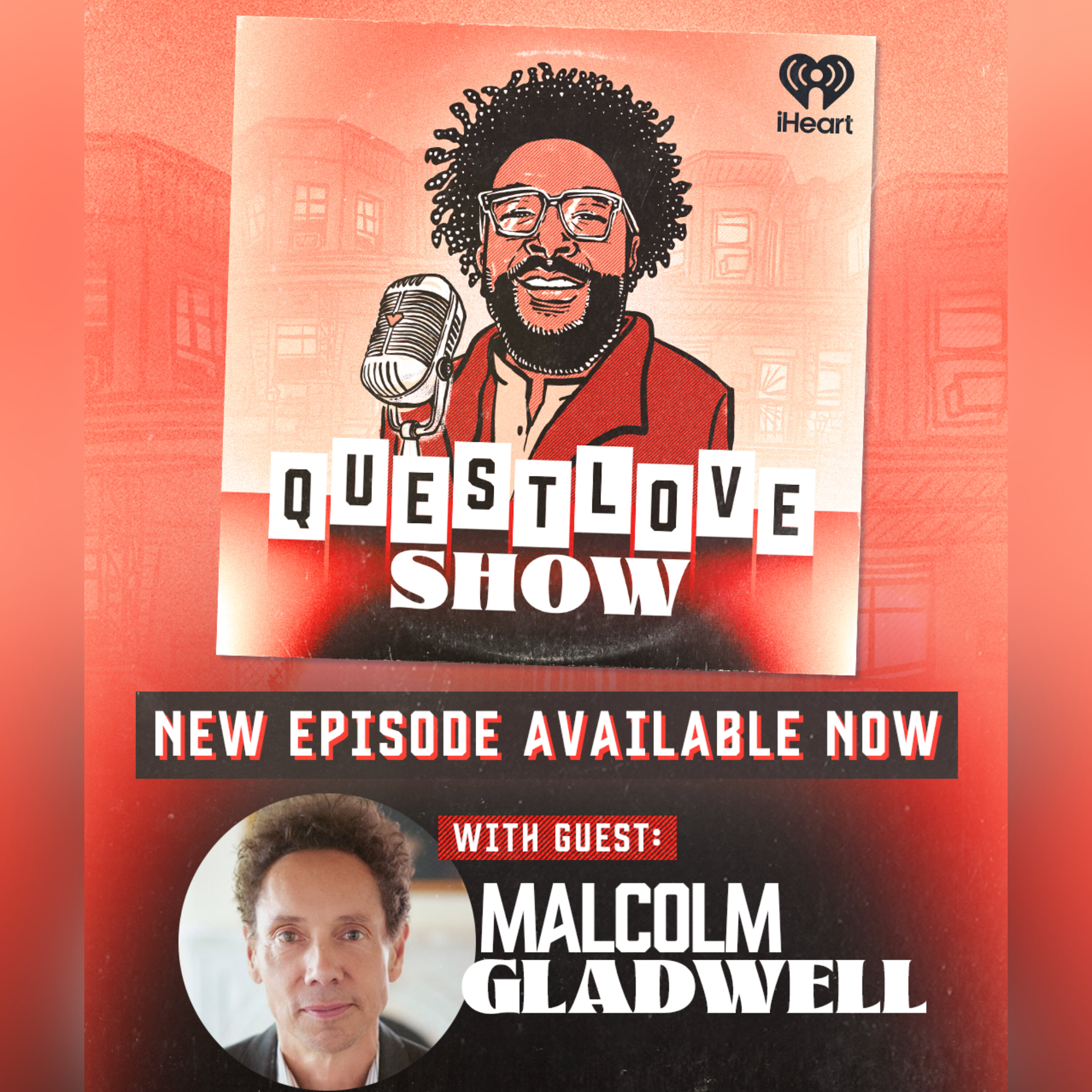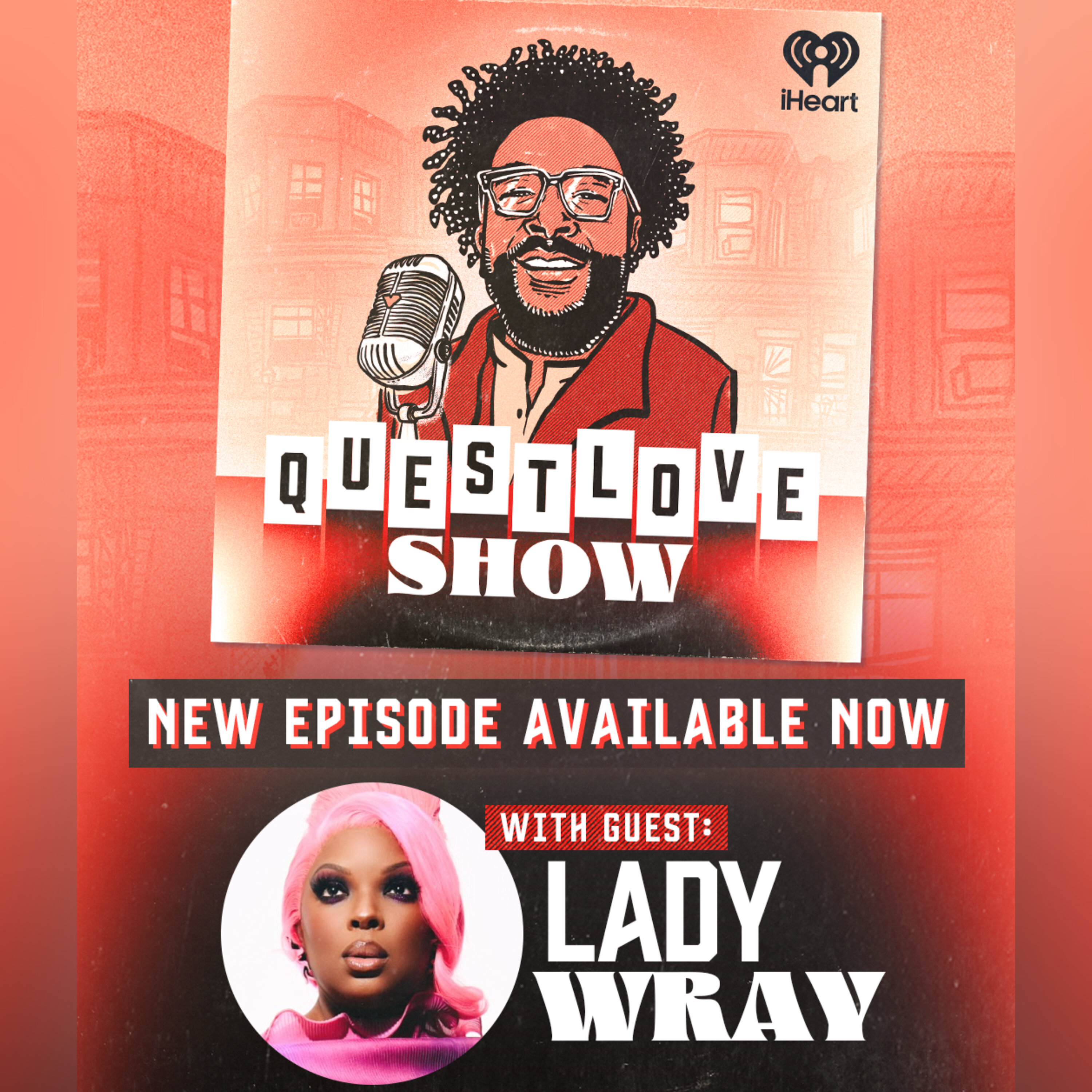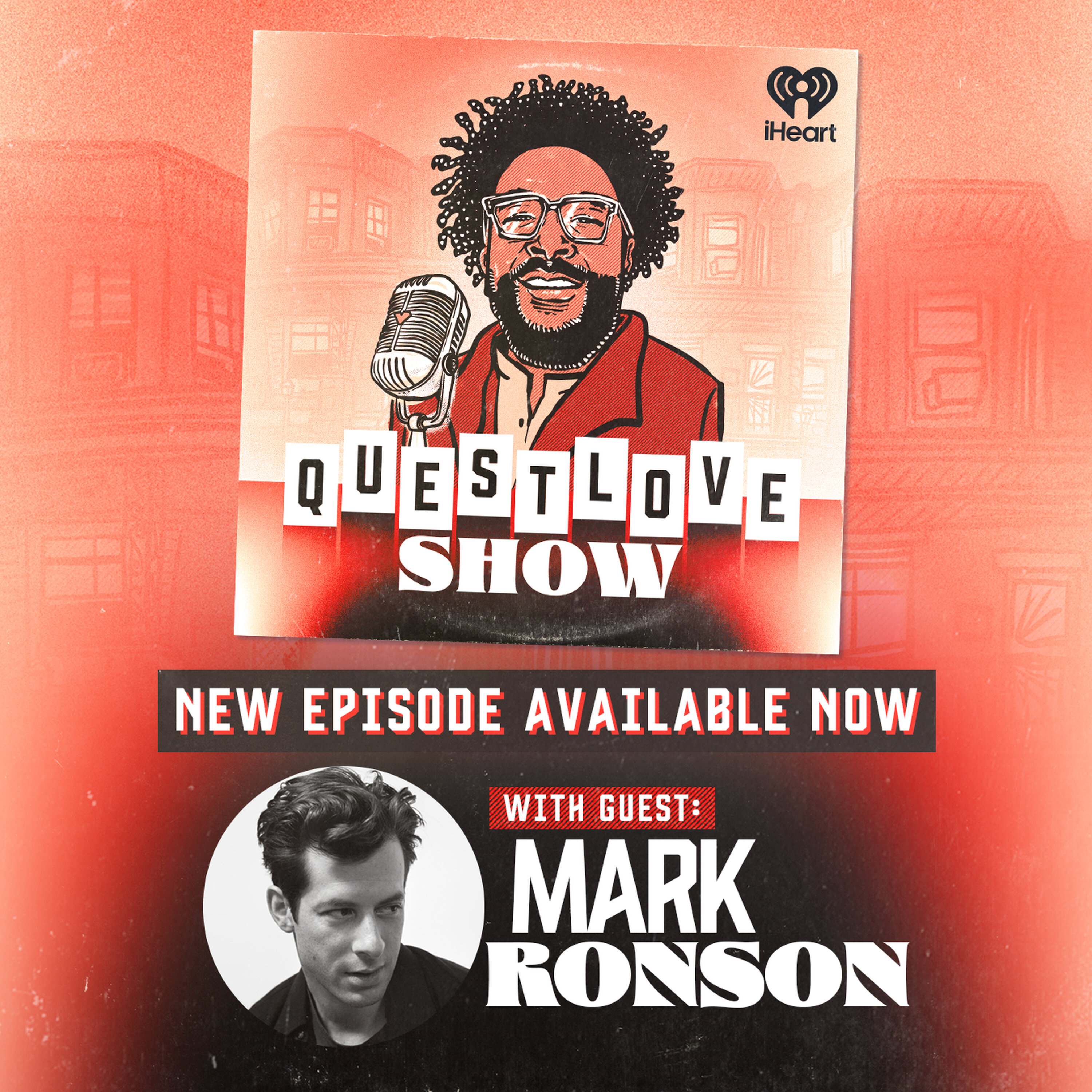Sananda Maitreya Part 2
In Part 2 of Questlove's one-on-one interview with Sananda Maitreya, the esteemed guest details his personal and professional transformation. The creator of this year's The Pegasus Project: Pegasus & The Swan highlights some songs from the album, including "Walk On" with Jellybean Johnson. The post-millennium rocker also speaks about making his home in Milan, Italy, an affinity for Jean-Michel Basquiat, and so much more.
00:00:00
Speaker 1: Quest Love Supreme is a production of iHeartRadio. All Right, people, welcome back to Quest Love Supreme. It's me Quest Love you know. A few times this season, me and Team Supreme often do these special one on one episodes. Today's guests Sananda Montoya. It wasn't planned as a one on one, but do just scheduling and life and whatnot, just having to turn out that way. Of course, I was thrilled about it because it allowed me to have a discussion with someone that I admired and called an inspiration. And in this interview we learn that we have a lot of stuff in common. And this is part two, so if you have it, please check out Part one, where we speak about Sonondas growing up, his appreciation for Rod Stewart, even his time as a boxer. All right, enjoy. I always wanted to know when you're turning in the tapes for neither Fish or Flesh, which I feel is your real first album, because your your first album is this your life experience up until that point, and you're you're feeling your way out and yeah, of the two, I choose the latter when you're turning that in. What is Donnie's response? What is Tommy's response, What is the Brass's response?
00:01:22
Speaker 2: Okay, first of all, let this let me say this some interesting things that goes down with this. First of all, it's uncanny because in fact, I mentioned that quite a few times for this particular project as I was promoting it. That and it's the truth. The first album felt like the finale of a life that I was meant to.
00:01:41
Speaker 3: Finish your old life. Yes, let me just like specific. I can explain this if you can keep track. For me, I do believe in doesn't matter what we call them. I do believe in spares of angels and other things. I do believe we're in this multi dimensional, interactive experience, overlapping dimensions and all kinds of stuff, and of course which our radio has got all of this capacity, but we're only focused on where it is on the dial right now, and that's how frequency were focused, so we are not aware that there's all these other frequencies going on as well. So for me, that's important because when I was eighteen years old, I had an experience where I was home from basic training from the military, and my old room obviously had been moved into and taken over by a younger sibling. So I slept in the den, the TV room, and I had a dream that night I'll never forget. It was December eighth, I was home for two weeks from basic training before getting reassigned to my first posting in Fort Sill, Oklahoma, and I had this dream that Like I said, my very first movie I can remember seeing was Breakfast of Tiffany's. And in the dream, the age I was eighteen, I'm standing in front of Tiffany's department store in New York. Ear it's really early morning, and I see this figure, familiar figure walking towards me, and as he gets closer to me, I recognize more and more, and his smile gets bigger and bigger and bigger, and at one point I go, oh shit, that's John Lennon. And I'll never forget. He was wearing a white shirt, some blue jeans, and his hat and his granny glasses and he get close to me. Is he looked like he was sappy to see me. He stuck out his hands and as I stuck out my hand, he went straight through me. Okay, these were my first, first first heroes with Fould influence.
00:03:33
Speaker 2: So I get up that morning and my mother says to me when she sees me that morning, did you hear what happened? I said, what she says, John Lennon was killed last night. Oh, I said what she said? Yeah, he was shot, And I said, I said, Mom, I dreamt he walked into me. So again, here's my take on these these things. If I agree to take some of your what you're leaving behind, I'm sure there were quite a few people on his list day. I'm going to leave you a little bit of this beetle magic. I'm gonna leave you a little bit. But you can't take that without taking the burden as well. So he had issues with his mom, He had issues, a lot of issues. You have to take some of that shit on as well, because that was also what made him him. So I say that because, first of all, I believe that these overlapping experiences where that first album felt like me and John were finishing something. Okay, his car, something maybe he or whatever. I like your filter, I would like to work through you perfect, I'm your pin. Let's do it. And it felt like I had stepped out of something that I was just always destined to start step out of and into and out of. But I agree with you that neither officih no flesh for me. And it was the most exciting time I've ever had making a record because I could just feel in retrospect the roots of postal Liem and rock gans there, and finally I was able to to you know, Mozart. The last thing he said was he he'd gotten a commission to be a church compel meister, and all they commissioned from him with like two or three pieces a year, so he would have had all of his chance, all this time to compose, and he said something to affect Damn. I was just getting ready to compose the music I really wanted to make. And you think, like, fuck if Mozart feels that way or hiden Heyden's last words being I was finally learning how to write for horns. You mean I mean that words apparently, you know, apparently, so you.
00:05:42
Speaker 1: Know I'm not done yet.
00:05:43
Speaker 2: Just yeah. So I do agree with you that it felt like the breakthrough that that that was. Now Here's another situation was that before I went into the studio to make that record, the president of Columbia, a CBS England Russell, put me into his office and wanted to show me all these demographic surveys that basically said that though I hadn't sold as many records as Michael or anyone else, that I had ticked literally every demographic box that they even keep track of, and that they had never seen that before and it freaked them out. So that, let me know one thing right there, I was seen as a political figure, because, as you know, I don't have to be singing about politics if my music is bringing people together across the divides that are placed there artificially to keep people from me. So if I'm bringing in bikers and grandmothers and thirteen year olds and academics and all these people that they keep, people start in power start to look at that and go hmm okay. Plus they didn't have enough time to vet me. I just shot off like a rocket.
00:06:51
Speaker 1: You didn't think that was just due to let's maximize if anything, like I could have sworn that. They were like, Okay, this is someone that will I don't want to say the word replaced, but you know, record execs feel like, of course, this is the person that Michael as connected.
00:07:12
Speaker 2: That's all connected. So that's why this is very intriguing because you know, when we do the book. I'll have time to extrapolate, you know, all of this information, look at it in depth, because everything is connected, and I'm trying to keep it, you know, a hold over their thread myself. The point is that they knew who Michael was, so whatever he was guilty or not guilty of, they would have known. They knew who he had been vetted his whole life. He had been vetted. They knew who he was. They knew where to take to motivate him, they knew where to take to manipulate him. They didn't have that info me yet because I came up too quick.
00:07:44
Speaker 1: I get it.
00:07:45
Speaker 2: You know, the corporation is not going to get in found of money while the money's printing itself. They wait for the money to reset before they go, Okay, now do we want to continue? Who is this mollfucker? Who is this kid? Okay? But Paul Russell brought me into his office and he said, I just want you to know that the first two million records you brought when you sold were genuine to genuine music fans. He said, after this, you become a cultural phenomenon, and people are not buying the record for the music. People are buying the record because it's part of their cultural identity of the moment that you can't say you're cool if you don't have this on your coffee table. If someone walks into your to your living room, have you heard the song? Say oh yeah, yeah, I've been there, done that. It becomes that kind of thing. He actually said to me, don't expect your next record or next couple of records to follow the same formula. It won't, he said, because you'll those people will come back to you, But the history of England especially, they won't come back to you to your third or fourth project. Okay, because you're gonna have to pay for this success.
00:08:43
Speaker 1: Hey, was he telling you that you were too successful?
00:08:46
Speaker 2: He was basically saying I wasn't going to have that type of success again anytime soon, because at one point it went beyond being a musical thing and became becoming a cultural phenomenon that then developed steam is that that it goes beyond the music. So those people the next time you don't get those people to come right back.
00:09:06
Speaker 1: Let me ask you an important question then, and this is kind of the theme of the slide film. Is success as traumatic or more traumatic than failing is.
00:09:20
Speaker 2: Look, the bottom line is this. We all have to be responsible for the energy that we create. There are no exceptions. Society may give us a free pass based on its affection for us or our image, but karma is real and law is simple. We all have to be responsible for the energy we create those who are capable of creating energy. That's just the way the universe polices itself. So the bottom line is I was going to have to pay for that sojourn, regardless of whether I had wound up on this side or that side, because there is no free lunch. Everything has a price, and you either pay in advance or you pay on the back end. I didn't have to pay in advance, well, at least far as the industry was concerned. So I had to pay on the back end. But there was also genuine fear. Because I was genuine. I really believed that I was given the power of transformation and I could help. As George Harrison said, people say, you know, think for yourself. We understand that the state moun Olympus creates us demi gods in order to program the people as to what is expected of them or how they expected to be in order to be members of a society, a governed society, a civilization, a community. So obviously it is not in the best interest of any kind of organization with power to promote the power of someone who was not in turn promoting them a team player. Yeah, you know that makes sense. I mean, I can't be that naive like they came up against me. I wasn't trying to bring down the building, you know. I was just saying, look, I'm who I am, and I'm not changing for some bullshit. I'm not going to become a black artist for you bitches. I won't. You can argue for days how black a person and I am. I have no beep but none of that whatever. But I will never consent to be on a black artist because you know, and I know what that means. And you know that unless you was Stevie Wonder and you had all of motime telling you do what the hell you want it, you know exactly how limiting and handcuffing that was. So I was never interested in being a black artist. I was never interested in helping the establishment restabilize the image. They were comfortable black people emulating black guys emulating. You don't want black Dudes is the Maverick, and plus we only pay lip service to the Maverick because it's a useful promotional image. We don't really support mavericks, but will support the image of one as long as we can control or we can collaborate on what it is you're doing. But that's not a question for everyone questioning. Not everybody gives a shit. Everybody has any ambition other than to be famous, make great music and whatever. And I don't hold them responsible for anything that I feel responsible for. But for me, I understood that I was not going to be yet the next card in a machine. You know that determines how people are to behave to respond, what parts of themselves are acceptable, what parts are unacceptable, and what the establishment is comfortable embracing you. As I just I felt like I had many ancestors saying, you don't have to do that. We did that, We were not happy. This is why we are pushing you, you stubborn asshole. This is why we've made you so stubborn, because it's imperative that now as you have a chance to turn this wheel, you must turn this wheel. Because what we do is of consequence. You don't know the people born. The people might not even be born who you're setting up their life for, but you must do this because I was enamored of the belief that if I didn't do it, the music that I've been able to contribute wouldn't possibly be made by anyone else in particular, but as that which came through my particular filter. And you know, I'm grateful that you mentioned even D'Angelo, who I have to say that I'm extremely proud of, a few years ago I was in Sweden and the Swedish journalist reminded me that I said to him twenty five thirty years ago what I was going to do, and he said, my god, you've done it. You've done it, and he mentioned another artist, he said, another artist, He mentioned D'Angelo. He said, D'Angelo has also continued to resist caricaturing himself and just continuing to grow and expanding that thing. Because again, I don't care how many credentials you have or what kind of journalists you call yourself. You don't tell the music what it is. The music tells you. You don't say, oh, this isn't jazz. Fuck you, Jazz isn't dead. Nothing's dead. Jazz is still writing chapters and verses. Rock is still saying none on this hip hop is You're clear, it's still ever expanding, you know, saying no, that's not hip hop, that's not country to me. No it's not country to you, but country tells me what country is. I understood that it was imperative that one of us, one of us had to get out ahead of that thing this time and not feel the burden that Prince and Michael felt and others felt to maintain that other pillar that they represented. And you know, this is why I've also set to people as well as much of a pain in the ASCID was to come behind Michael and Prince. What a stroke of tremendous fortune to be as creatively inspired and curious as I have been blessed to be, and to be behind two bona fide fucking geniuses. These cats were for real. These guys were giants. And you were either gonna shrink like you know, coming after the Beagles, or you saw it as your license. There's no excuse not to just keep pushing this thing when you've come behind to groundbreaking lifetime achievement type dudes like Prince and Michael. But Michael was involved in this because also by the time he inherited the Beatles catalog. Another great irony is that the very music that woke me up in this life, the Beatles, when Michael got a hold of it, that was the very music that kind of killed the battery charge on that life as well, like okay, boom ah, too much power? Well, who am I to say too much power? He had power. And then of course the game began when he got the catalog because Sony knew they want to go in business with him. So basically, whatever you want, Michael, fuck you want this guy? Is this guy paying your ass? No problem? Because before he bought the Beatles Catalog, the question they had to ask him was okay, but Michael, can you replace his sales and yours? I don't know. But when he had that catalog and Sony's half, even in the nineties, was already over half a billion, yeah a year. And forgetting that it wasn't just in not forgetting It wasn't just the Beatles catalog. The Beatles songs were the jewel of that catalog. He also had all the sly stuff, had all the little richer stuff. He had one hundred country music number one hits. That was a copiously fat thick docket. You mean, so from that point onwards, you know, it was like, yeah, they gave him. He wasn't very comfortable with me.
00:16:17
Speaker 1: I promised to wrap this up because trust me, like Jimmy Jam gave me seven hours. It was only supposed to be one hour, and Jimmy Jam gave me seven. So I will pull out every story, but I will, I will be sustinct and wrap this up because I'm also got a chance.
00:16:31
Speaker 2: To work with jelly Bean on this. On this project, I did this song with jelly Bean. Really yeah, I can't remember what is his name? Walk on walk on? His name? He approached me last year and said he wanted me to participate with him if I would, I told him, look, just on principle alone, you guys were such a huge part of you know, my situation and the time in various projects you guys worked on. So I said sure. So basically we wound up collaborating on this on this piece, and it was really cool because it was also the very last session of Ronnie Drayton because on us, Yeah, I was gonna play the guitar solo and then.
00:17:08
Speaker 1: See I don't have liner notes, so thus, damn, that's crazy.
00:17:12
Speaker 2: We'll get you whatever you need because, uh, there's a gentleman named Oscar Derrek Brown. He was a very very good friend of Ronnie's, and so when he told Ronnie what I was doing, Ronnie said, oh, I want to play the solo. I want to And when I heard, I was like, please, please, I will be honored. So it was apparently the last thing he kind of did professionally that were aware of, and I feel blessed to have participate with him because you know, he's he's definitely one of the unsung heroes of the time. I was coming through with his work with like Vernon in the Black Rock Coalition and all of that.
00:17:44
Speaker 1: Yes, the legendary Ronnie Drayton by the way, Yeah, I didn't even get to this new album, but literally like nice things cam Town, Yeah, like those are my that's my ship, man. I love that.
00:17:59
Speaker 2: You know that the moonishment about being careful of meeting your heroes. Bruce Springsteen has been like a big brother to me. Prince was is still I'm still close to him, and Miles played a pivotal role in my situation. Michael wasn't just one of those situations. It was just one of those things.
00:18:15
Speaker 1: Where he was competitive.
00:18:17
Speaker 2: I want to make this clear. Not only was he a competitive but but you know, in a perfect world, he would have seen me as like a gold like okay, I'm going sure this month, right, and we'd have done that Beatles Stones who thing where we just try to top each other.
00:18:30
Speaker 1: You know, I would have been here for it. I'm sorry, I would have been here for it.
00:18:34
Speaker 2: But you know by that time he was maybe just tired, like look whatever. But the point I'm trying to make is this, he didn't know me a damn thing. His life provided for my life exactly what it was meant to provide. And there's also a very very good chance that by getting in my way, he might have spared me his faith.
00:18:50
Speaker 1: You literally just answered the question that I was going to ask.
00:18:55
Speaker 2: Yes, he might have saved my life and getting in front of me giving me more longevity because you know, I was even asked earlier in an interview with your voice, you still sound the same as four years ago and how compared to whatever? And I said, But you know the truth is they didn't burn me out. I didn't they didn't have a chance to burn me out. And I said, so many of my colleagues were just burned out, and it was just doing what they could to keep up with it. And you know, when Whitney lost her voice at the end, I was so moved because I realized, you know, singers aren't mature to their forties anyway, They look out for themselves even moderately well. But I realized she hadn't lost her voice. With the sound of what you were hearing was a woman who had lost her heart because she was all hard and the voice is just a conduit. It's just an amp. It's not the guitar. The guitar is the guitar. The voice is the amp. Okay, if your guitar is fucked, the strings are broken, your heart is broken, and you don't really want to be doing that anymore. Obviously, it's gonna show and what comes through you what comes out of you. And I felt that the thing was she wasn't just trying to destroy her voice, she was trying to destroy that life that held her in bondage and just became too much. And you know, from our Native American heritage, we don't believe in death. Anyway the way it's taught in the West, And so you know, she wasn't obliged to be with us raggedy motherfuckers one minute past realizing she had done what she had come to do, she had blessed the souls and the lives. I just saw her movie. I had on a carousel for two years. Question yet and I just because I had her in Aretha's life stories on the to watch list, because I knew those lives reverberated so close to my own that I have to be ready and prepared psychologically to digest those stories because those stories are my stories as well. So you know, I had forgotten how many like just groundbreaking records Wouldney had, you know, broken and and just like wow. But it's the same with Prince. You know, you do what you come to do, and sometimes spirit says, I will not let you be abused one second long because a life is easy to replace, a soul is a little harder, So you know what I'm saying to you. So I feel like those were taken from us to preserve what they were and for further service because the angels recycle. You know, it's like only twelve these motherfuckers, and they play all the roles they're necessary play is MENI roles needed like traveling Shakespearean troupe, where this time you and the dad, next time imbi popper. But we all travel together because we all know each other and we all trust each other to play these roles for us. So I have no doubt that me and Michael were very, very very close, and that's perhaps why he fucked my shit up, because it was in so doing he spared my life. And I'm able now to have this conversation twenty twenty four with you, another person whose life has been greatly touched by the magic Joll's geniuses laid down by the way. I also am happy to hear that you I had some influence, because when you guys first came through, it was same with Erica. You're not always sure if it's your vanity or your pride, but sometimes you can feel like when your spirit is a part of somebody else, it doesn't have to be anything specific, it's just a vibe and you go like, yeah, I think these guys might have been listening to my records, you know what I mean. You think it's always real sort and when you find out that yes, there is a family, and we, like I said before, we do travel together and we perform the works and the miracles that we're here to perform, and we pack up the caravan and we move on to the next performance.
00:22:35
Speaker 1: I swear to God man if allowed to at least refer to that other non diplume of yours, which was e G. O'Reilly, like I was your number one disciple, like literally for that. My closing question is your rebirth with angels and vampires. Yes, where you're on your own and you're out of the system, Can you just walk me through kind of your caterpillar to butterfly transition to where you are now? Because the thing was is that I just thought after well, Vibrator Wildcart was the last Sony record vibrator Vibrator Okay. So Wildcourt was your first project on your own correst okay, And.
00:23:23
Speaker 2: It was actually created, It was created. This is an interesting story if I can. Yes, it was created for capital because I had ten years I had spent trying to get off of the Sony arrangement. The English had let me go. The Americans had been hanging on to it, but the English were very reluctant. It was a messy situation, but finally I got out of it. Then I was supposed to do Sam Cook that the family. I was extremely flat aby The family said that was the only person they wanted to play Sam. But I couldn't wrap my head around the fact that I don't care how flattered I am that you think my voice can replace Sam. If the movie is about a legend, why would you not want to expose his voice? And I also knew that, and Sony had made the mistake of saying to my manager at the time, why is he coming all this in their minds, all this innovative shit. All he has to do is make Sam Cook records and we'll promote him for life.
00:24:20
Speaker 1: Shut up and sing and make the hits and yeah.
00:24:22
Speaker 2: Yeah, And as much as I idolized Sam Cook, I don't want to be buried in his grave. And those things can be pyodic victories where you have success. Direcord company pushes it. And now every gig you show up, if you don't do some Sam shit, you know they're yelling at you're throwing shoes, right, So it was a tough decision. But then I had been approached to play Sam in the Muhammad Ali film. So I had agreed because Michael Mann had really talked me into it. The director. I have a lot of time for him, Michael, and I was going to do it. And then I get a call from Michael Mann saying do me a favor. This was a couple days before I was supposed to start shooting. He said, I needed to talk to Tommy Mottola because Tommy Mottola is trying to fuck with the soundtrack because I didn't know that they had the soundtrack. So basically I had spent ten years trying to get away from Tommy Mottola in that situation, only to find out the last minute that if I had song on the soundtrack, it would have belonged to Sony and Tommy get me to sign another option that he wasn't going to release the soundtrack rights to the film until I did something for him, and so I basically said to Michael Man, I said, well, I thank you very much for this opportunity. I would rather go to hell, literally with gas strapped to my back than than to deal with this guy again. So I bout out of the film.
00:25:42
Speaker 1: Do you believe when I think he said this in this book, but before I read his book, he was a guest on The Tonight Show, and you know, just casual three minute conversation. You know, I kind of always ask like, is there an artist that got away or like a regret or something like that, and he said that it wasn't close to like we could have done done better by him. Yeah, but he kind of and he said in a very non industry you know, when someone has a prepared answer, I.
00:26:18
Speaker 2: Move that you say that because I get my guides if you will. My spirit tells me all the time that there was a price that everyone had to pay who consciously went into it knowing that they were trying because they got caught up to try to teach me a lesson. It was like, plus, the other young ones are watching, so we have to use him as an example of you know, don't cross us. We're the biggest record corporation in the world. You do. And you know, CBS Columbia were, relative to that situation, a bit more left liberal and artist friendly. Sony came in with a real, if not necessarily politically right wing attitude, socially right wing. The artists do what the fuck we tell them? You don't listen to the artists. We're not mow Austin A Warner Brothers. This isn't right, you know, we're not virgin records. The artist listens to Sony, we tell them. So it started off the wrong foot. There was also the fact that like were going back to the official flesh. If I could go back and do it over again, I would probably delay the release by six months because it fell in the cuffs between the old regime leaving and being taken over by the new incoming Sony regime. So it was also one of those situations where the timing. Nothing about that situation was friendly. But as I said to you, Paul Russell went run. The English company had already told me to expect some different shit. But here's also another reality question that most guys people don't realize, artists don't realize, and your manager for sure is not going to tell you. So you go back and you renegotiate your contract. Now you get what you should have gotten in the first place, as far as you're concerned. But what you don't realize is that part of the reason your record was so enticing is because they got it for nothing. I was signed at the lowest legally binding contract. I was literally thirty thousand pounds was the lowest limit that I got signed at the time, might have been fifty forty grand forty dollars. And so what I didn't realize is it was all gravy. We didn't spend a lot on the record because the record was pretty much me re recording the demos, and so it was just all found money. What they don't tell you is you come back now you're making serious, serious boom boom. They got to share a lot more at overhead, And now I realized to get that same money they got before, this is how much they're gonna have to spend to get there. Meanwhile, what they're gambling on is that, as you've alluded to before, there's a new group, a new act that's on their first deal. That this is why in the NFL they try to maximize that rookie quarterback contract to get the team, you know, whatever they need. And it's the same. So your manager's not gonna say, no, I'm gonna forfit this big alimony check you're about to give me the pass it on to my situation, I'm gonna you shouldn't do this you should stay on the same thing, but you should instead just up your points. They don't tell you that that basically you can become a victim of your success. Where among the other machinations that were happening around it, the perfect storm that I walked into, you've basically made yourself less financially viable and exploitative simply because you're getting now a bigger piece of the pie for you.
00:29:35
Speaker 1: What is a good takeaway? Because I know they're pros, and I know that they're cons to the situation.
00:29:43
Speaker 2: Well, first of all, let me just say this about the Tommy regime. First of all, I was a Yetnikov guy. I idolized Walter Yetnakoff because I grew up reading books that backed into I grew up reading Billboard magazine in the school library, and not even walti yet Nicoff. So I knew he was. I knew his storm, I knew his history. I knew he had succeeded Clive Davis. He was a rock star to me. We hit it off like he was my Brooklyn Jewish uncle. He was that dude. He was moved that I spoke Yiddish that live in German. We just had a vibe that me he just never had. Now here's the irony. It did occur to me later that once again, it could have been because of Michael and getting Michael's attention that Walter decided to really pushed me because I was I had broken all over the world. And to be fair to Tommy Matola, he wasn't that enthusiastic about me at any point in my career. He just thought I was his hype. So really, well, he wasn't a big no. He was never there. He always thought Walter was over indulging me, and blah blah blah.
00:30:48
Speaker 1: That was Walter's guy, not my guy. So okay, I get it now.
00:30:51
Speaker 2: Yeah. And plus when he took over, see the thing is between again my first and second records, Walter was in rehab. So Walter was in Minnesota drying out at John Hopkins. The Japanese get a call from Tarry Mottola. Hey, your boy's coked out of his mind. He's in reality. He's lose mining the store. Me, Tarry Mattola, I'm minding the store. Basically, Mattola was yet Nikoll's fined. He was his lieutenant. He was the one who put him in that situation. So when Motola turned around and did what he did to basically bust yet Nikov, that got the Japanese to replace him. From that point anyway, I was I'm a loyal dude. I mean, that was my guy man, right, and now you want me to switch my loyalty to you. And you wear like short black socks with your like hair sticking out between your pants leg and your socks and shit, looking like some southern black dudes from the fifties. And I remember him giving me a letter, a little letter that Michael had written to me to get gave to him to give to me, And I could already see the writing on the wall, okay, because Tommy would have still had to have support from somebody artists to get the Japanese to part ways with Yetnikov, because that was Yetnikov's strongest suit, his relationships with the artists. So basically, you know, once he had secured a certain group of artists support, he didn't. I was expendable. I was expendable to cause, as they would say. But so in all fairness to him, we never really hit it off. But at the same time, when I saw what he did to Walter, I just thought, nah, this guy gives me the he used to say in German, gives me the agel. I didn't feel comfortable with him, and of course he fell out with Michael later as well. All that, but my take on it was this, that regime that featured Donnie Einer, Michelle Anthony, those three, they were the three big hanchos. I was struck by how they had bigger egos than the artists that they wanted to be the rock stars, and in fact that was the journal With all due respect to him because he's worked his ass off and I know he's a great musician, but Randy Jackson belonged to that whole regime as well, and then Randy wound up being bigger as a celebrity, you know. So the point is, but that was the ethos that I was dealing with, that I had never had a meeting with Donnie Einer. Well, this motherfucker wasn't talking more about himself and what he had done, then why we were there to have the meeting in the first place. And Michelle used to take me for limo rides when I would come to New York from London and just impress upon me how important a jewel I was in the crown, the Sony crown, right, So one point I get annoyed. Will hear her saying this? And I say, well, Michelle, which one of the diamonds am I? And by one of them, like pave diamonds on the back, you know, that gets caught underneath the neck like you can't see them because the neck hairs, the nappy hairs get all like you mean, I'm that part of the crown, you know? Or am I one of these jewels at the middle where no matter what your hair looks like, you can see that's this motherfucker right here, you know. And it's point she got embarrassed and stopped dropping Atlanta because I didn't want to hear that. Right, They didn't know what to do with me, and no matter in which Walch did, But what they did that different than Walter was Walters. I trust this guy's Benji. He just proved something out of nowhere to left field. I had Doug Morris, who used to run Atlantic, who up until that point when he was trying to talk me to come in with his company, he said, I had been in the business for forty years. I've never seen anybody, even Elvis nobody came through the way you did. He said, yeah, well I pay for that because it freaked people out, And so I had to answer for all of that. And then, like I said, when they find out that you're not interested in just representing a bunch of bullshit, they're not going to be comfortable sharing their power with you because they can see who you are and nobody's trying to upset the status quo. That's not their job. So it's not like I don't understand. It's not like I can't come to terms with the fact that I was an inconvenient man for the time and the place. But I did what spirit asked me to do. I laid the seeds in the ground, and I'm still reaping the whorldwind and the benefits of them close to forty years later. And it's what allows me to talk to you and have this conversation without having had to sell more than I was capable of remanifesting, if you will.
00:35:20
Speaker 1: What's your relationship with the material? Though, like, because there's two sides of you and is a Burnham sum of a fan is yelling out like.
00:35:29
Speaker 2: No, no C or seven more. You know, at this point, at this point about five or six, seven years ago, I opened the whole thing back up. It was imperative upon me to lock out that part and focus on growing the garden of post millium Rock. The other guarden didn't need my help. They already had a major corporation who co sponsors those first four records with me. They were taking care of that. I didn't have to do that work. I just had to work the fields that I was preparing for where I am now. So for a long time I made every sacrifice necessary to not burden people with that reality that you're coming to see me under a false impression. I made it clear even the venues that I chose to play were deliberately intended that I didn't have to feel extra burden of pressure to sell out a place ten thousand people or whatever. If you know, I can only realistically get, you know, five hundred people in this place based on what this town is based on. Blah blah blah blah blah. I'm more than willing to do that while taking advantage of the fact that the first time around, I didn't spend enough time in these places anyway. So it was kind of a way for me to kill two birds at one Stone. But then, of course the time when even Sony came back and said, we already if you were willing to work with us and collaborate with us on your first four projects that we co own with you, we are willing to do whatever it is that you deem necessary. And I said, well, the message has been consistent. You change everything to anonda my fare or I have no interest in working against my own interest. You know that's already been established. So we came to those conclusions. The bottom line of changing it was simple. At some point you realize that the name you created, the identity that you've created, you don't want anymore. And when you're going through these struggles with them, they were never an artist friendly company, the ones that I had these tumultuous dealings with. So they let you know, hey, you're just that's our property, and we're not the vision you have of postmanin and rock. That's not black artists music that we the way we see and we want to support you. And the other thing is any industry, whether it's a film industry or music industry, is going to be hard pressed to promote and continue to promote what they don't think they can easily replace. So if you're if you're seen as a paradigm shifter, fine, that's all well and good from the artistic side of it, but from the industry out of it. Can we duplicate this monk and we now meant and print this bitch? If you can't, it's not in their best interest, you know, for them to promote Citizen King as a film when they've got nothing else the next two years in their catalog in the pipeline that looks anything like Citizen King. So you learn all these lessons, and you learn that if you want to go forward after two years of meditation, where I was in a state of dissociation in order to survive, where to the point where if you called me that old name, it might take a few seconds for me to register that you were actually talking to me. In meditations and prayers, I asked the way forward, and I was given in a series of dreams. I'm a pis sing and I've always placed a lot of stocking dreams in a series of dreams. Three to be exact, I kept hearing the name Sananda called out by a group of angels that I were always traveling behind, walking behind By the third time, this name, which was in every dream to me like this is Solanda. I would always look around like, hey, who's Sonanda. Who's going to answer to this? The third time was the time where I realized, oh shit, I'm Sonanda. I'm Sonanda. That's me. And literally the angels who would never who never faced me in any of the three dreams, literally turned around and faced me and started applauding life. Ah, there you gets it. And that was the beginning of that. That was and I was given, you know, to understand, if you have the courage of heart to take this, this is the answer you've been waiting for, looking for, and it will even resurrect the other name that they're now suppressing to keep control of you. So that was the path I had to take. I was ridiculed, of course, as you as you would expect. I was. So that was absolutely nuts. And it's like, well, just because I'm nuts doesn't mean it's not a great idea.
00:39:55
Speaker 1: How hard was that transition professionally speaking? Because I didn't I didn't know you existed until two thousand and eleven, you know, so I was wondering, like, wait, what happened between ninety four, like Where's he?
00:40:09
Speaker 2: I had to give you time to do your other shit because you were playing your foundation for a culture that you're just a very, very huge part of. Okay, But look, the bottom line was, for a long time, I had to dissociate myself with that life, that world. So I wasn't going to be performing those songs anyway, got it. Creating a new catalog gave me something to do. For eight years, I was in a trio. I've still played everything myself on the record, but I went for a trio, which means that I arranged everything with a view towards when you play this live, you're just gonna have three instruments. As an arranger, that was a great, great challenge. I loved it. Arrangers loved Now you got right for twelve pieces, Now you got right for four pieces. You know, we love that.
00:40:53
Speaker 1: At one point, weren't you Were you considering being the new front man of n X or was that just a one off thing or that It.
00:41:02
Speaker 2: Was another very interesting story that came about because I had heard a rumor from a couple of people, Hey, what's this about you joining Excess? I had absolutely no idea whether this even started okay. It was in addressing the rumor through the media that they heard that I was saying or that they got the idea to ask if I would do it.
00:41:25
Speaker 4: So it was actually me the It was while I was debunking rumor that in the process of debunking the room, and they heard the rumor and then said, here, let's take a gamble and ask if you'll do it.
00:41:37
Speaker 2: I was very good, good friends with Mike Hutchins, Michael Hutchins, and so yeah, that's how that happened. It was strange. And then of course we did the opening of the Olympic Stadium in Sydney in the year two thousand and that's what led them to invite me the next year to be Jesus and god Spell. And I was really excited about that because it was like, you know, I grew up doing gospel in junior high school, so I knew that like the back of my hand, and they asked me to play the Jesus character. I was like, dude, that's like, yeah, man, the Australians loved these bitches. Yeah, man, it's about time, because you know, I always felt like he probably looked closer to me than he did to Chris Sarandon or whoever plays motherfucking the movies anyway, when I was a kid, you know. But the irony is the very day I was meant to get on the plane, the producer and the director got into a huge fight because the director had prompted, in order to get me on board, promised I could contribute a song to the situation, to give me another song to sing, and they were already problems doing. But I guess that was the straw that broke the camels back. And literally got a call an hour before I was going to leave for the airport that they had postponed it until they sorted out all this other stuff, which by which when I had moved on. But yeah, that rumor was true, and that rumor led to some other stuff, and then eventually they asked if I want to be a permanent member. But that was in the very beginning of me going into the transition full time in earnest and realized it wouldn't have been in my best interest to have lent my energy to that.
00:43:21
Speaker 1: So the way you create now is it when the spirit moves you, or like are you your your final say? Are you your boss? Are you like, Okay, are you in an ideal place now? Creatively?
00:43:35
Speaker 2: I've been in an ideal place creatively since the very very beginning because I was spoiled that I've always had creative control and the first record was the only time I've ever even made demos. But my answers is like this, I'm sixty two years old. I've been doing this my entire life. Else should I be listening to? But but me? I I've always believed in my taste as an artist, meaning that you know, if I can tell someone else has made great music. I don't see why all of a sudden it's impossible for me to know that I've done something tasteful or or captured something. It is just. It is just and the energy that I inherited back into the process of creating. When I no longer have to defend myself and answer questions, why are you starting the wild card with this? This kind of banjo? We kind of why why are you doing why? I just got time of all that.
00:44:37
Speaker 1: Look. I love when you go dirty, like the dirtier shit dound the most. The SETTI just drums untuned. I love that shit like yeah, I love it soone look, brother, I cannot emphasize enough how much of a profound I didn't even get into you did a show the CA had me in music one night in Philadelphia and I'm walking home from school, and only because I know the baseline, like the back of my hand, your band is soundchecking Wiki Wacky by Fat Back Band. Yeah, because I heard that booby doo boom boooo boom boom boom boom boom b And there was half a second where like one of the side doors was open at the Academy of Music and me like, I'm walking home from school and you guys are sound checking at the Academy of Music. I went to perform an art school like across the street from that school and would often walk by it. And I didn't even know the Fat Back version that well, but I knew that baseline and watching you guys for like three minutes, like and then security kick this out, but we snuck in the sound check. But yeah, it was such a profound effect on my life and of and I know I sound like a broken record on this podcast. I've been doing this for seven years. I've I've I didn't know this is the interview I always wanted in this ideal situation, and I thank you so much for granting me the one man audience to just nerd out and give you your flowers.
00:46:27
Speaker 2: Man, I really appreciate the opportunity. When you your people contacted us a few weeks ago, I was really like it was a kind of feeling like finally, you know what I mean, Like, you know, I see you, I see you.
00:46:39
Speaker 1: I swear it. I just didn't think you knew it, Like.
00:46:42
Speaker 2: Come on, man, you all over the place, But I don't know that.
00:46:45
Speaker 1: I think when you're in it, you're not like.
00:46:47
Speaker 2: No, I'm into the culture. I mean basically I should own shares on YouTube this moment at this point. So you know, whatever you're doing, you know, I'm catching it. I'm seeing it, you know. And the fact that you got the gig with Falling and all of that, man, it's just like, you know, your your imprint has been huge. Your footprint has been huge, and we've really really needed it because that thing you established, which was kind of in its own way, you taking over from who are we referencing before that whole whoever we were we were referencing before that, they basically had a whole thing. You also put out an umbrella and brought in a lot of stuff that you nurtured and was really really important for the culture. And I just I just thank you, I just really do because you've made excellent, excellent music and work. The productions are an excellent you know, and I want you to pass on my love to a young brother D'Angelo and to Erica as well.
00:47:46
Speaker 1: The's gonna be my first phone call like right after now, Like I'm just bursting as.
00:47:53
Speaker 2: I'm particularly I'm proud of him, and you know that he's He's everything you kind of suspected he had in him when you first heard Brown Sugar. He's definitely going beyond that. And like I said, he's even got Scandinavian bitches and in Sweden talking about how probably are of him. So you know, just past okay, and I want us to stay in contact. We know we might do this.
00:48:14
Speaker 1: We will. I'll slide in your d MS and give you my information. Brother. Thank you for listening to Quest Love Supreme Coast by Amir quest Love Thompson. Why you Saint Clair Fonte, Coleman, Sugar, Steve Mande, an unpaid Bill Sherman executive producers are a mere Quest Love Thompson, Sean che Brian Calhoun, Produced by Britney, Benjamin Cousin, Jake Payne. Why is Saint Clair? Edited by Alex Conroy. Produced by iHeart by Noel Brown. Much Love Supreme is a production of iHeartRadio. For more podcasts from iHeart Radio, visit the iHeartRadio app, Apple Podcasts, or wherever you listen to your favorite shows.
















